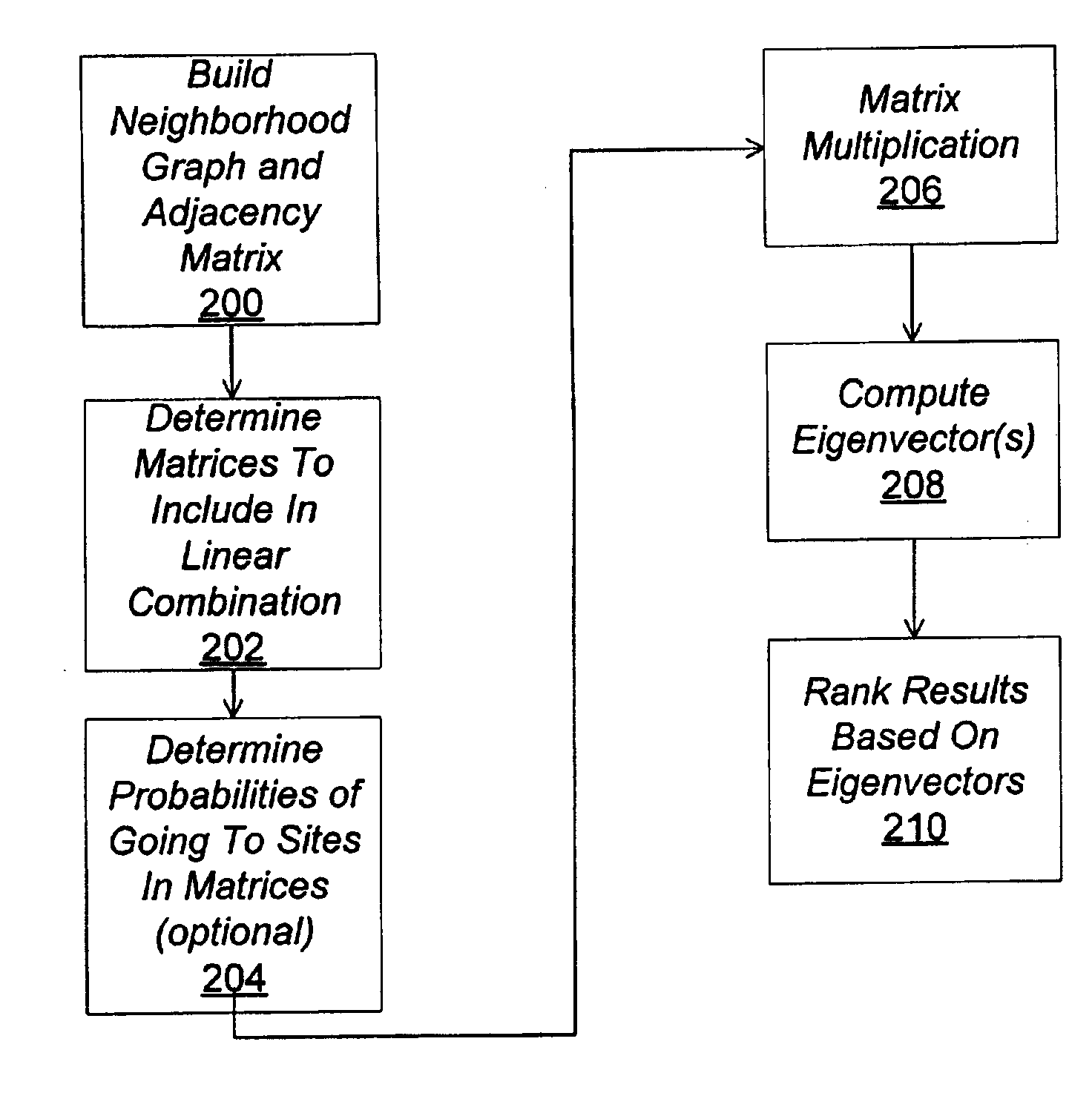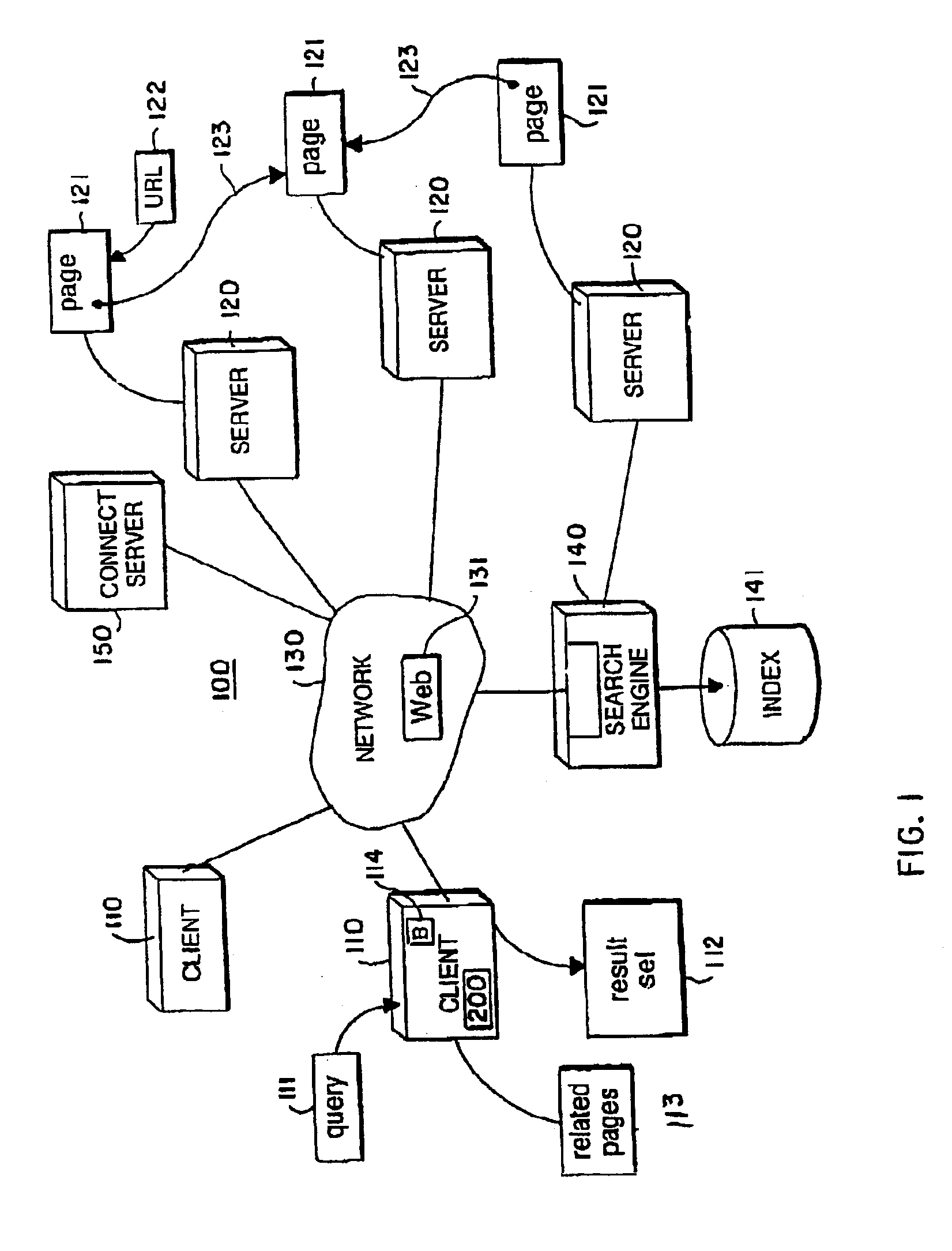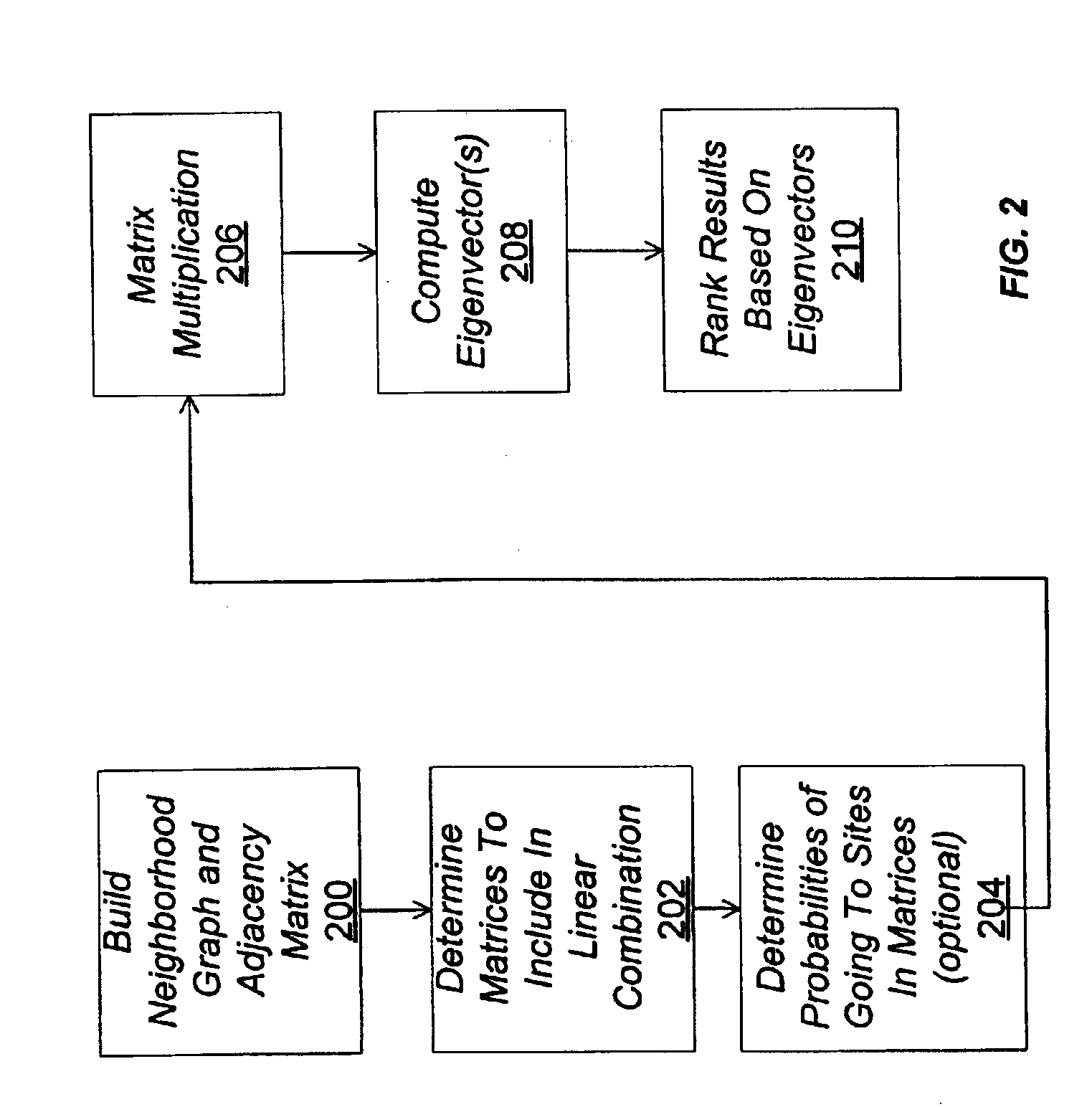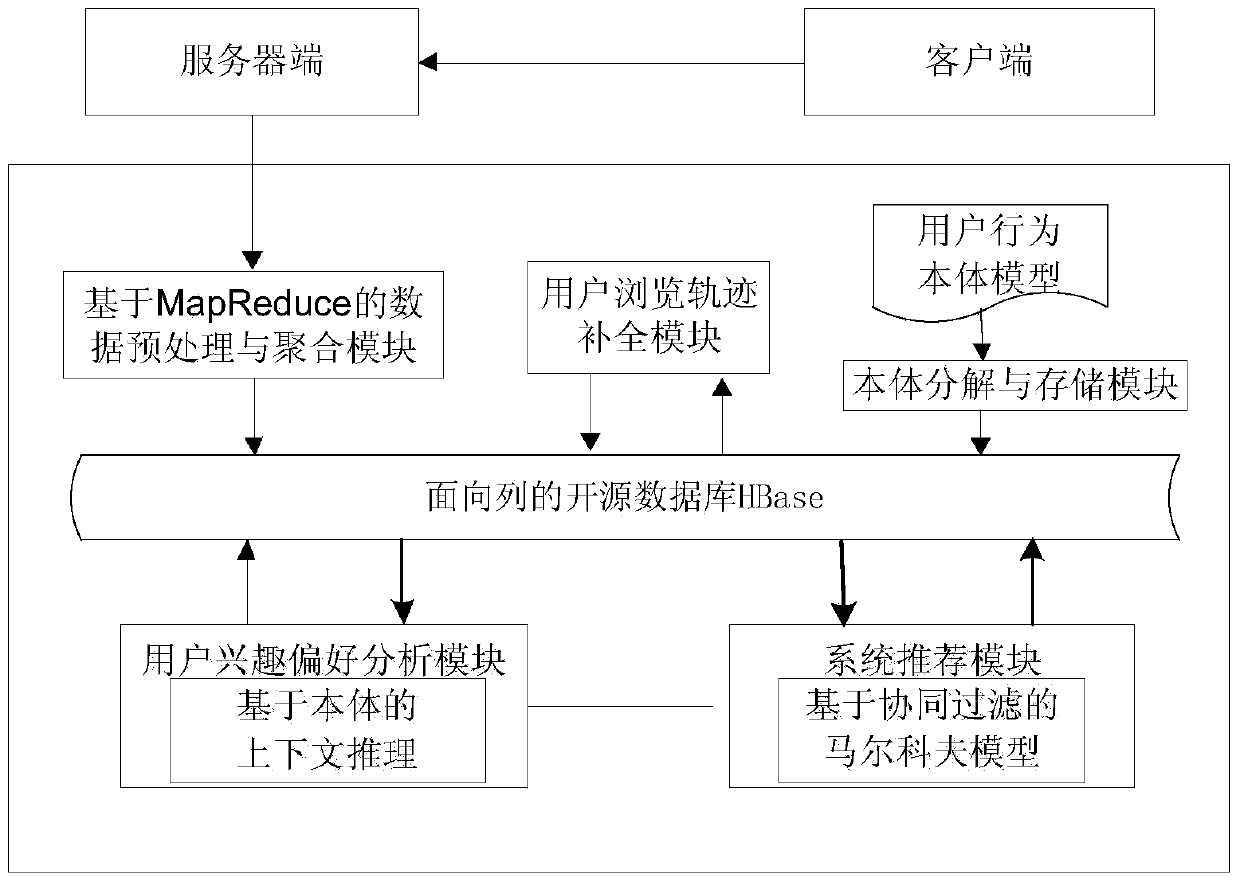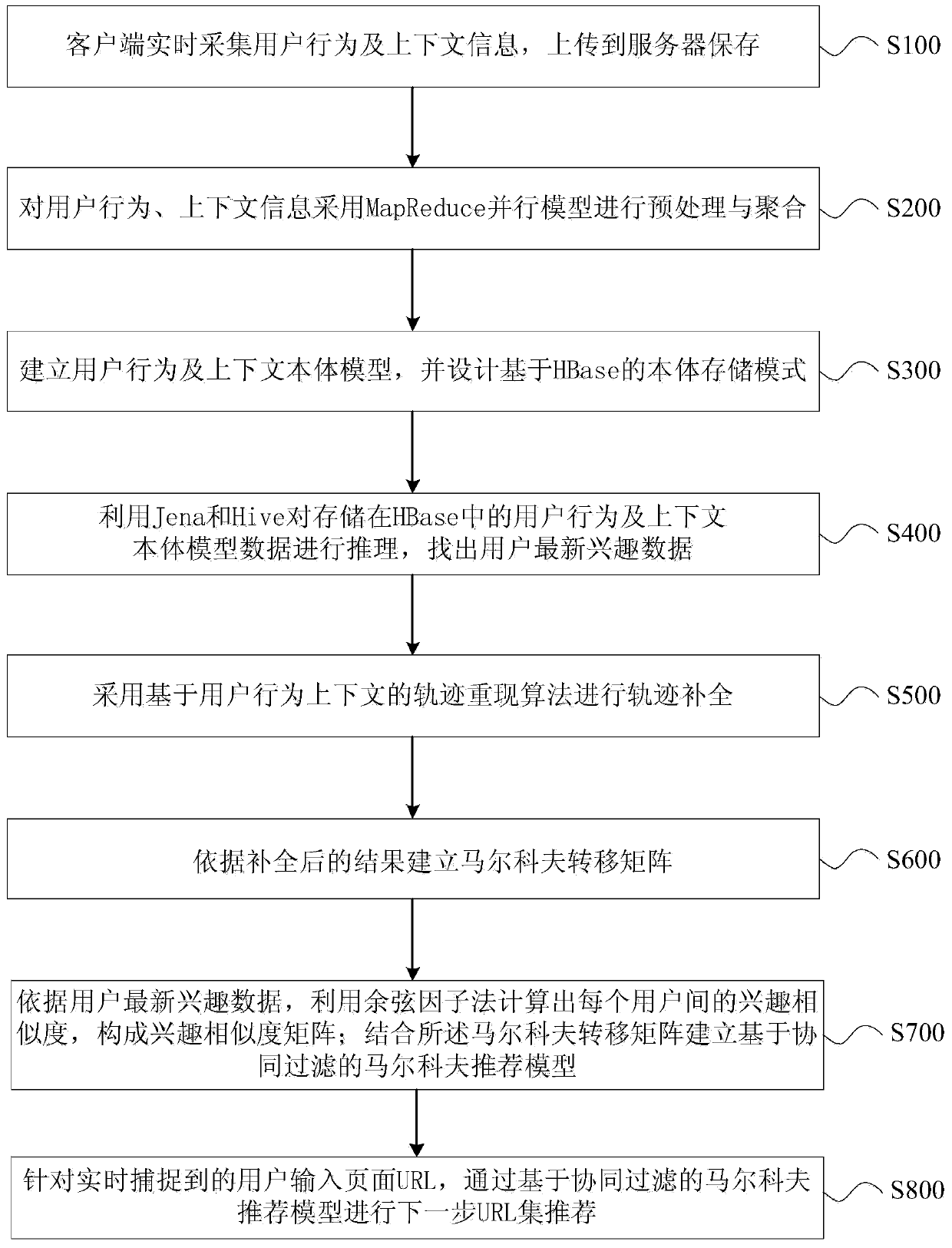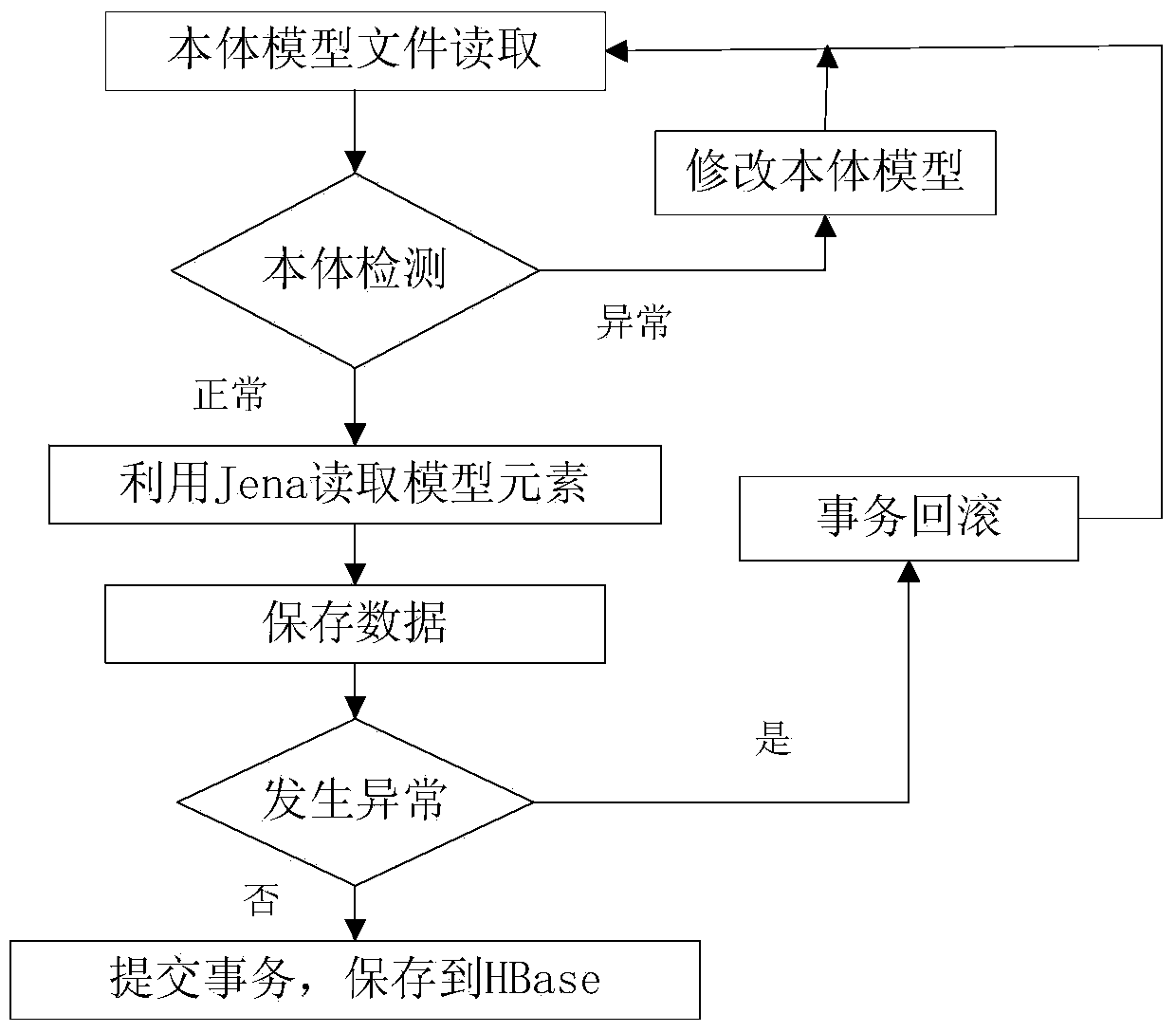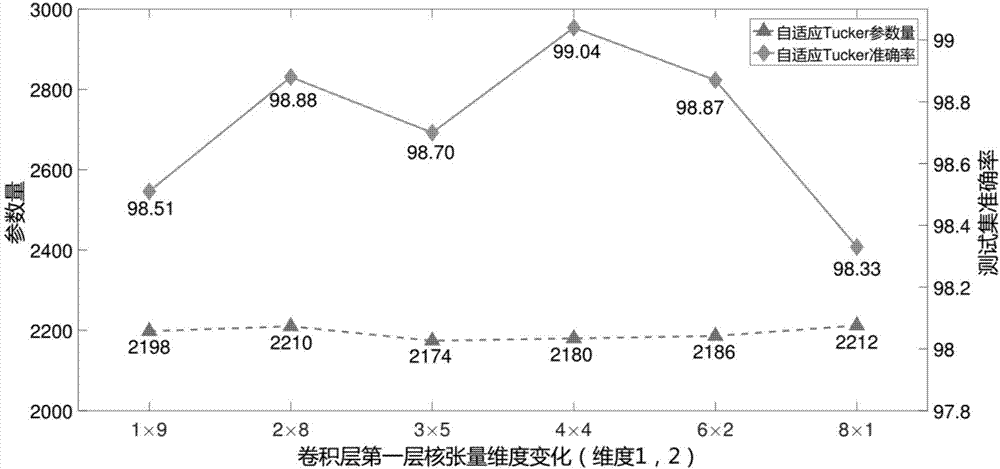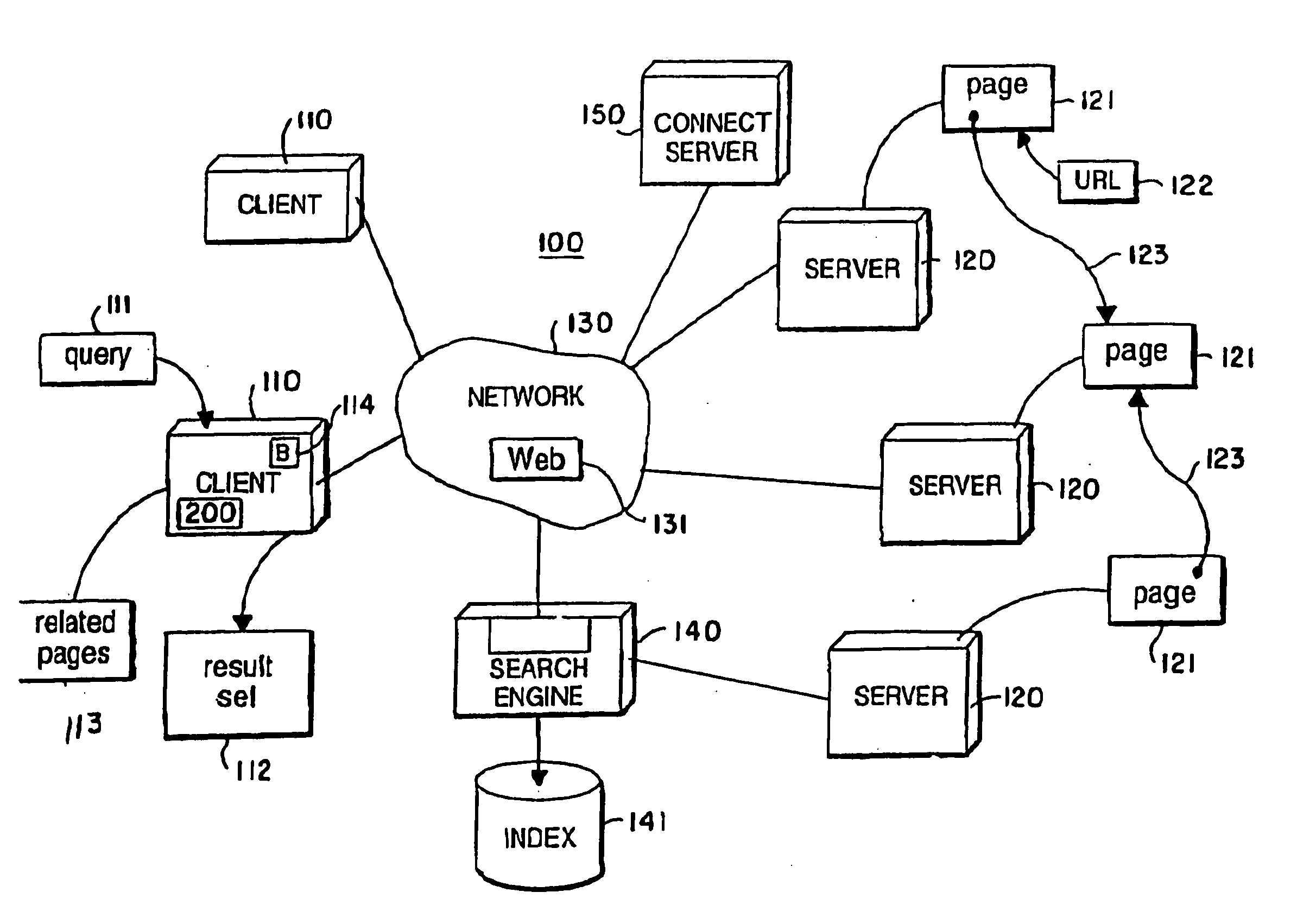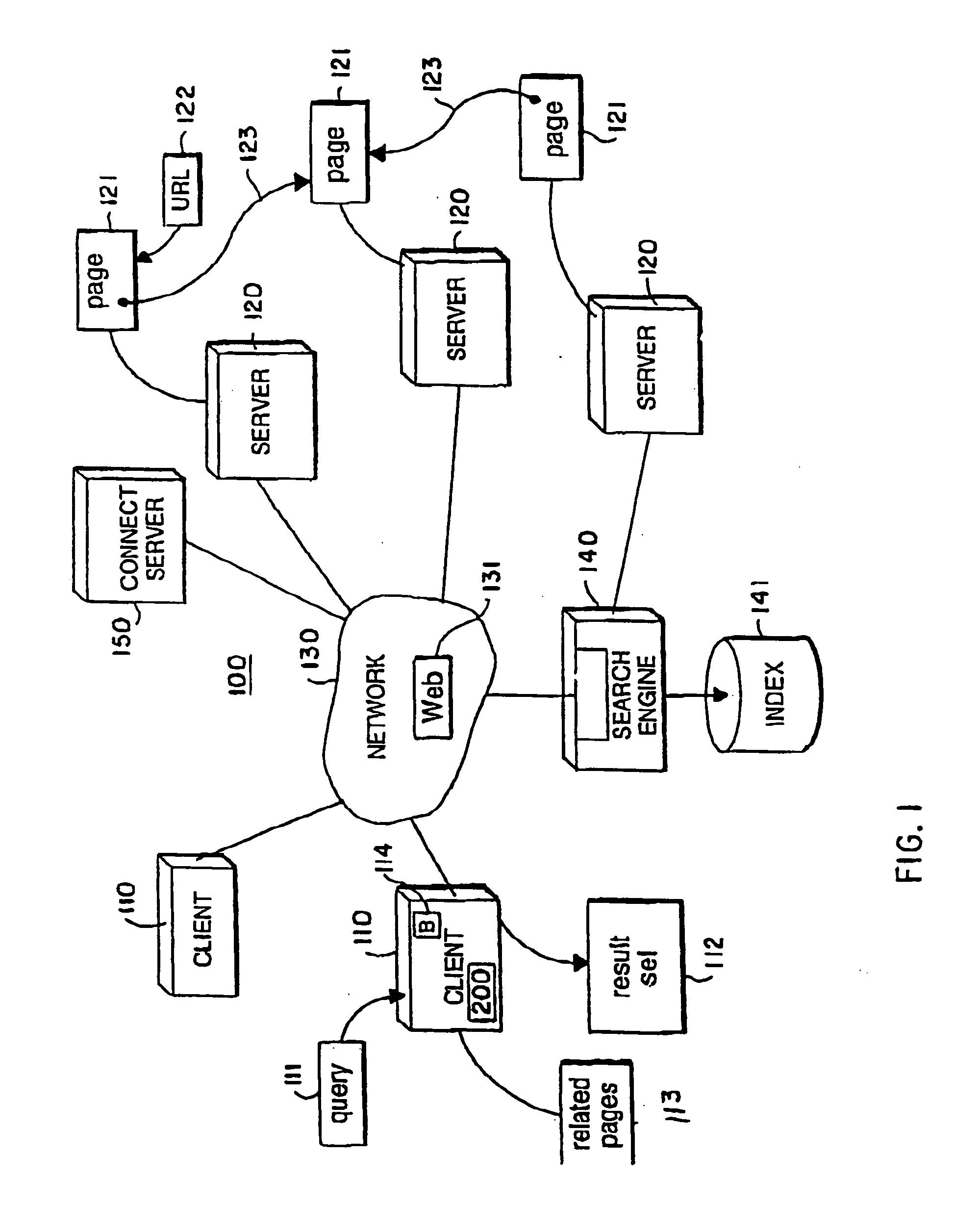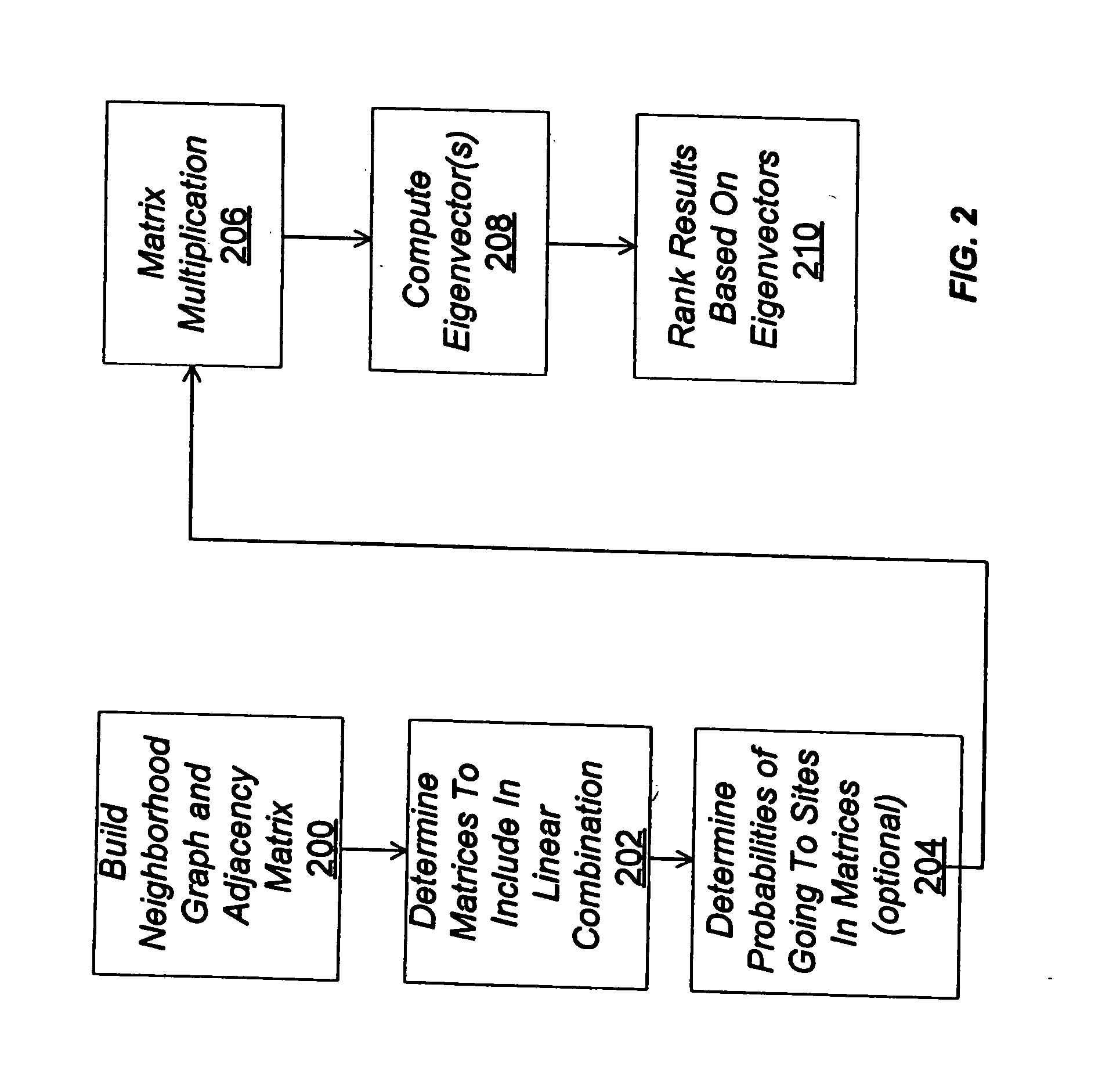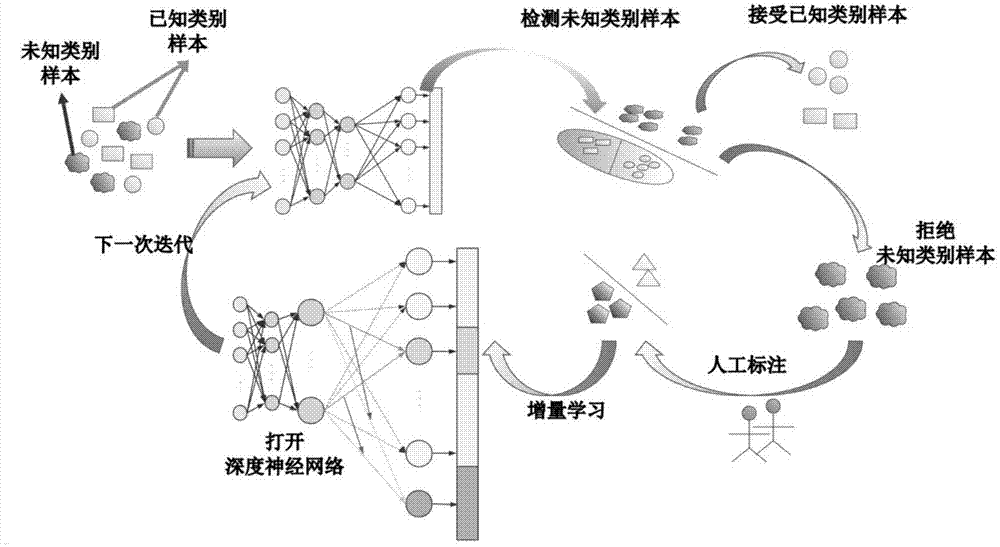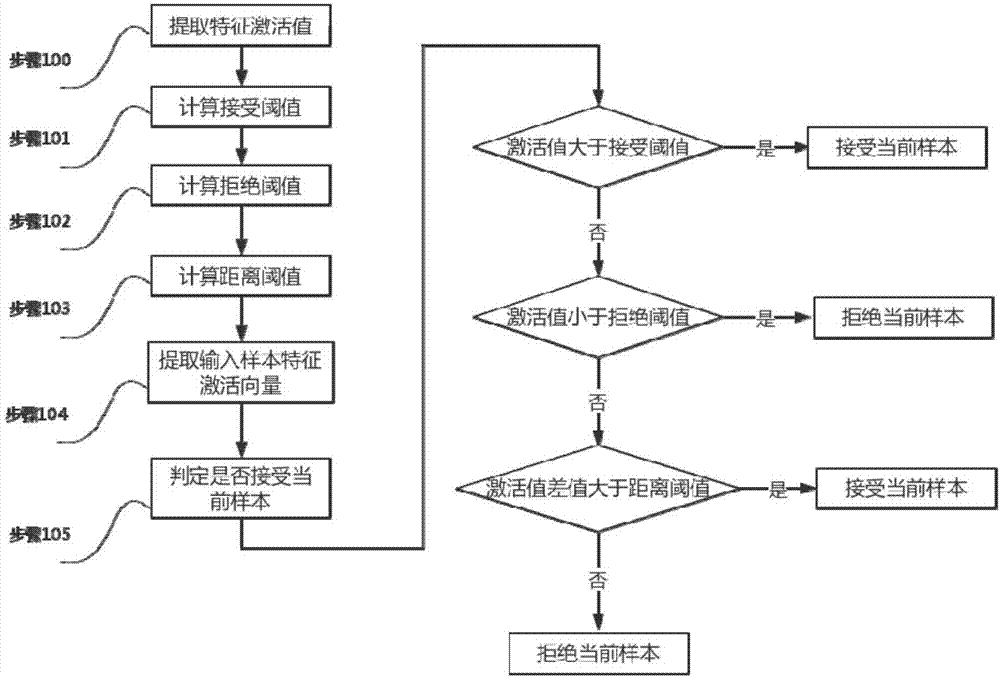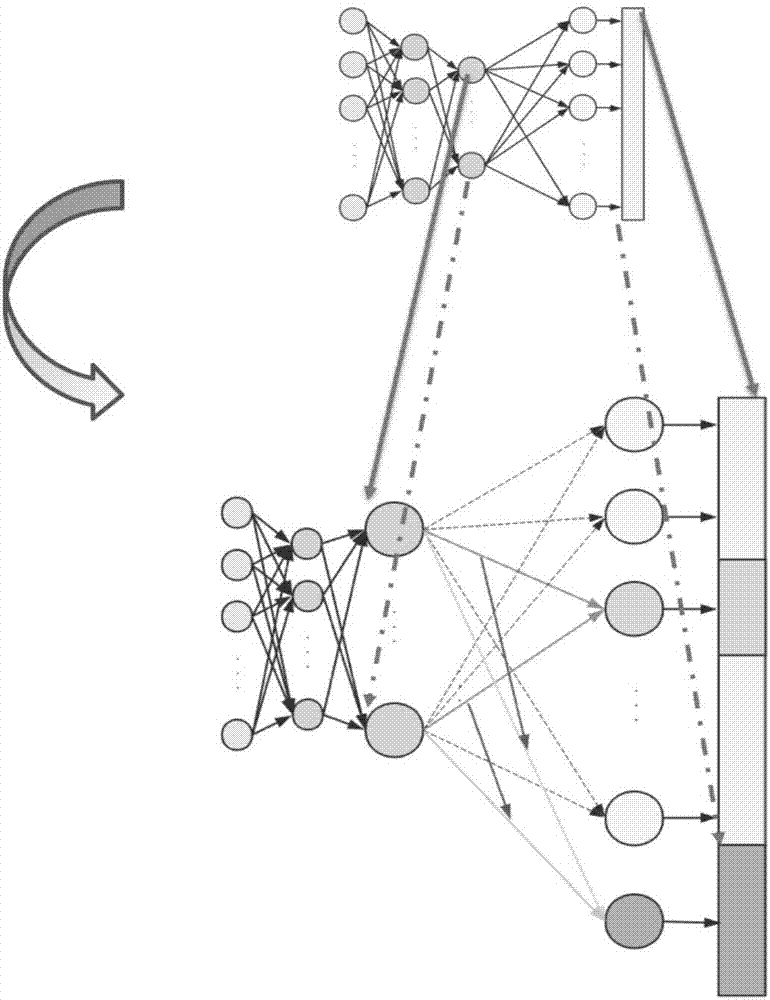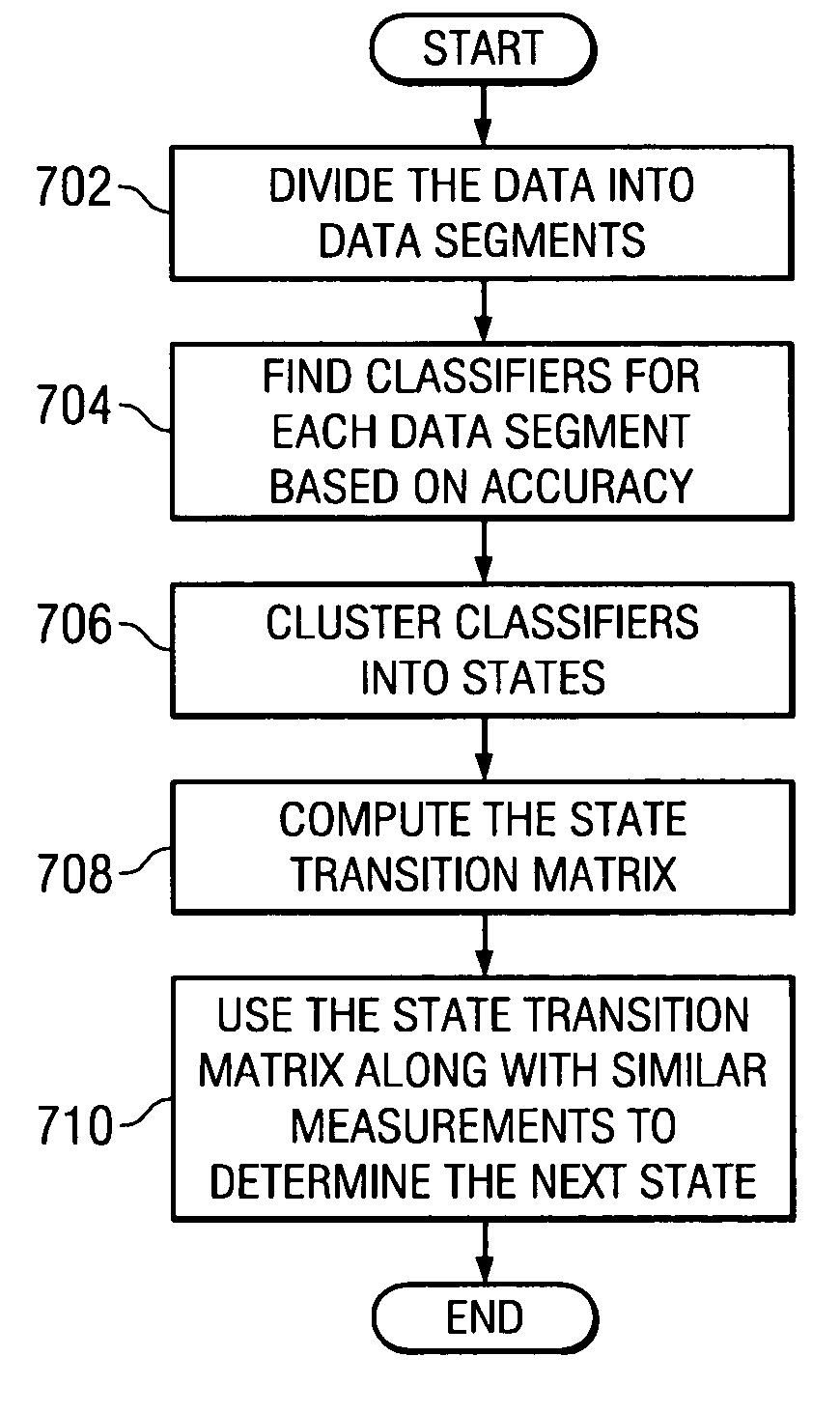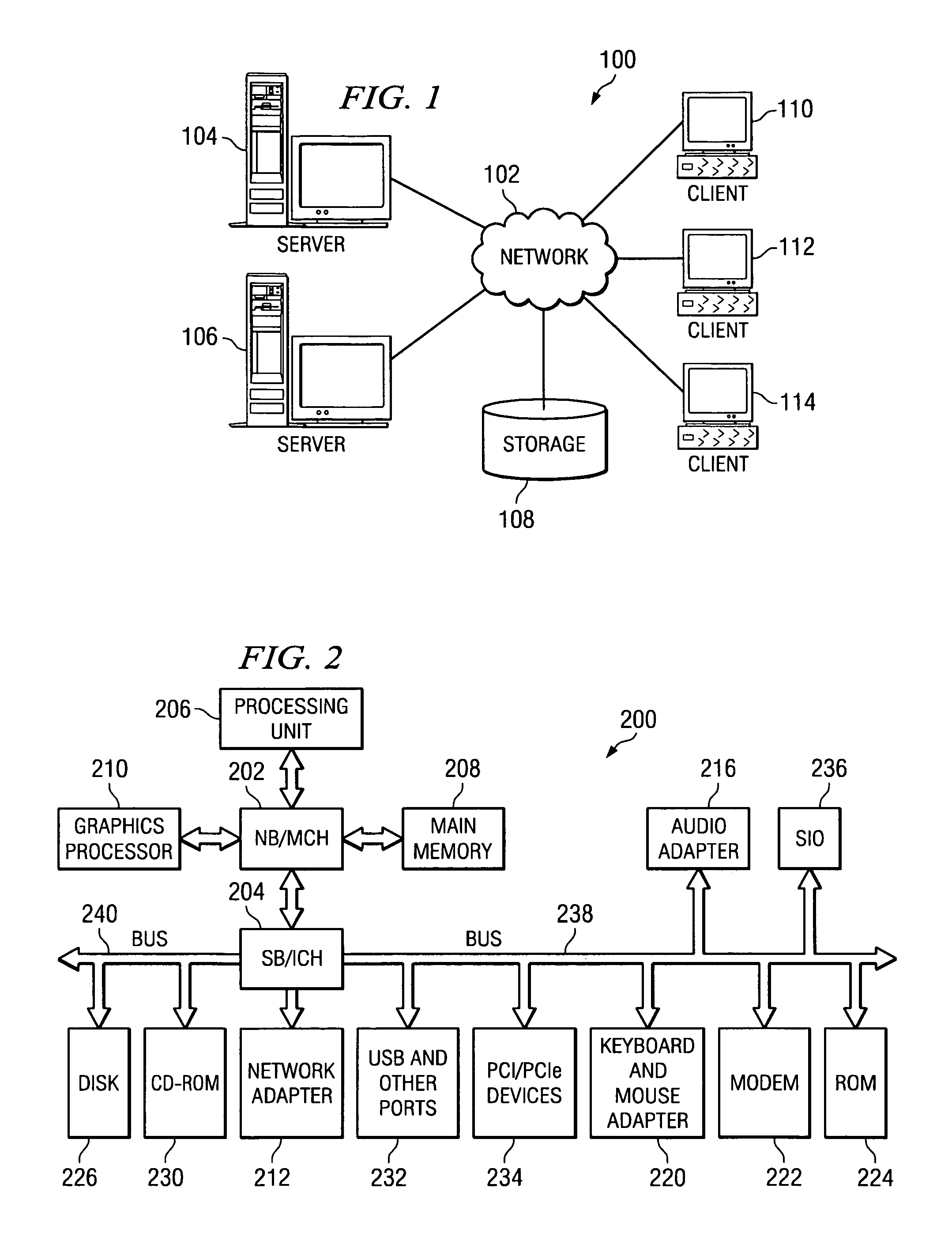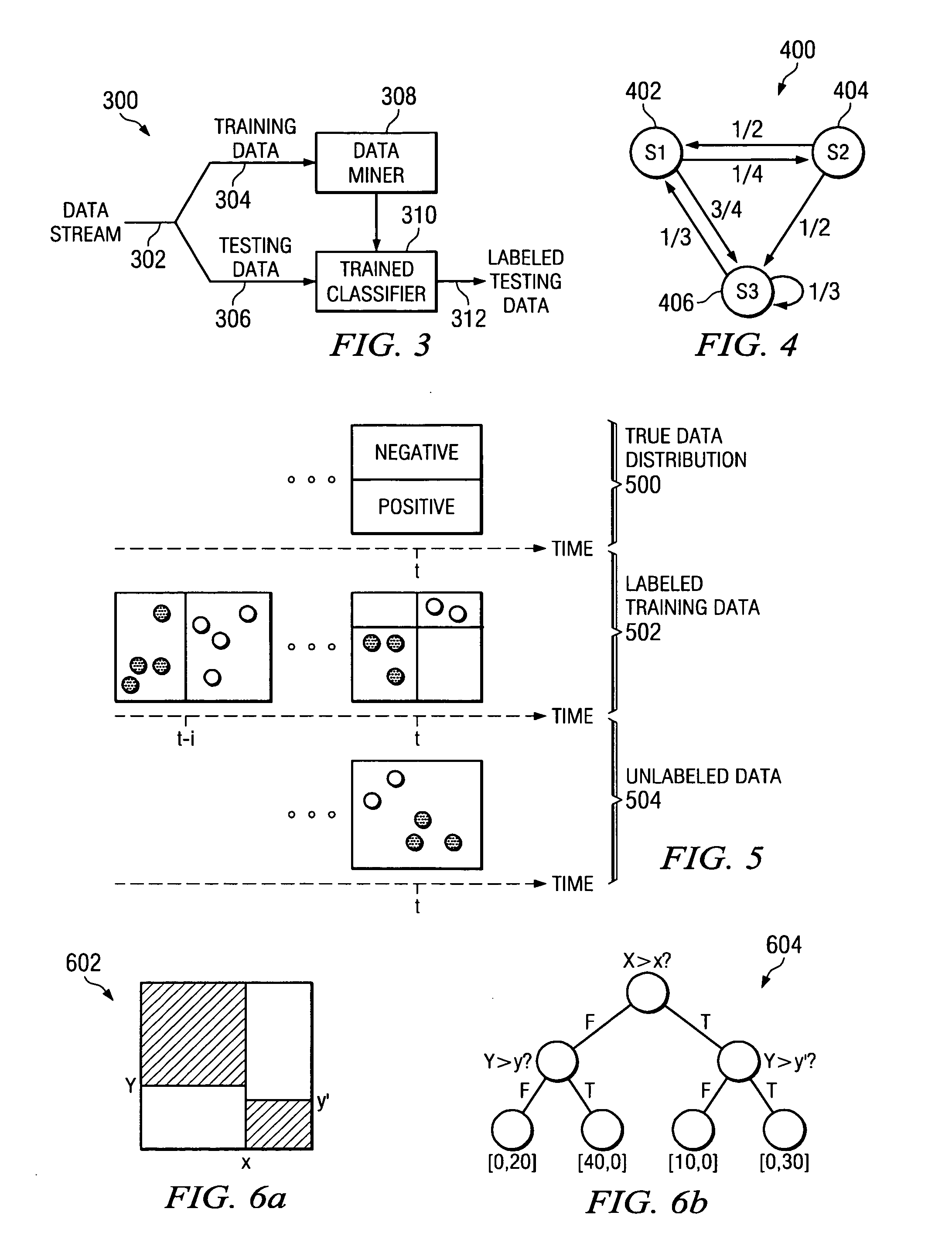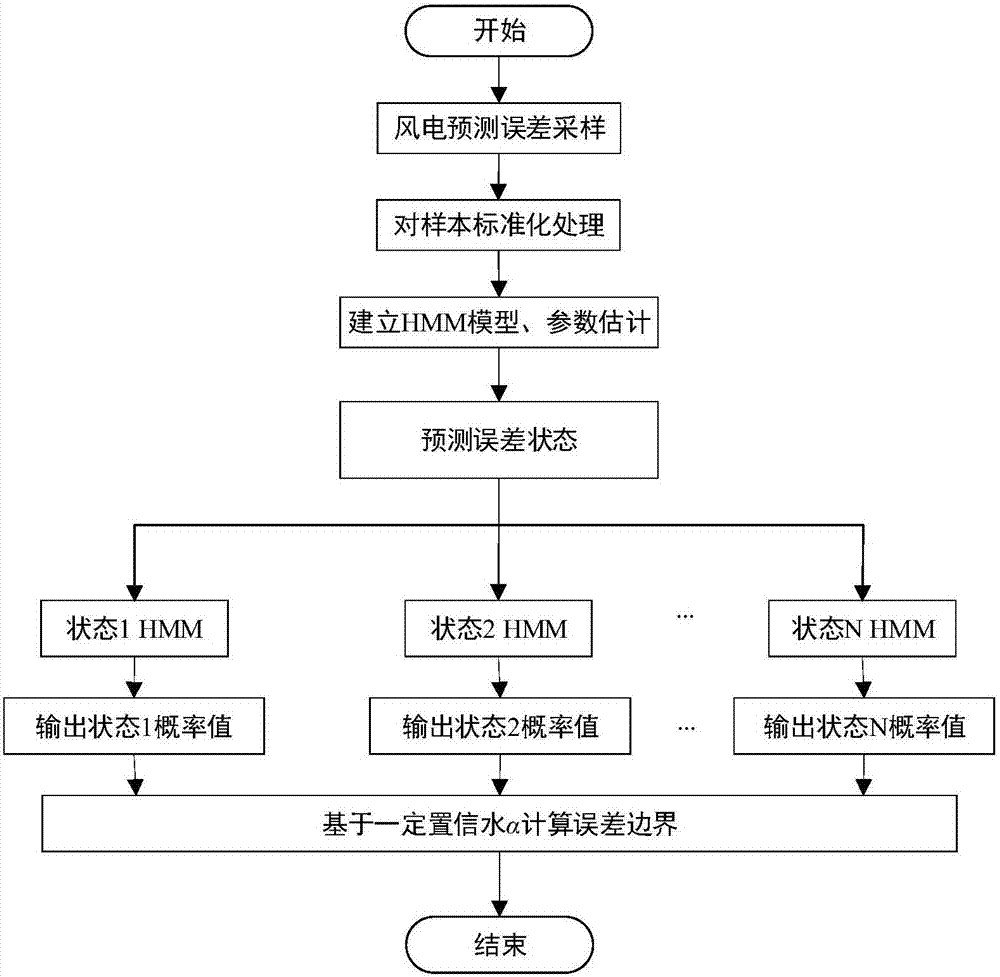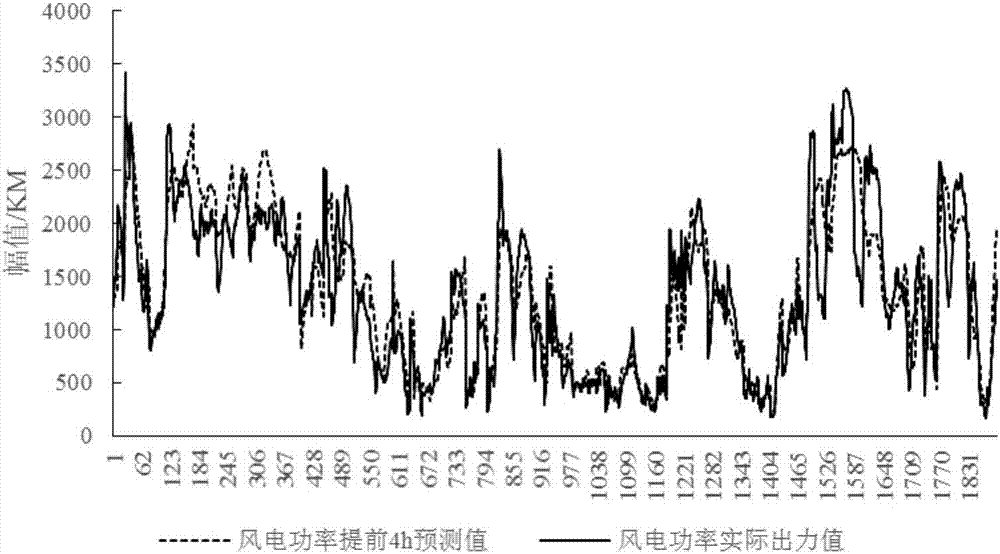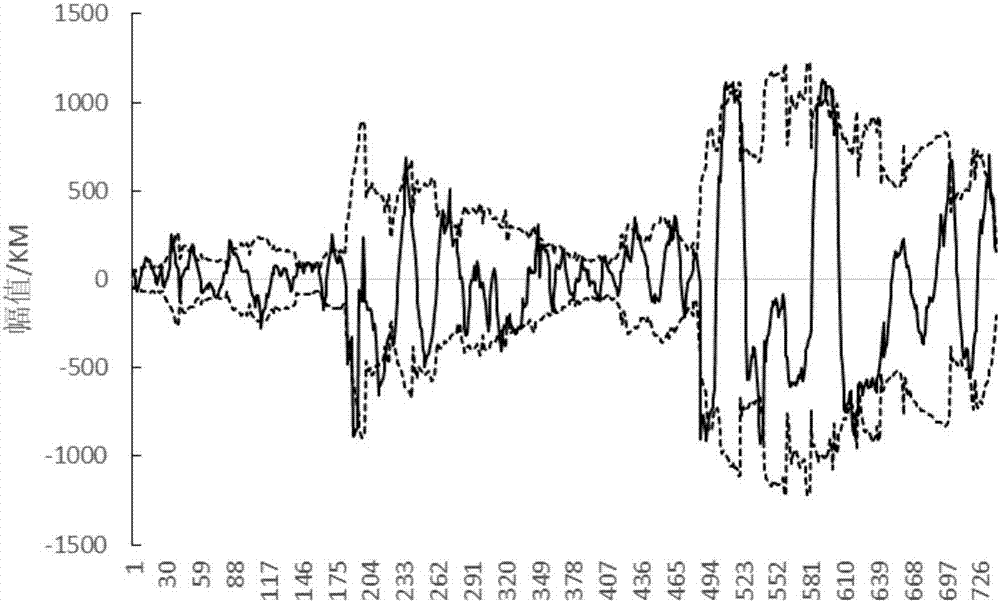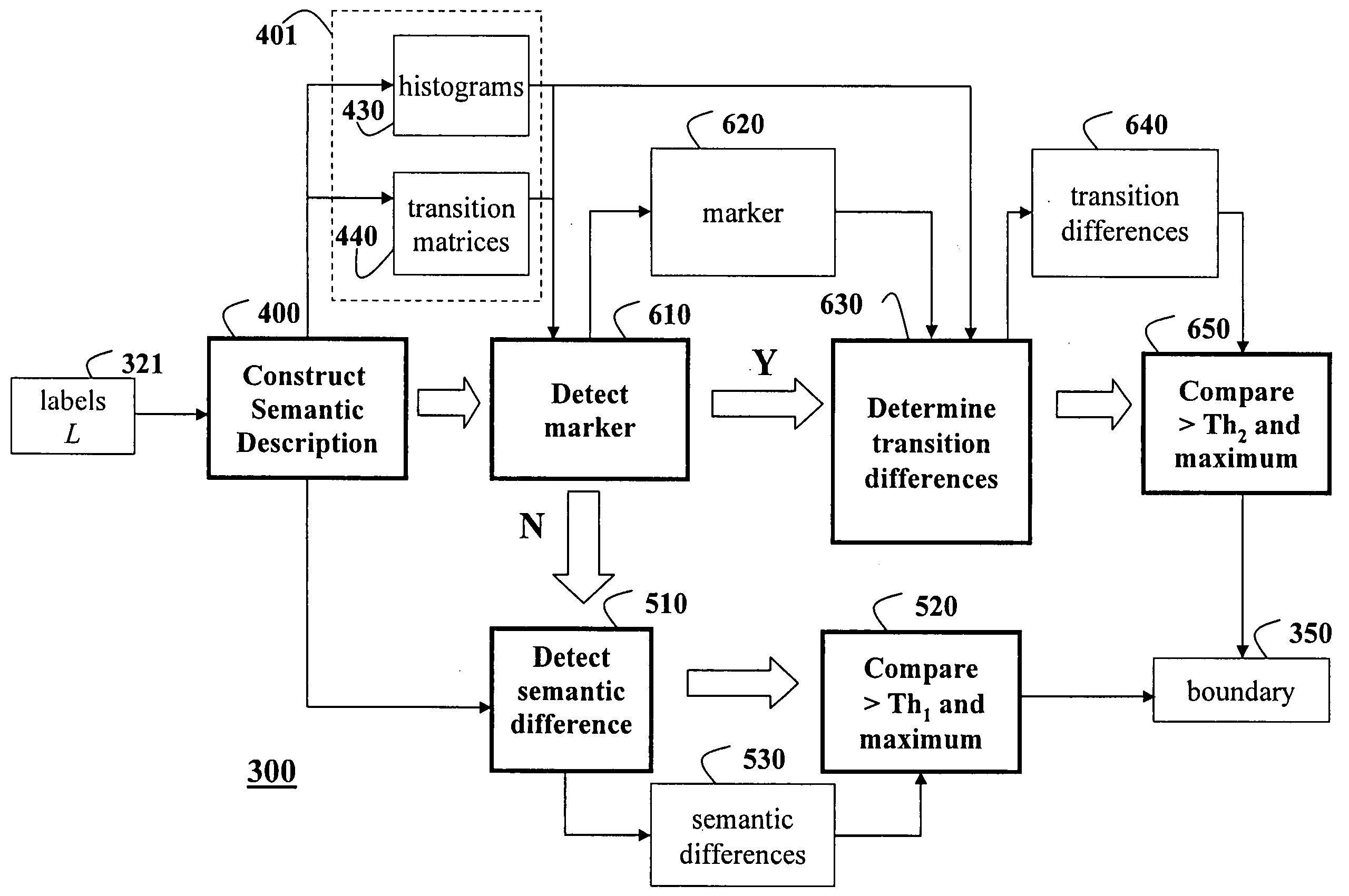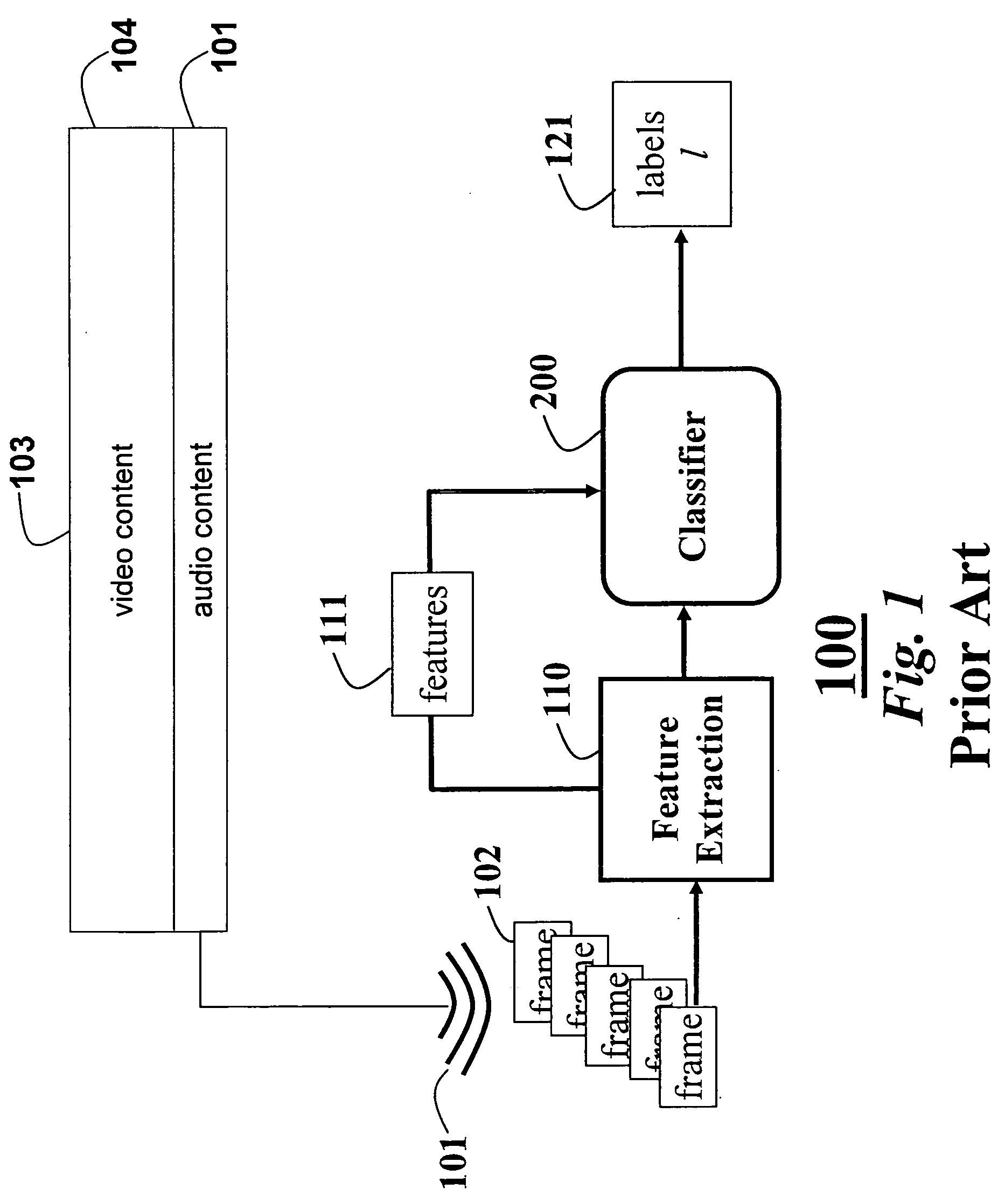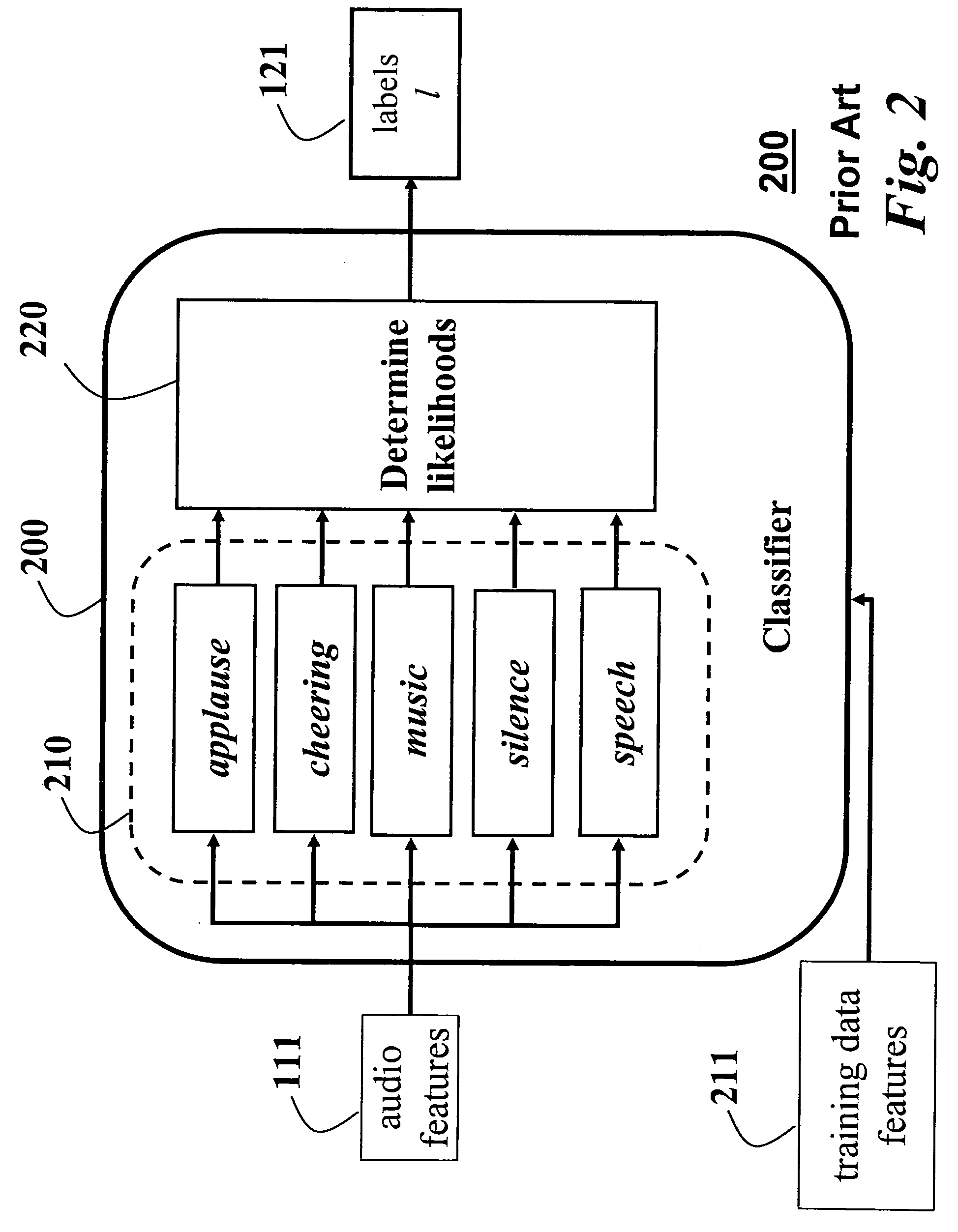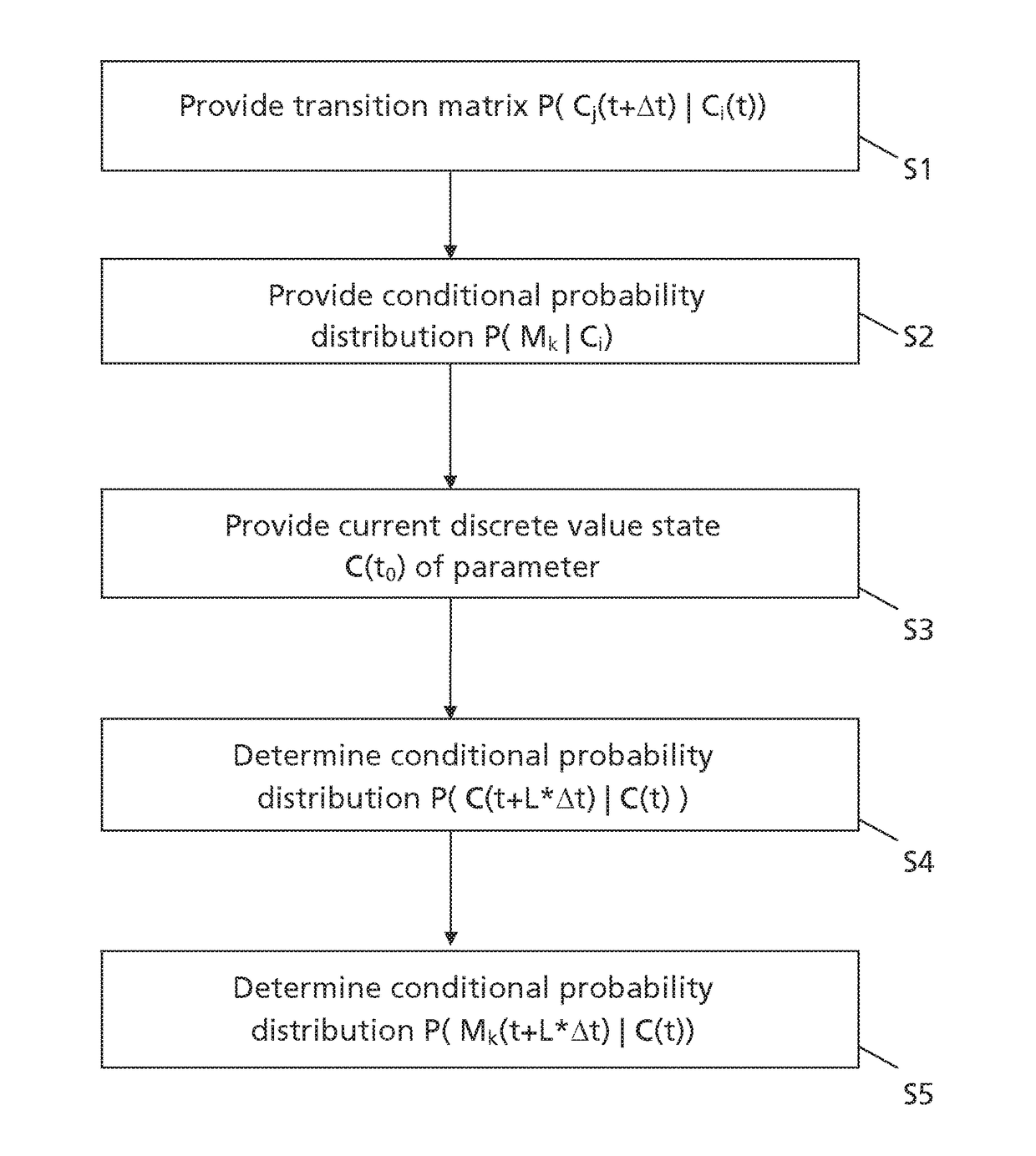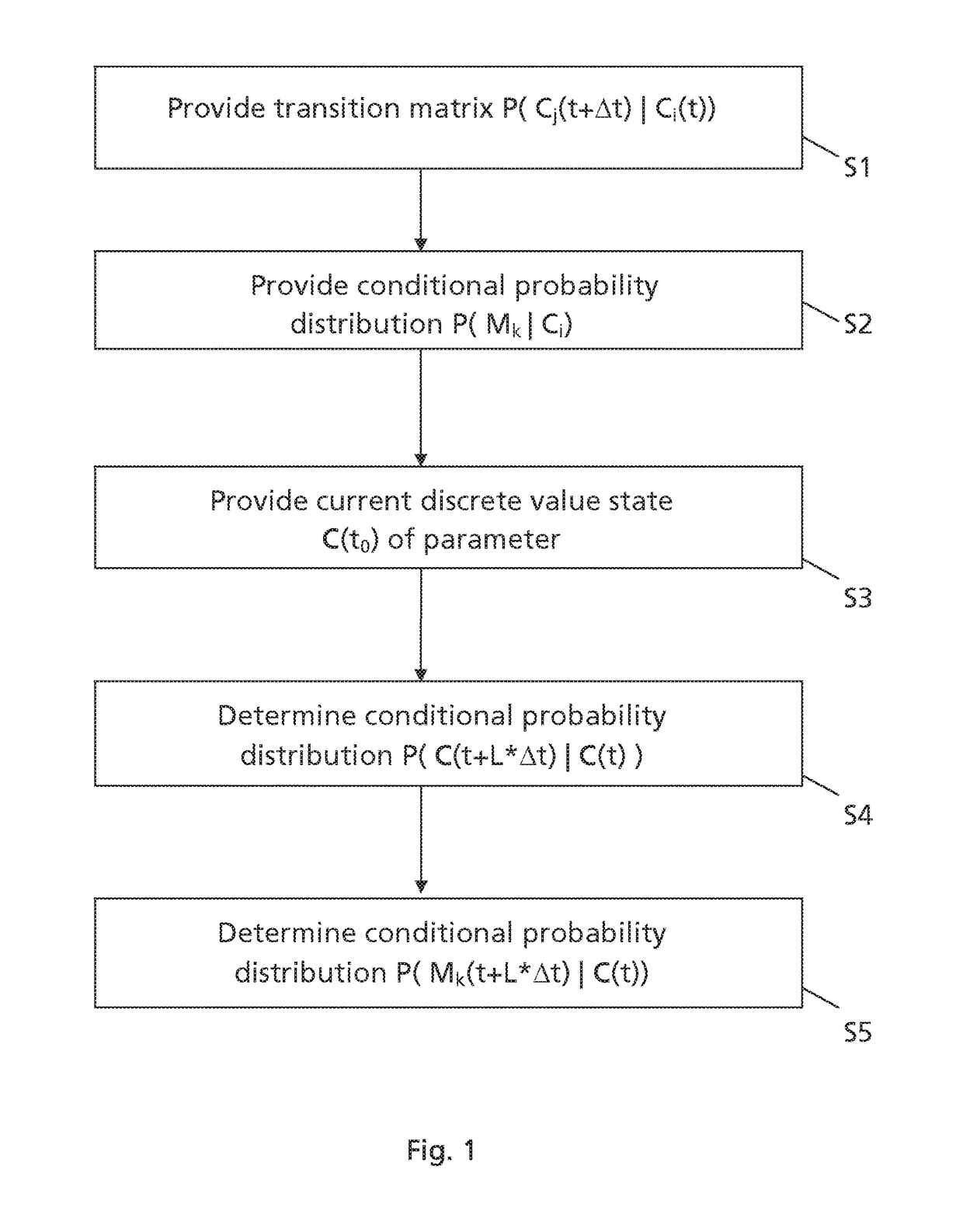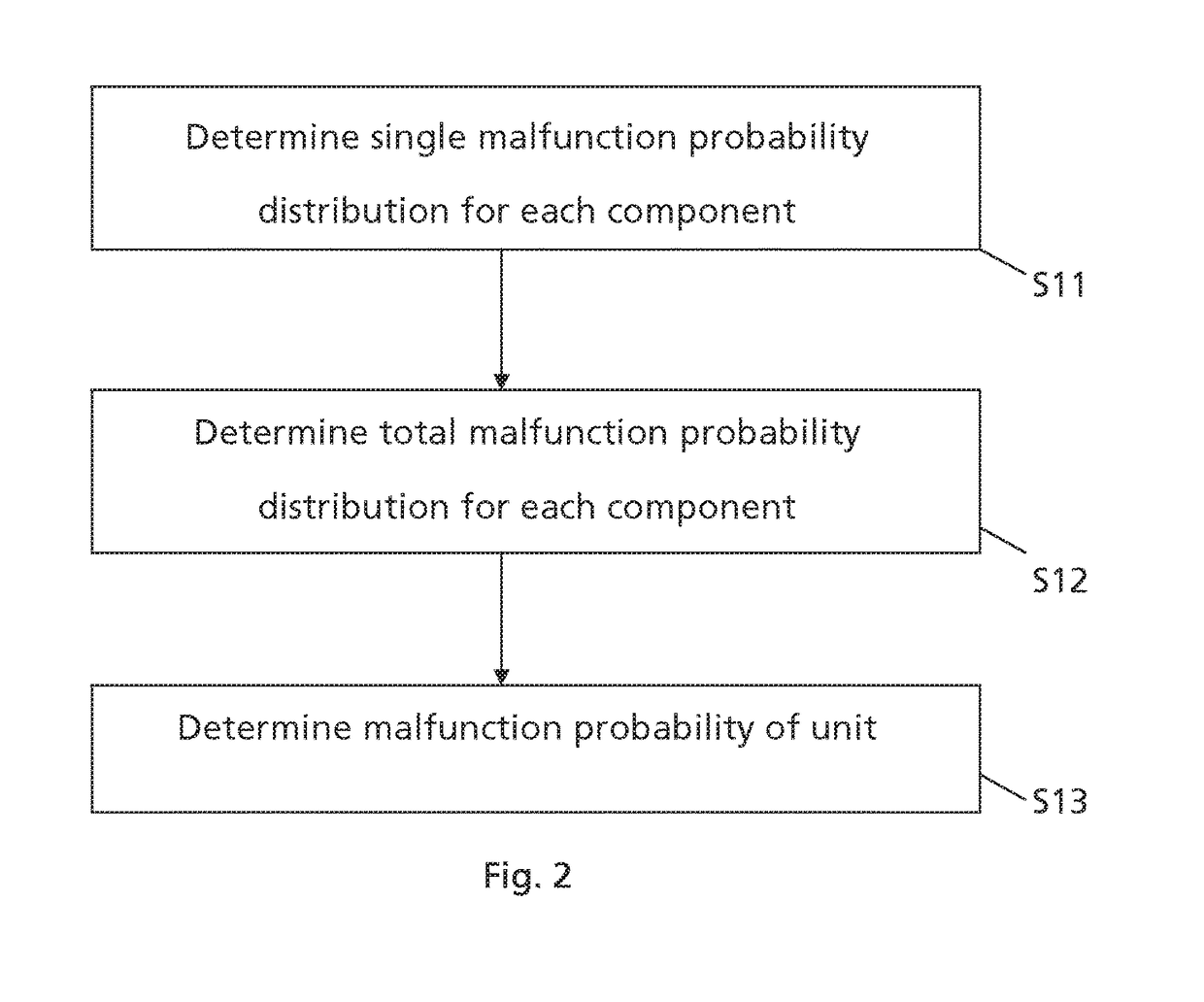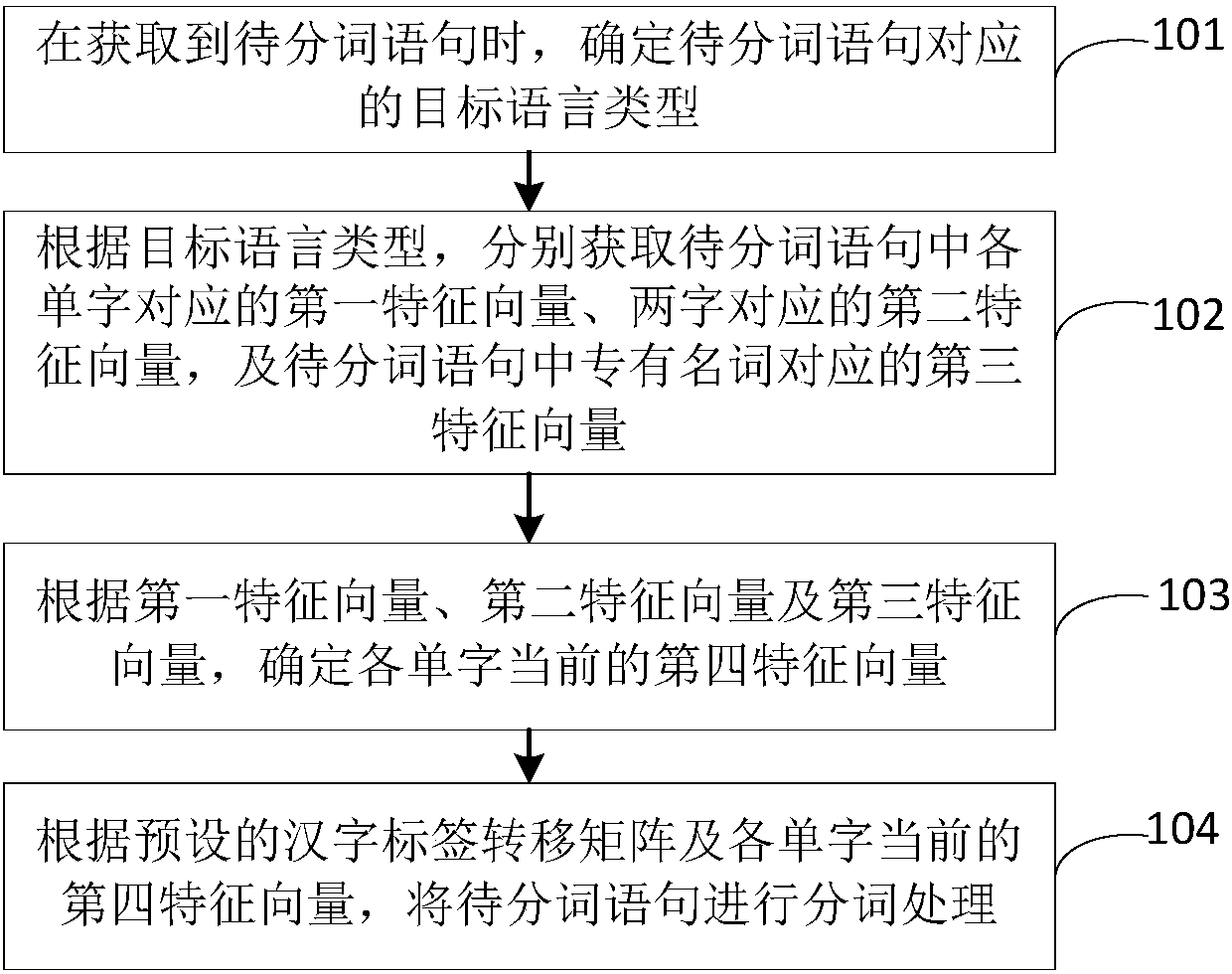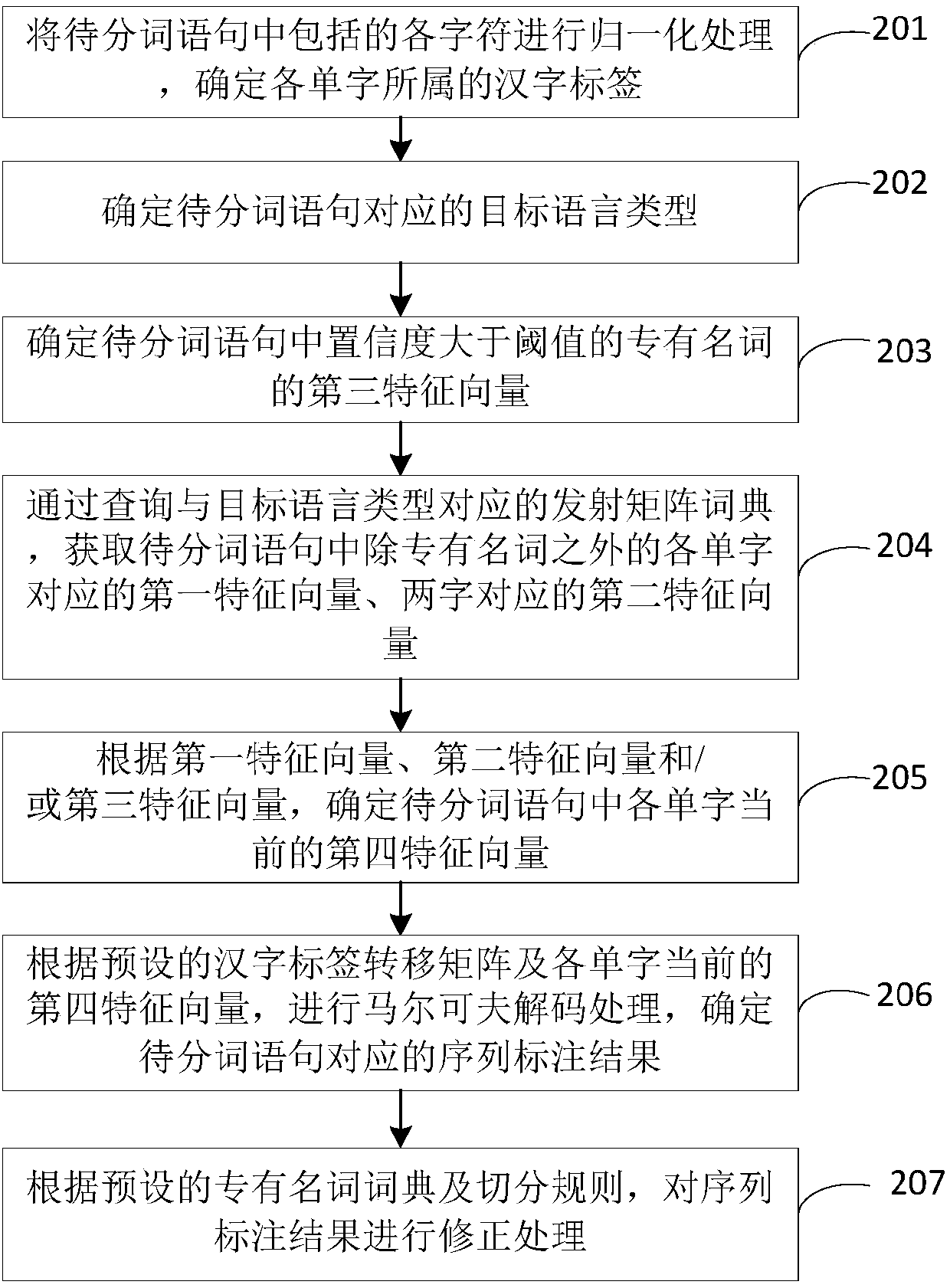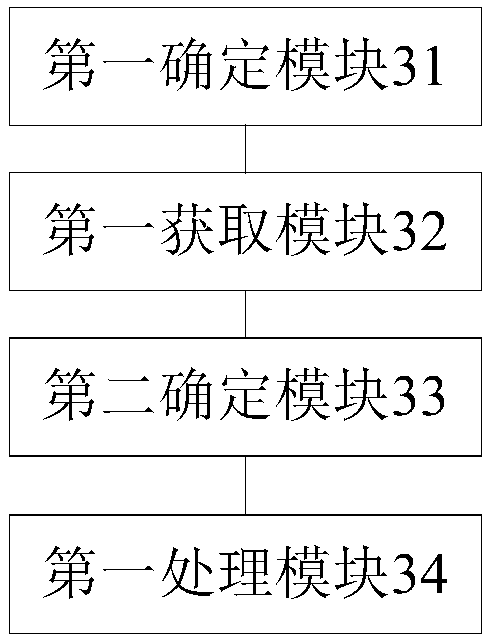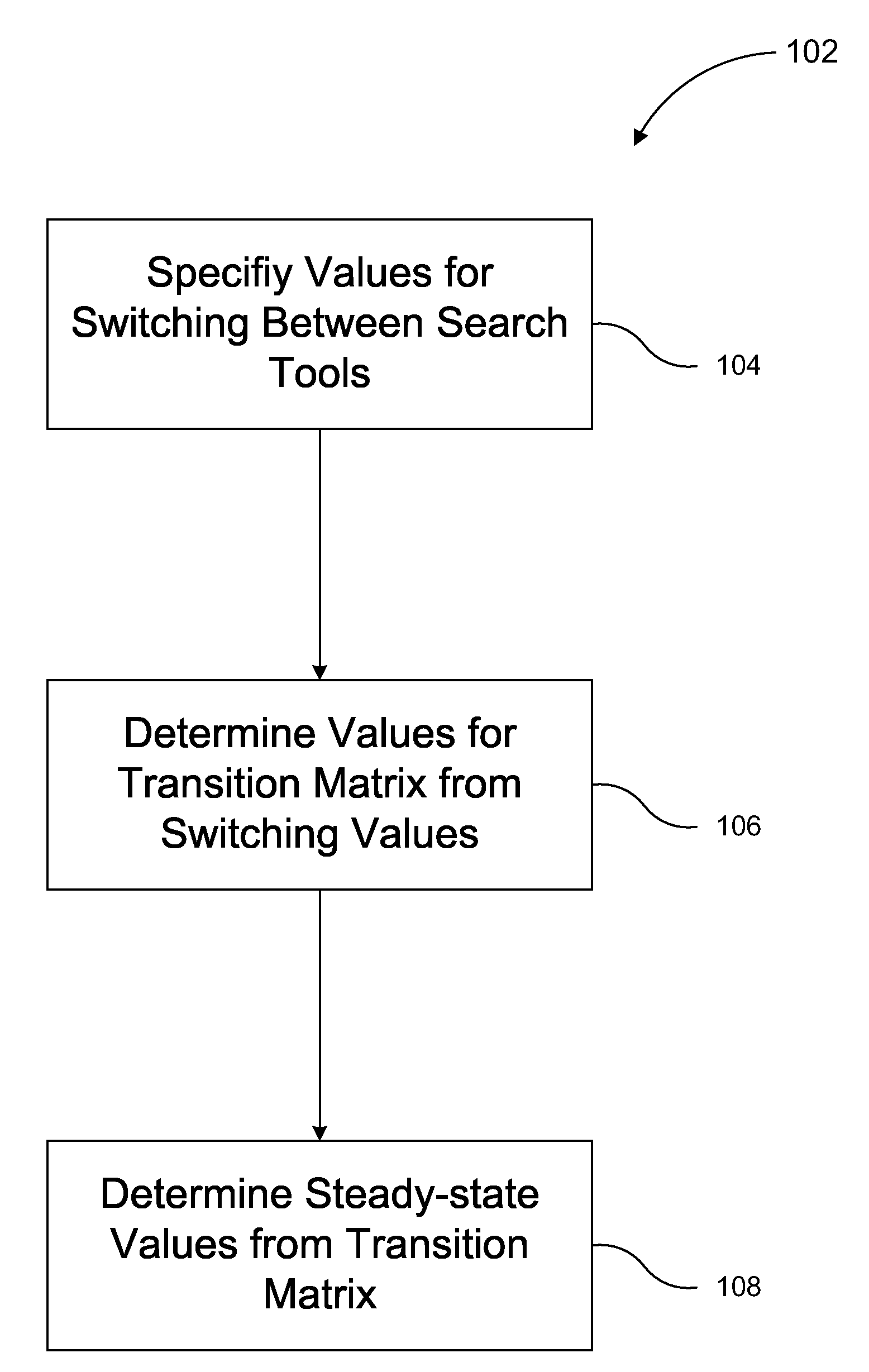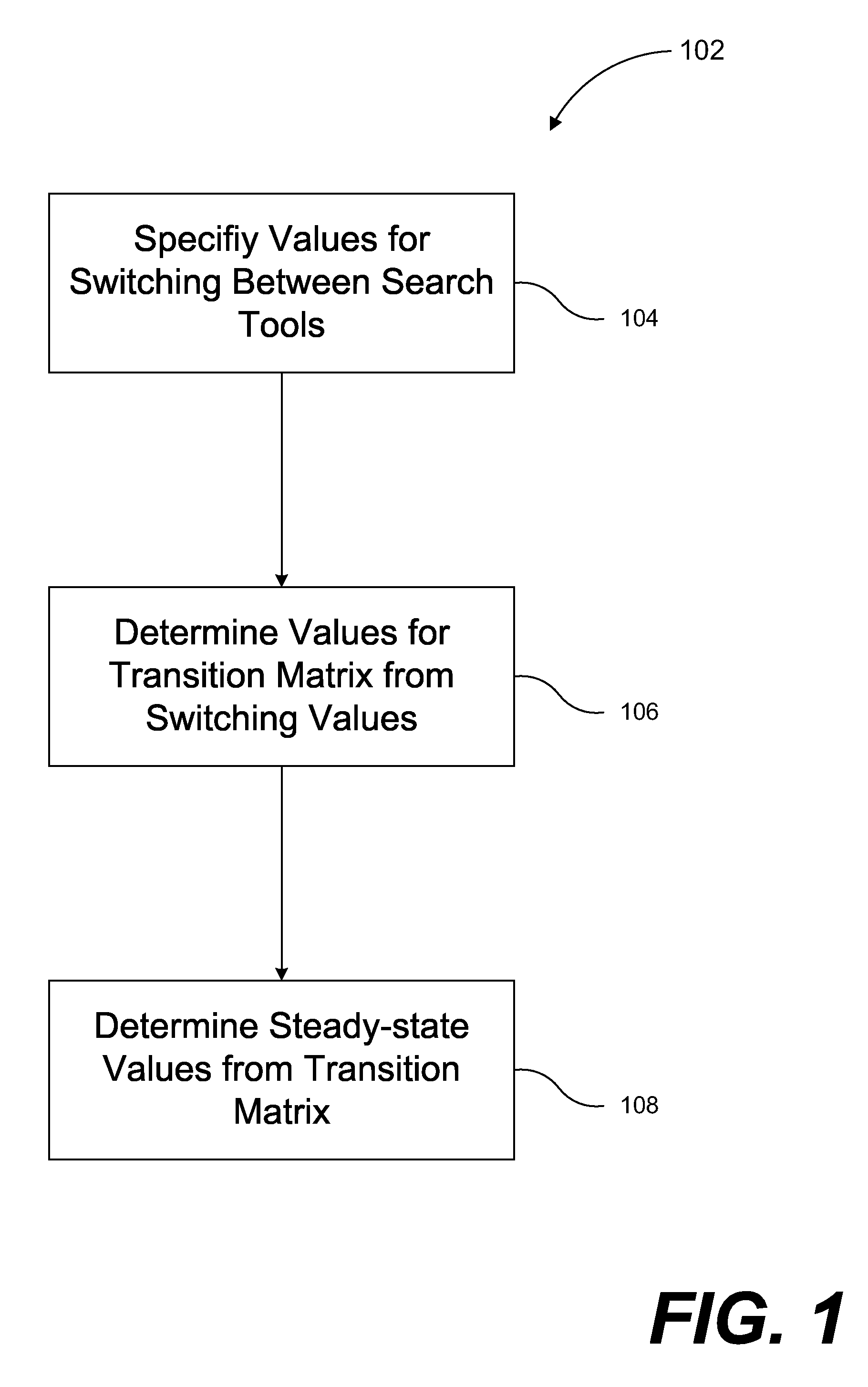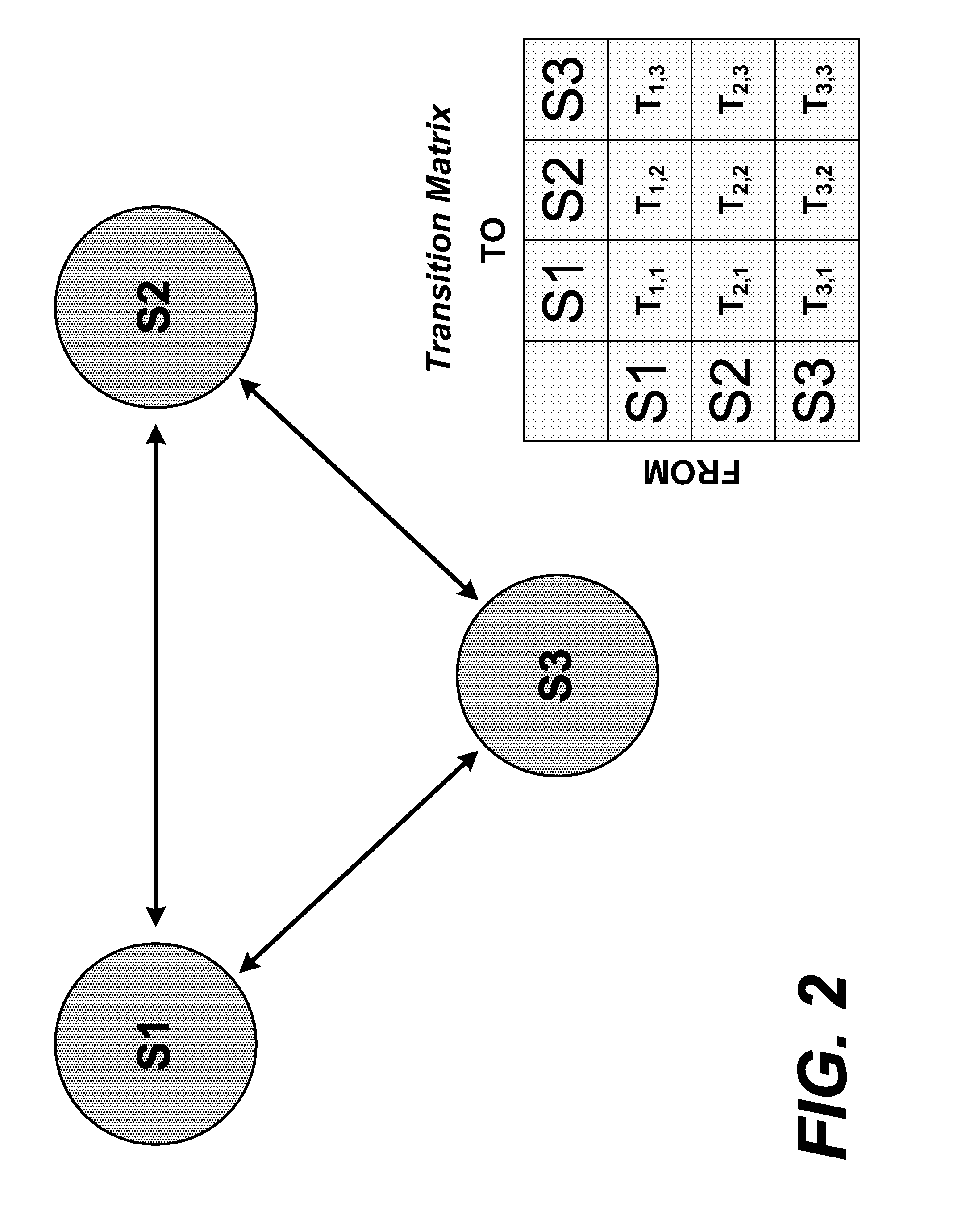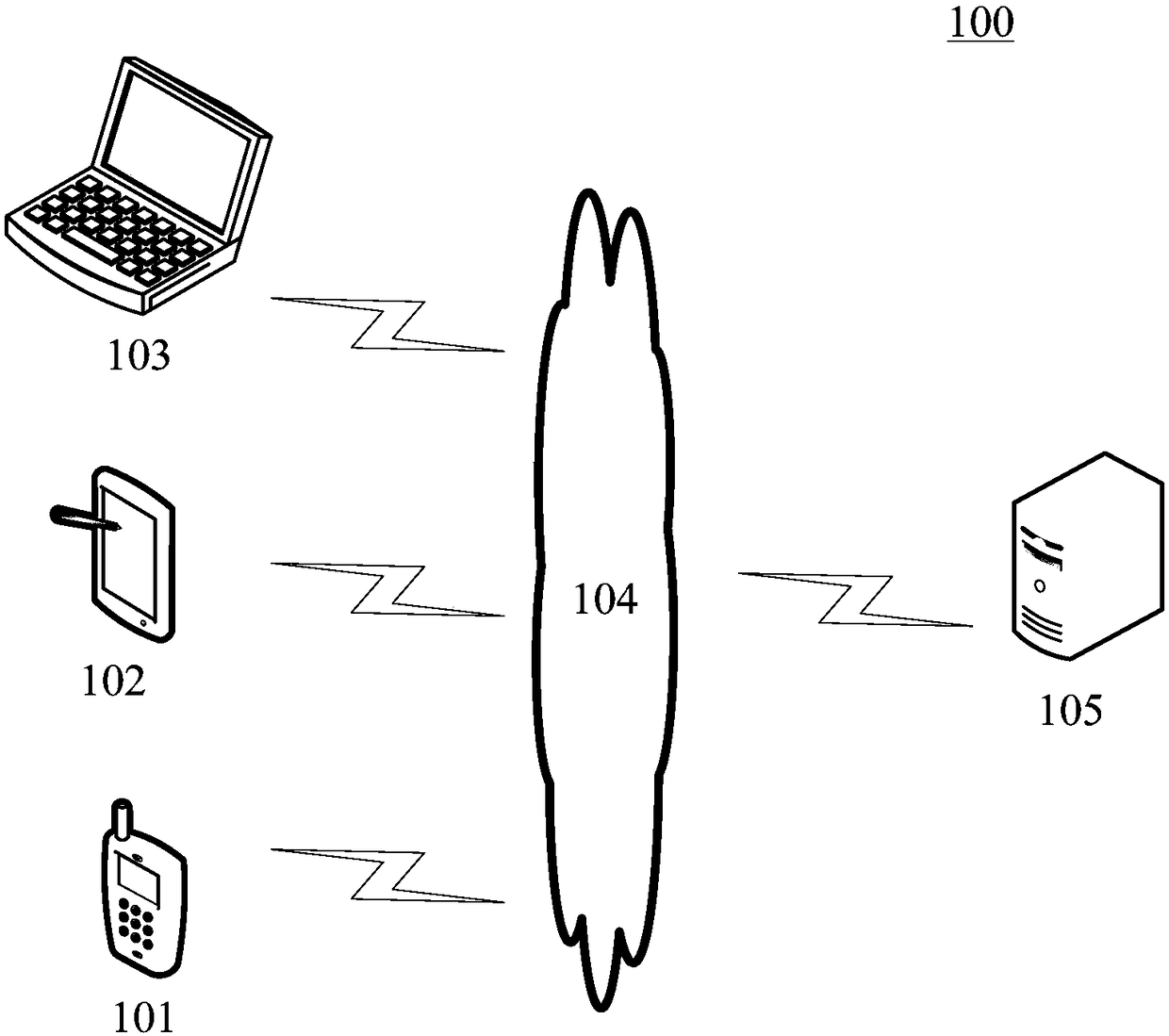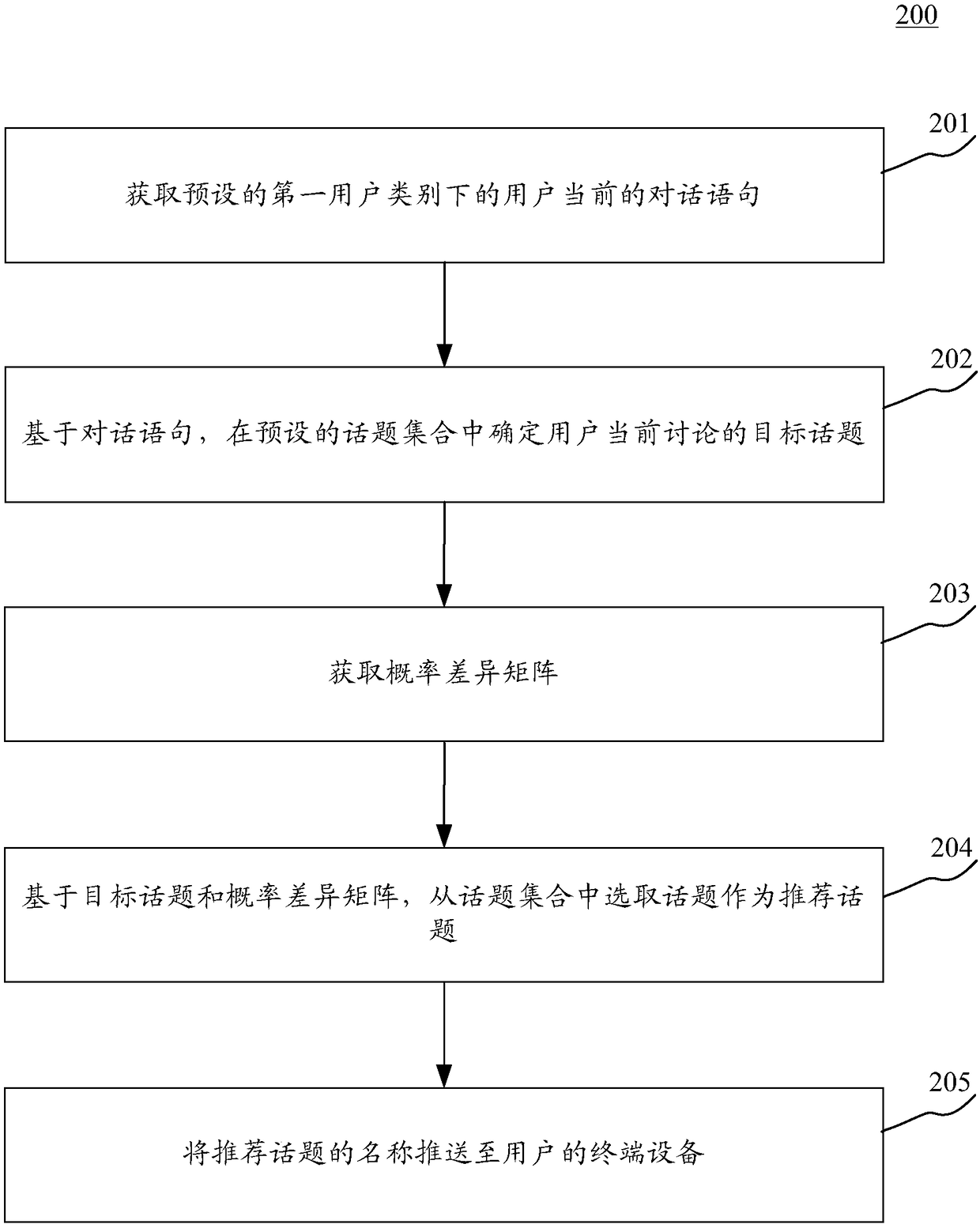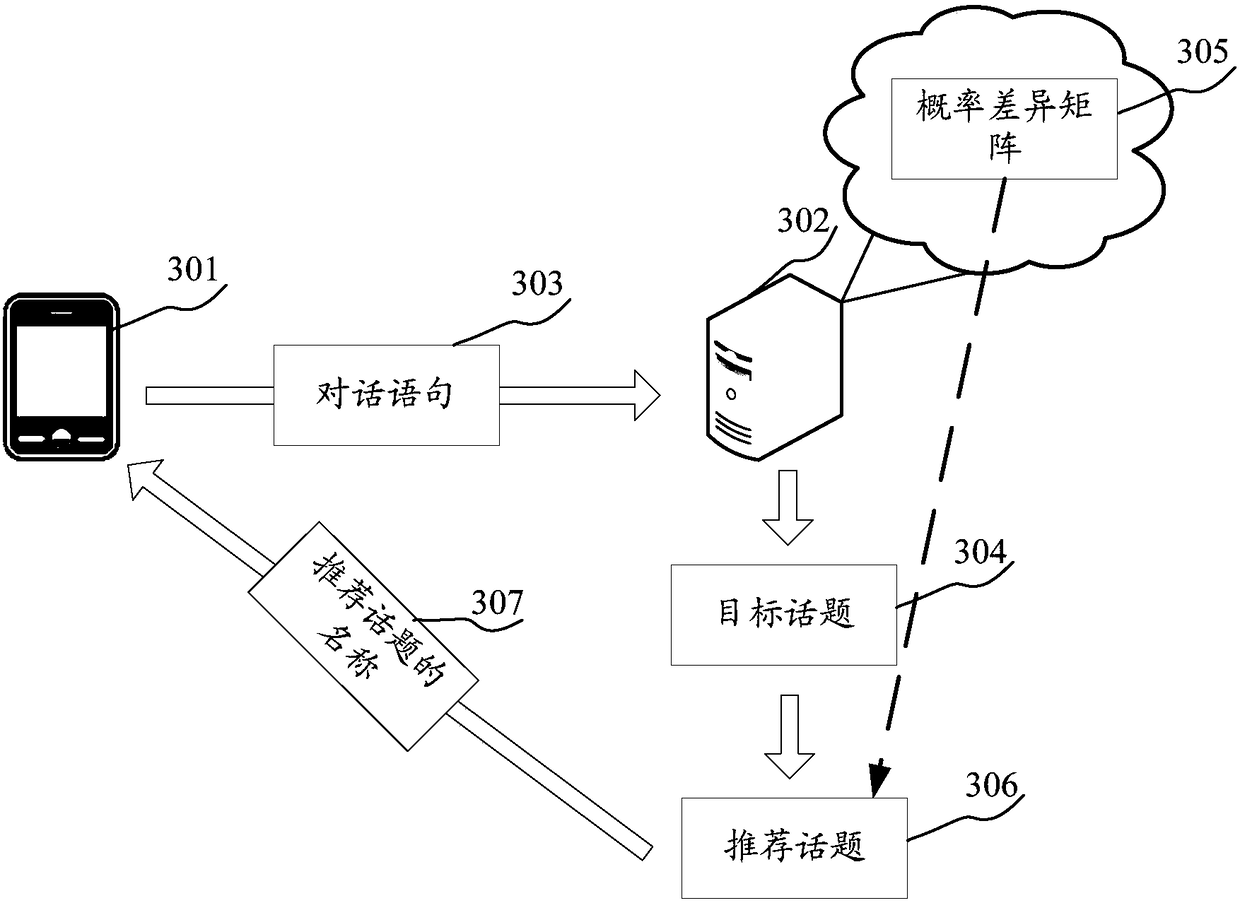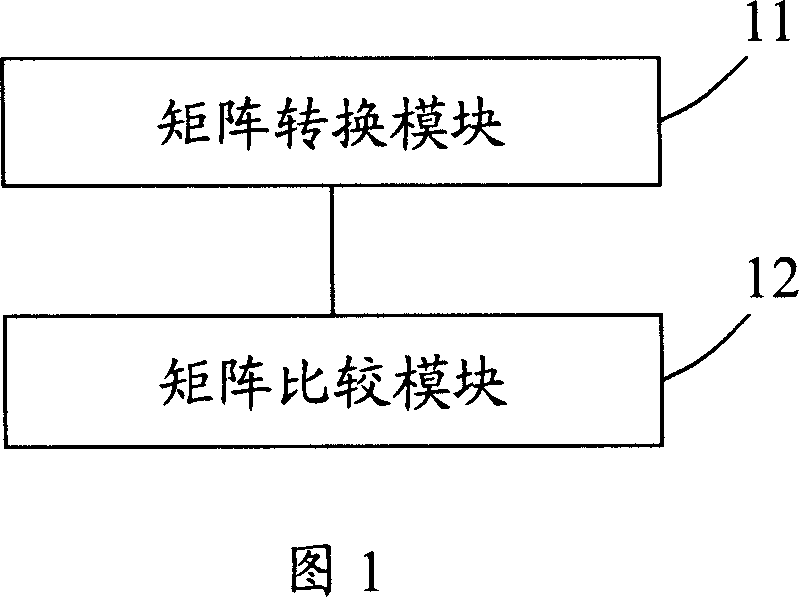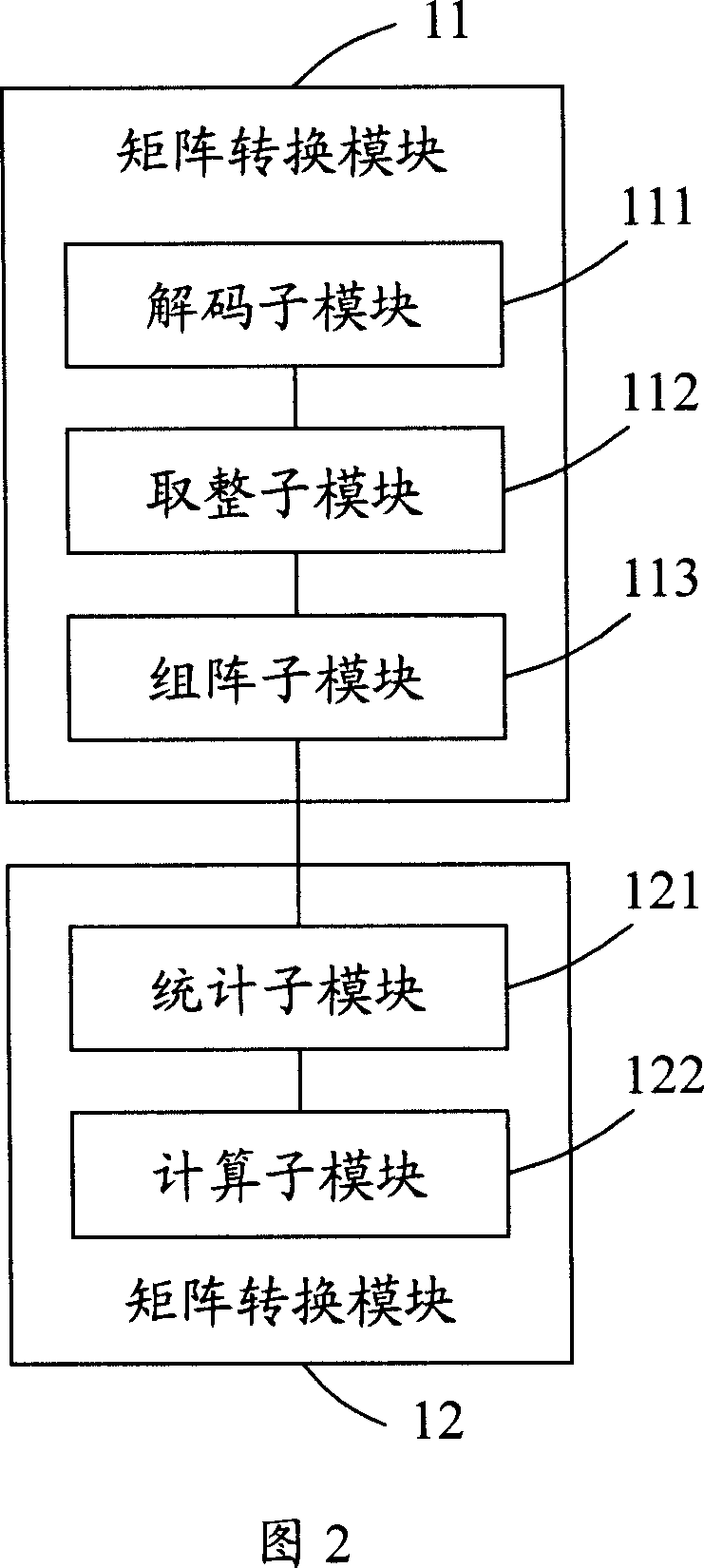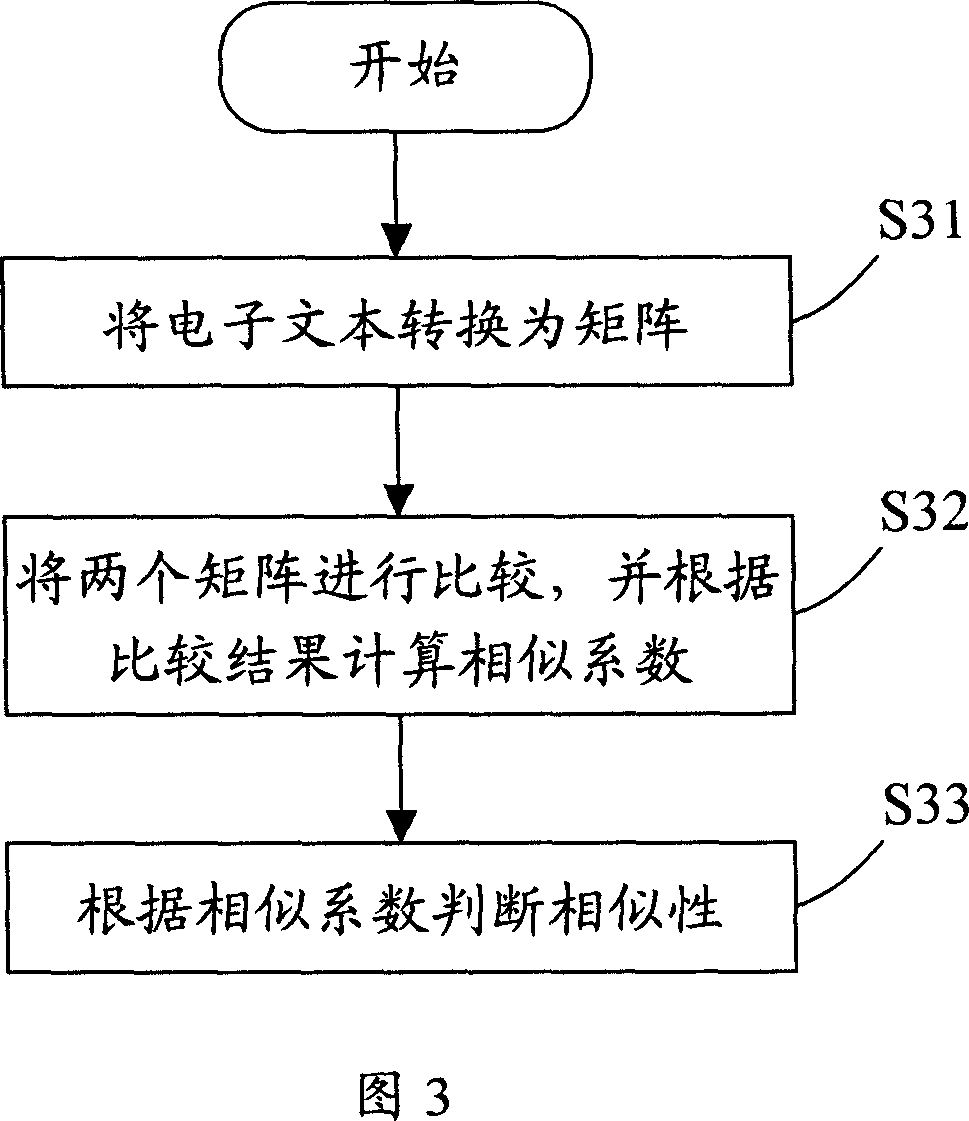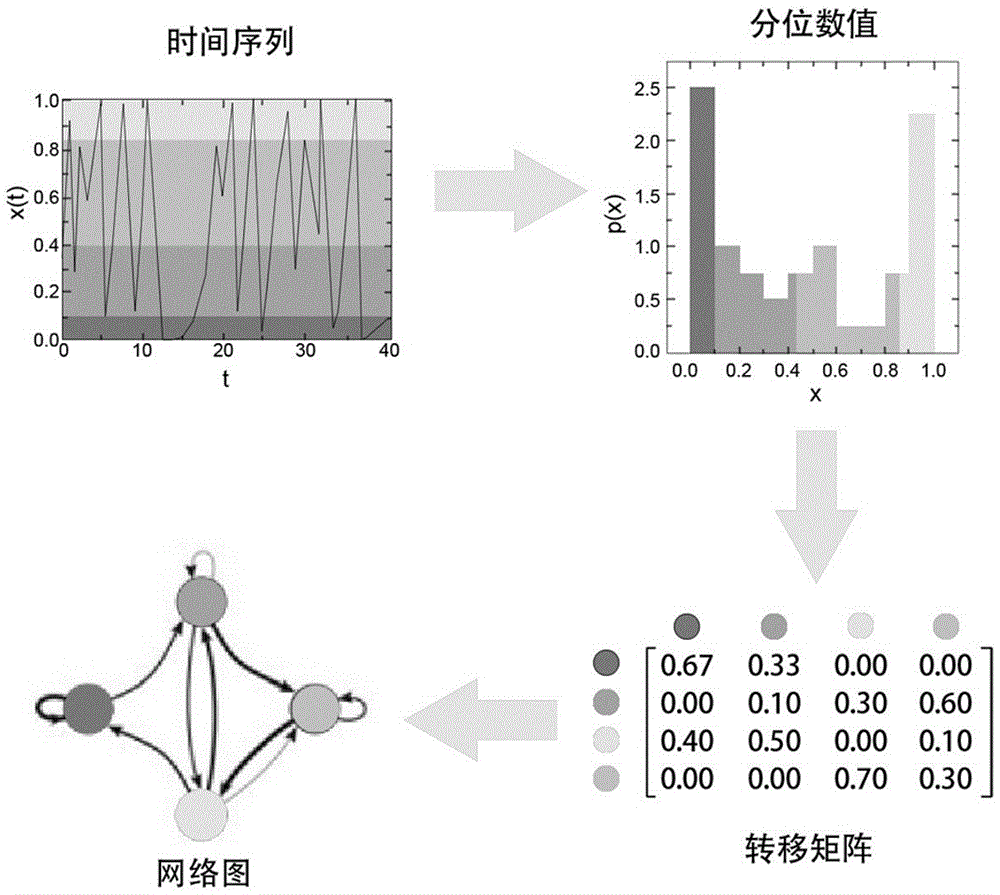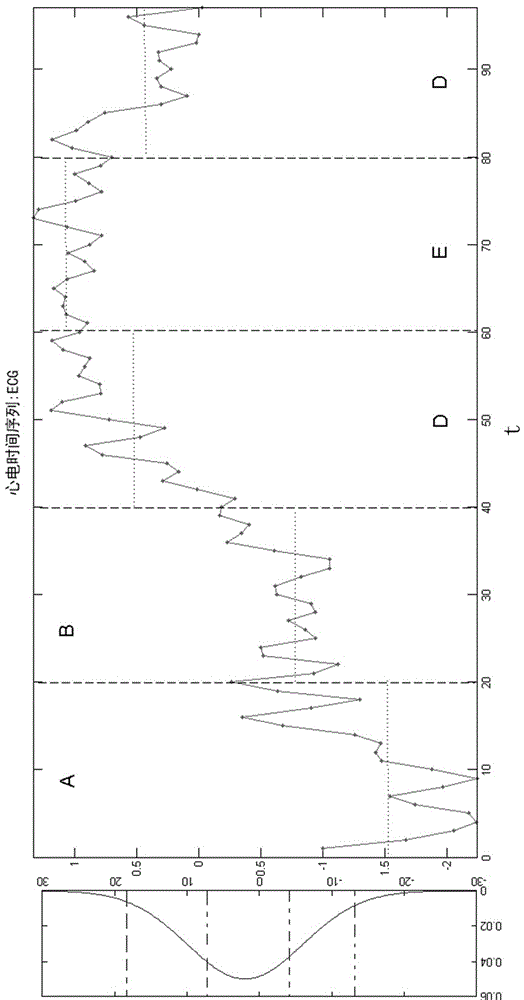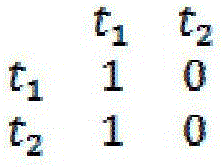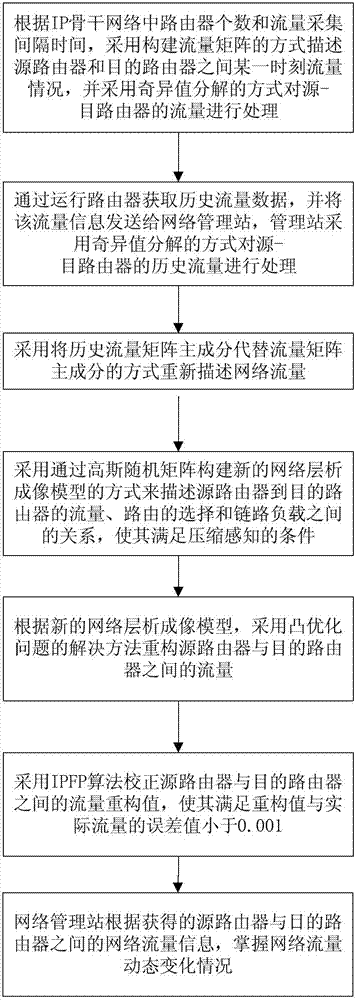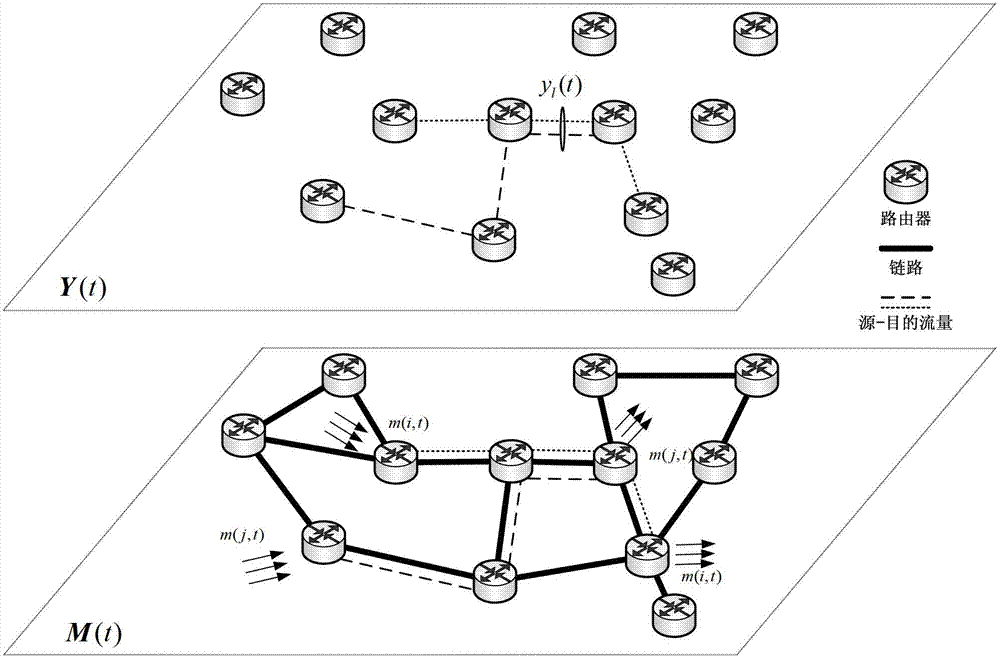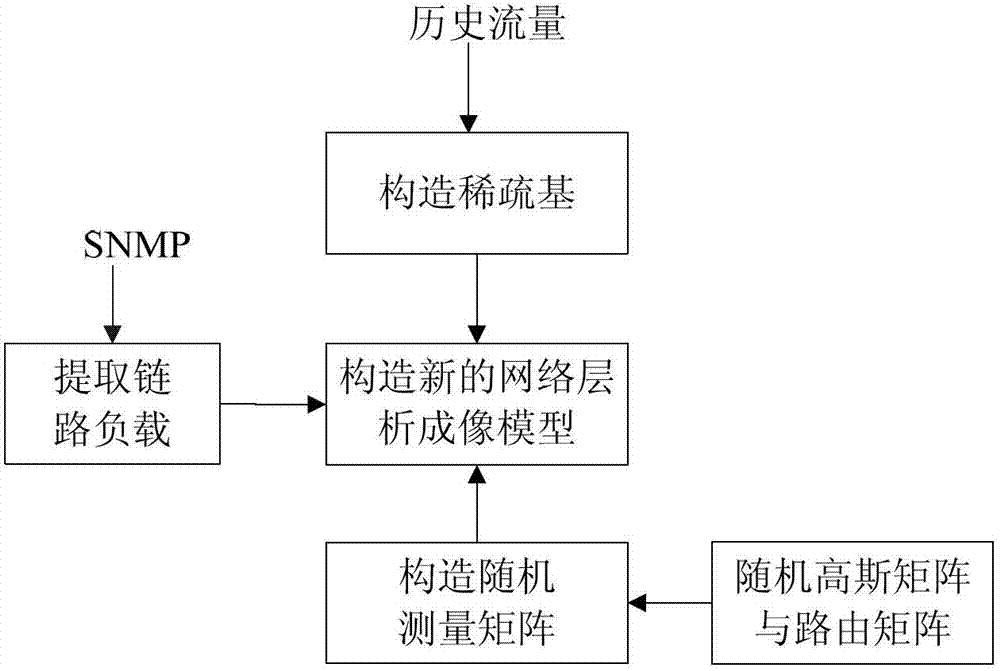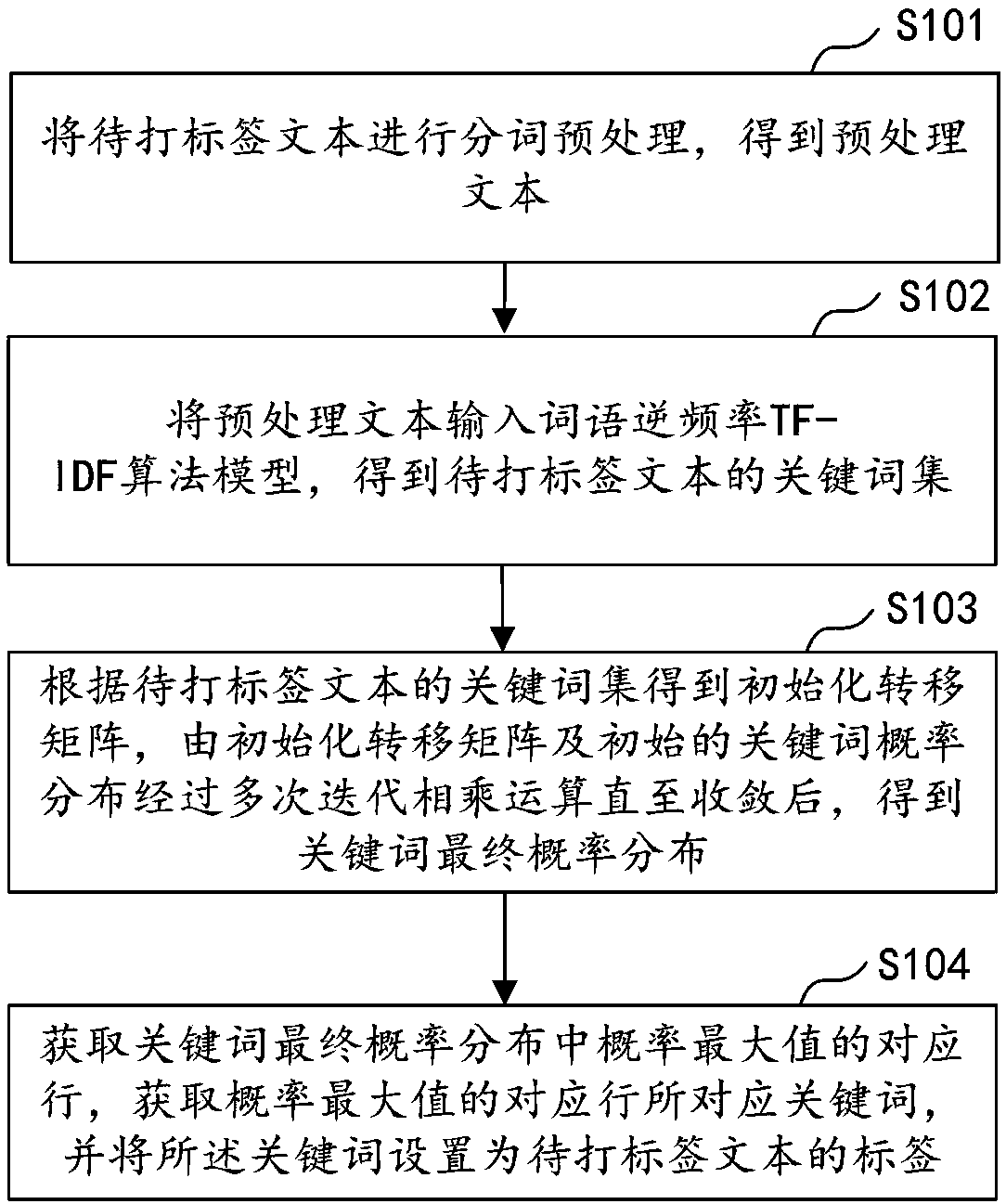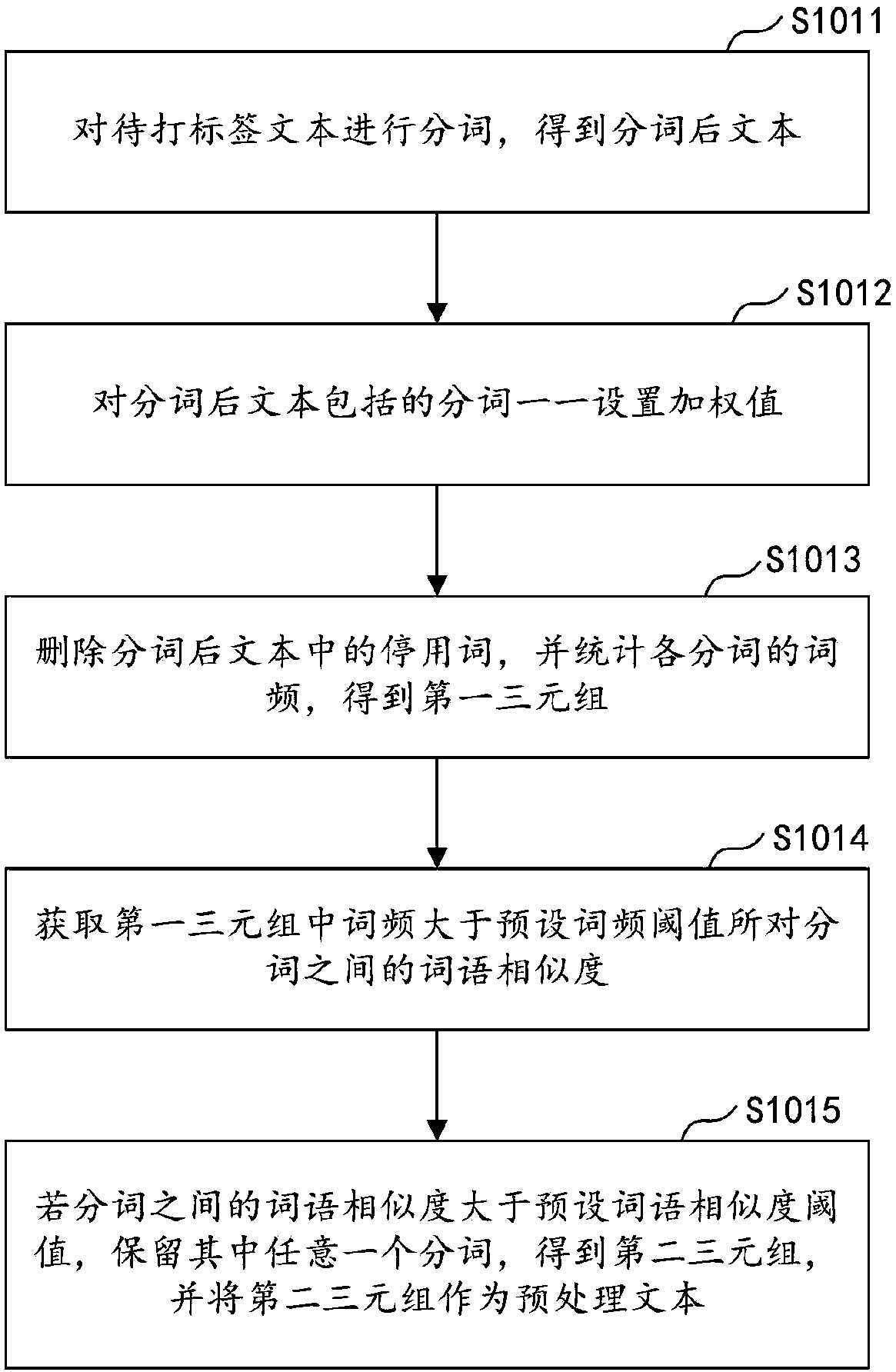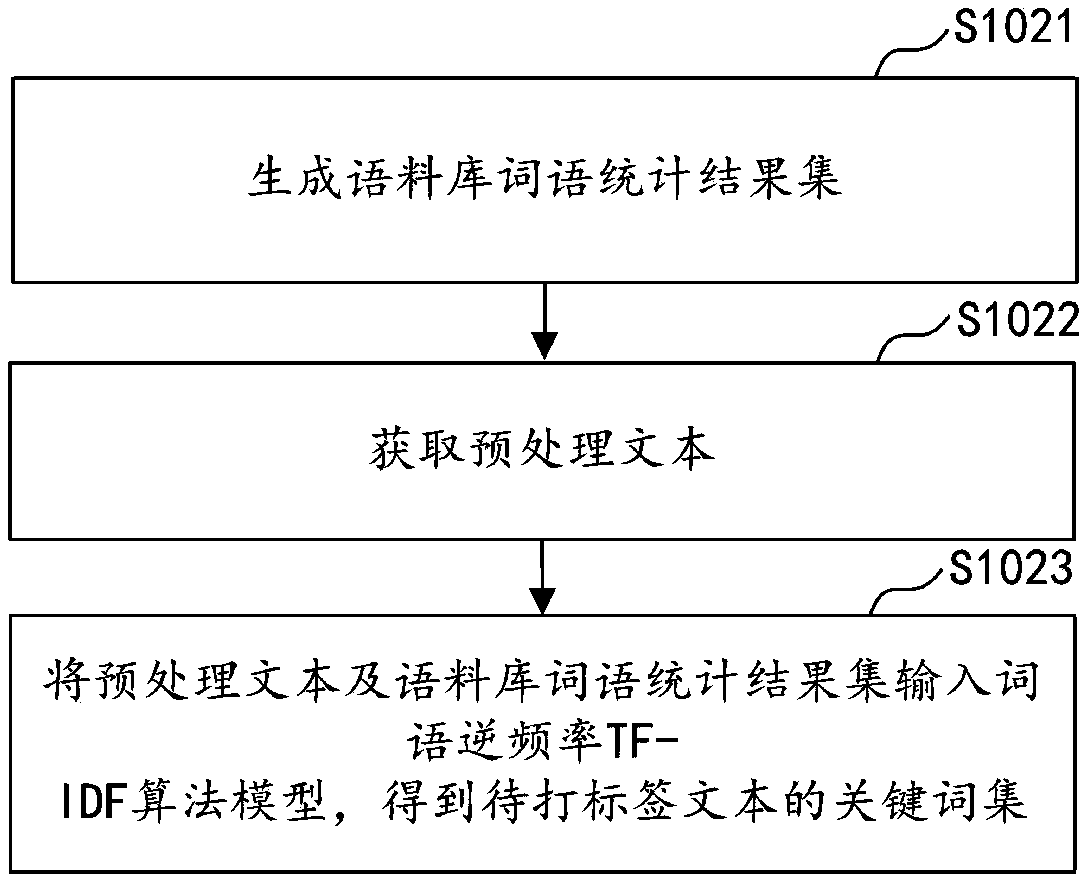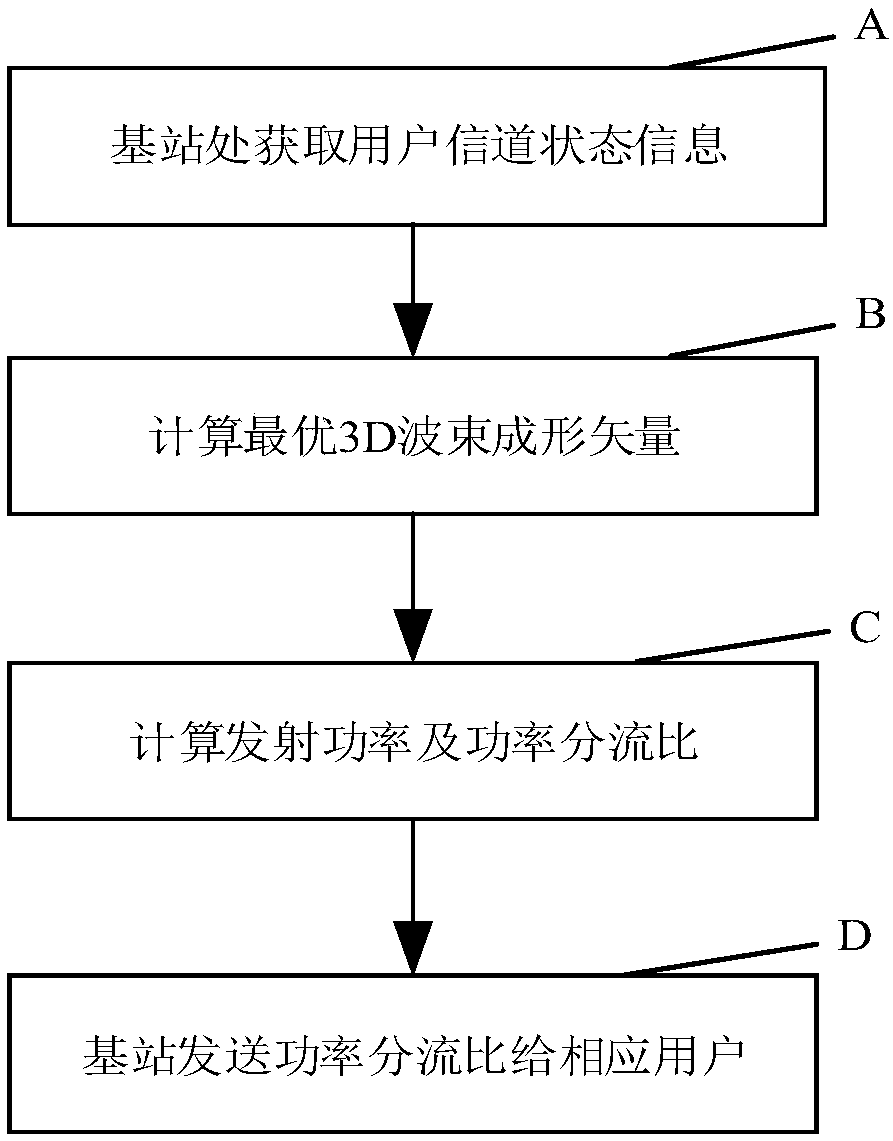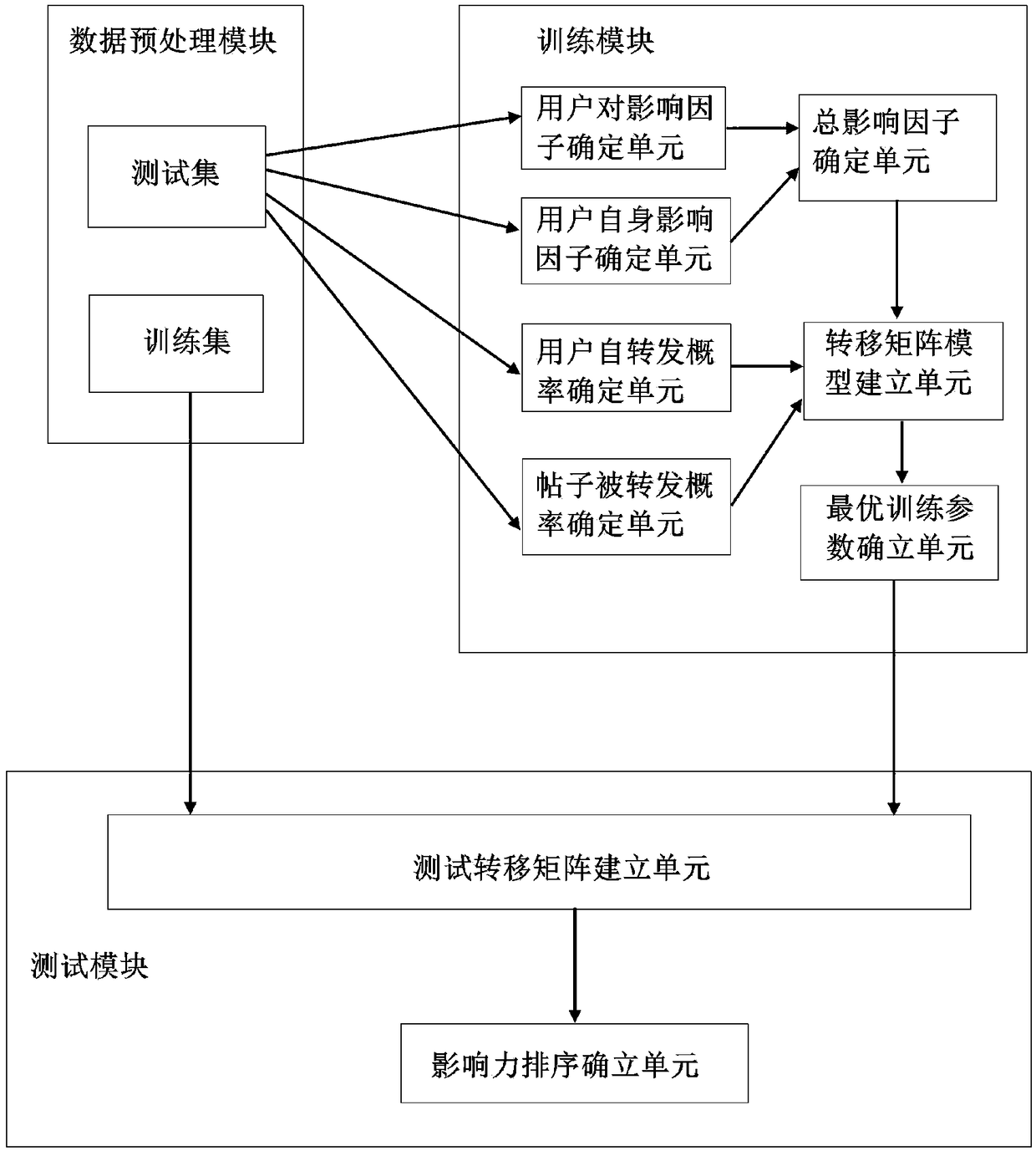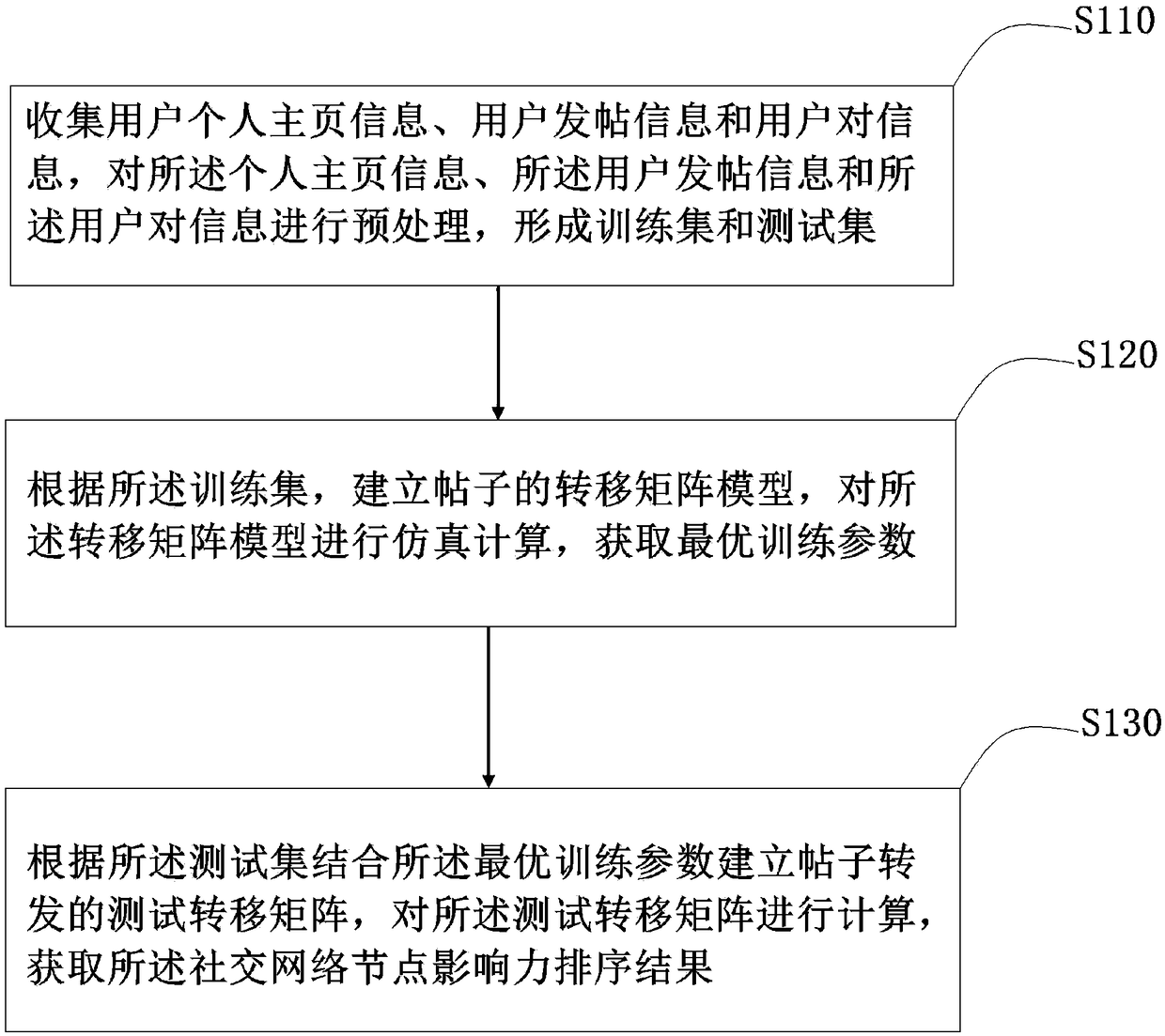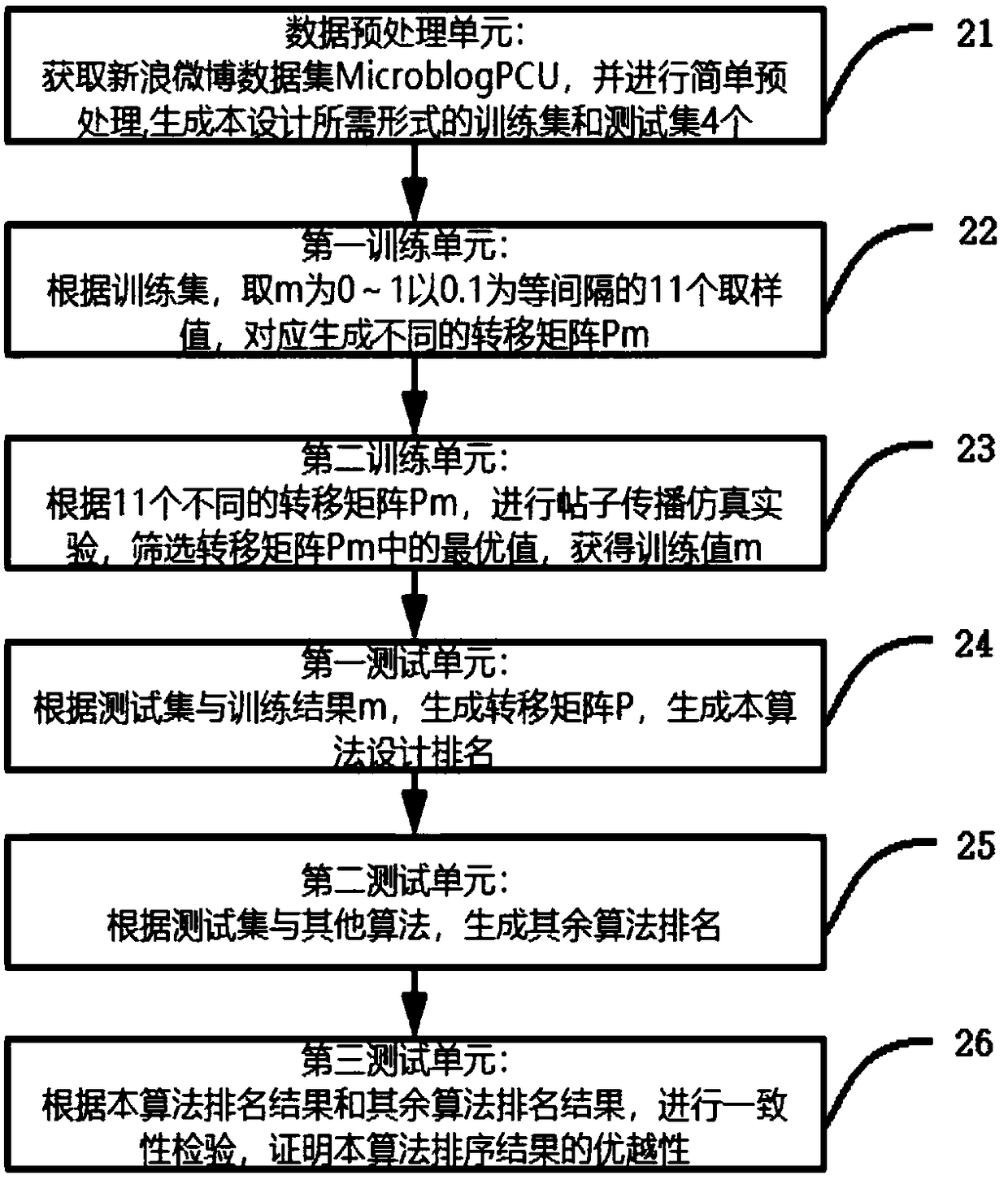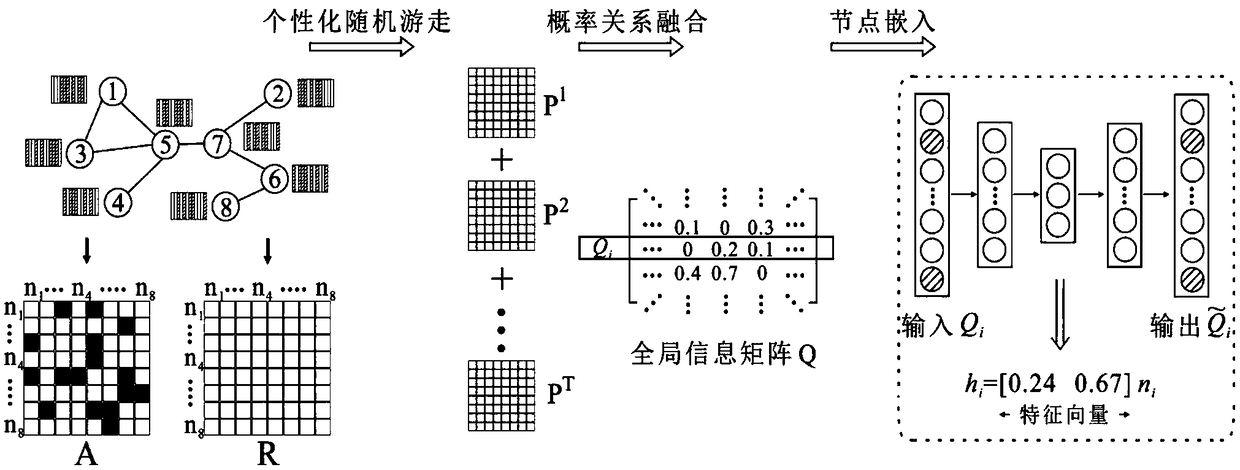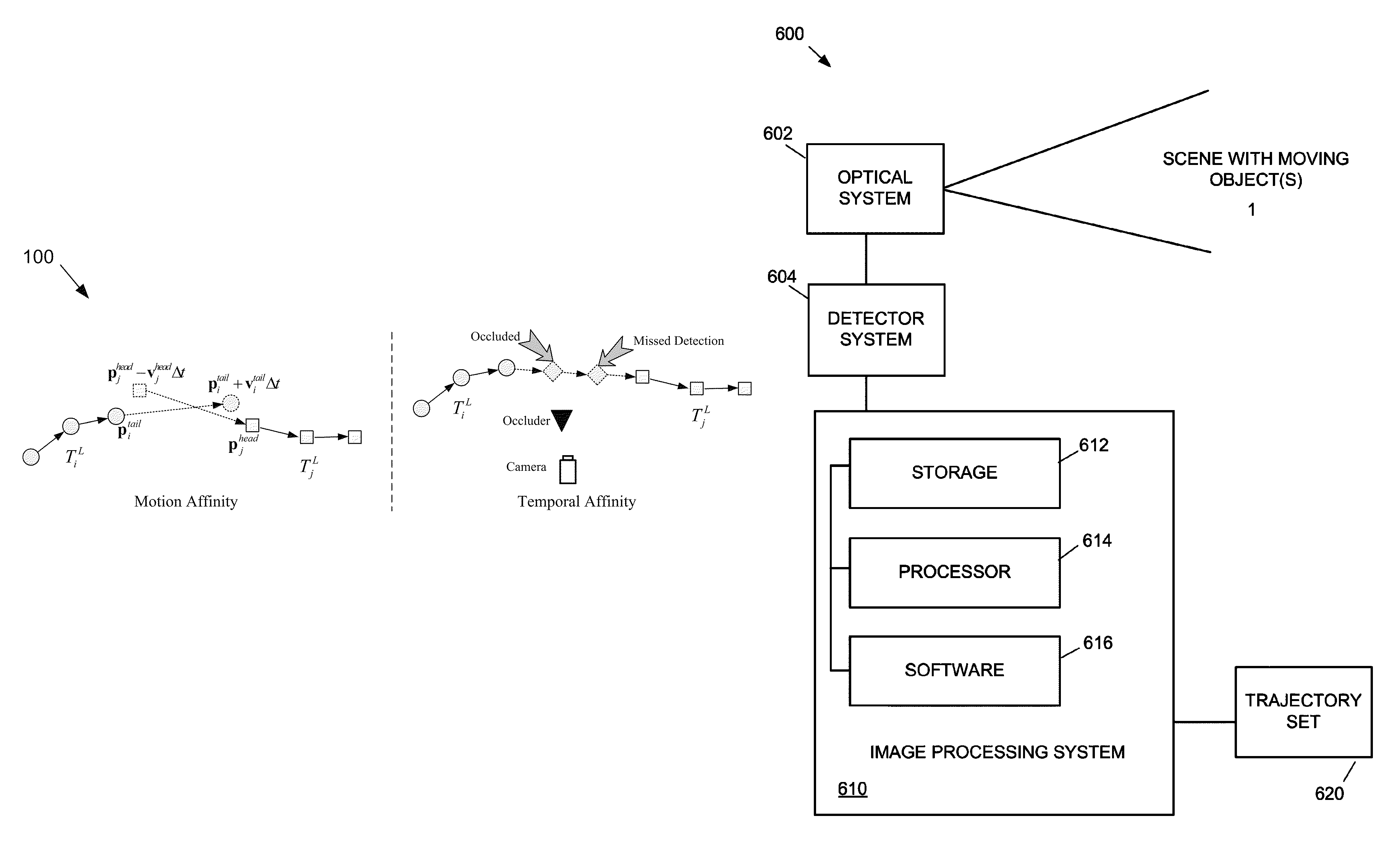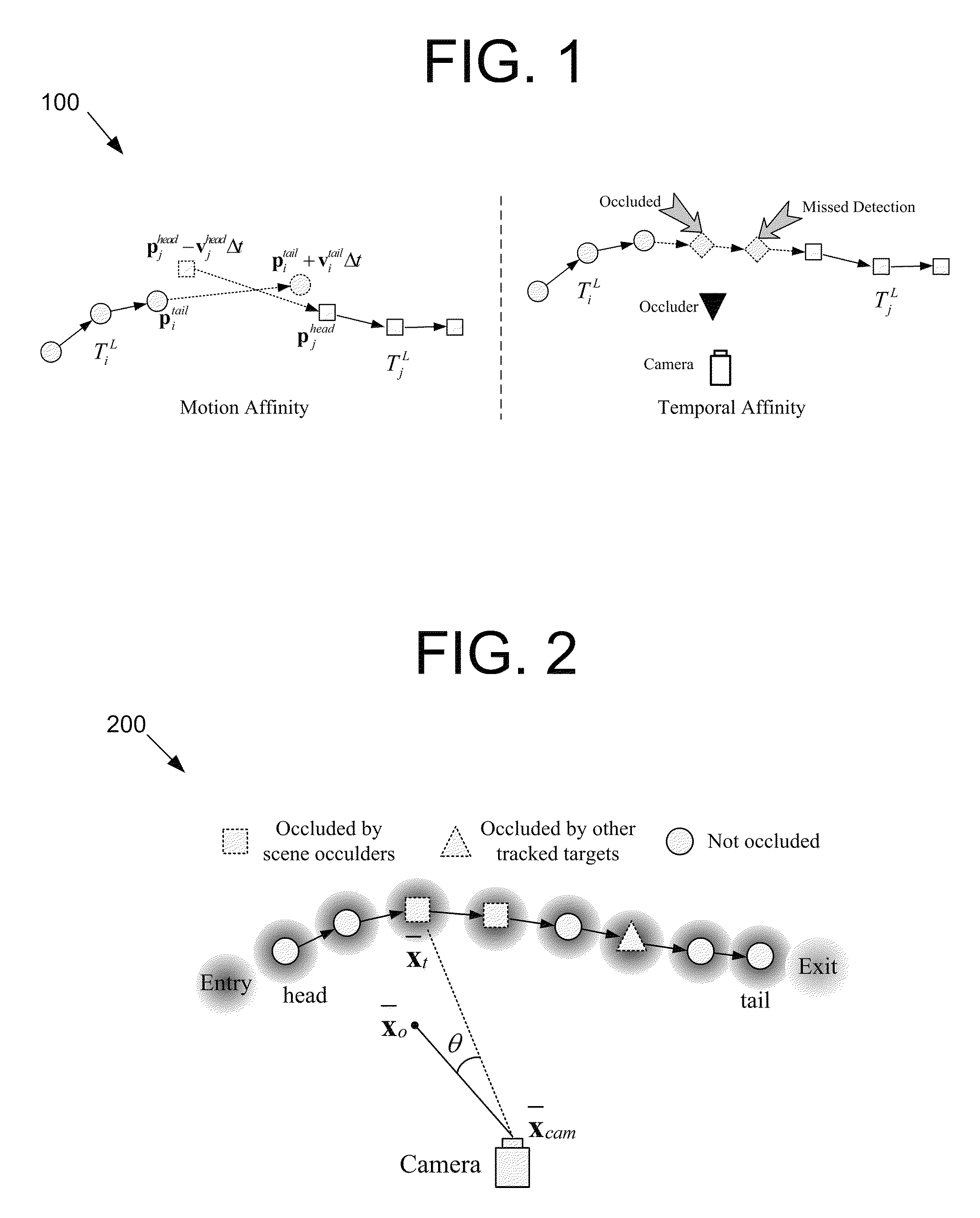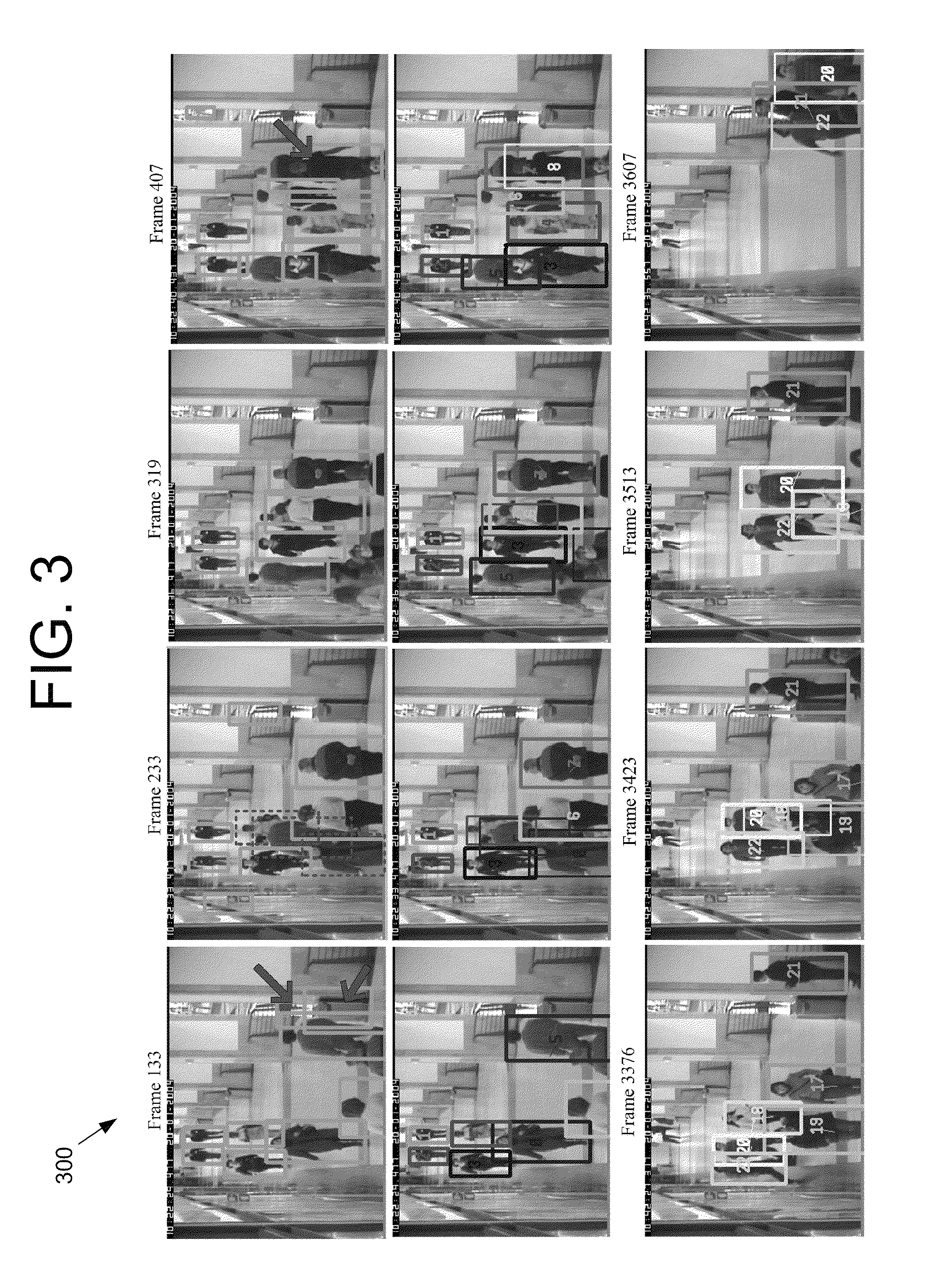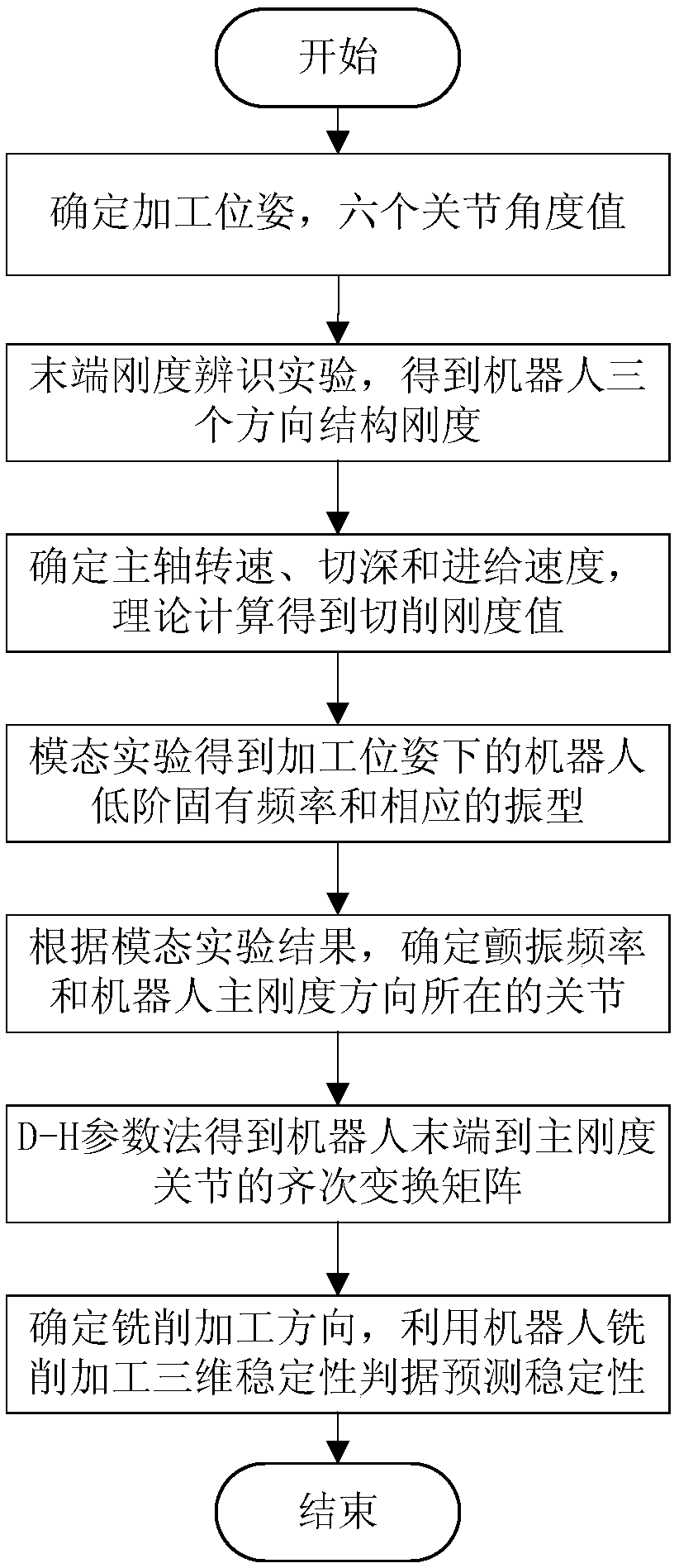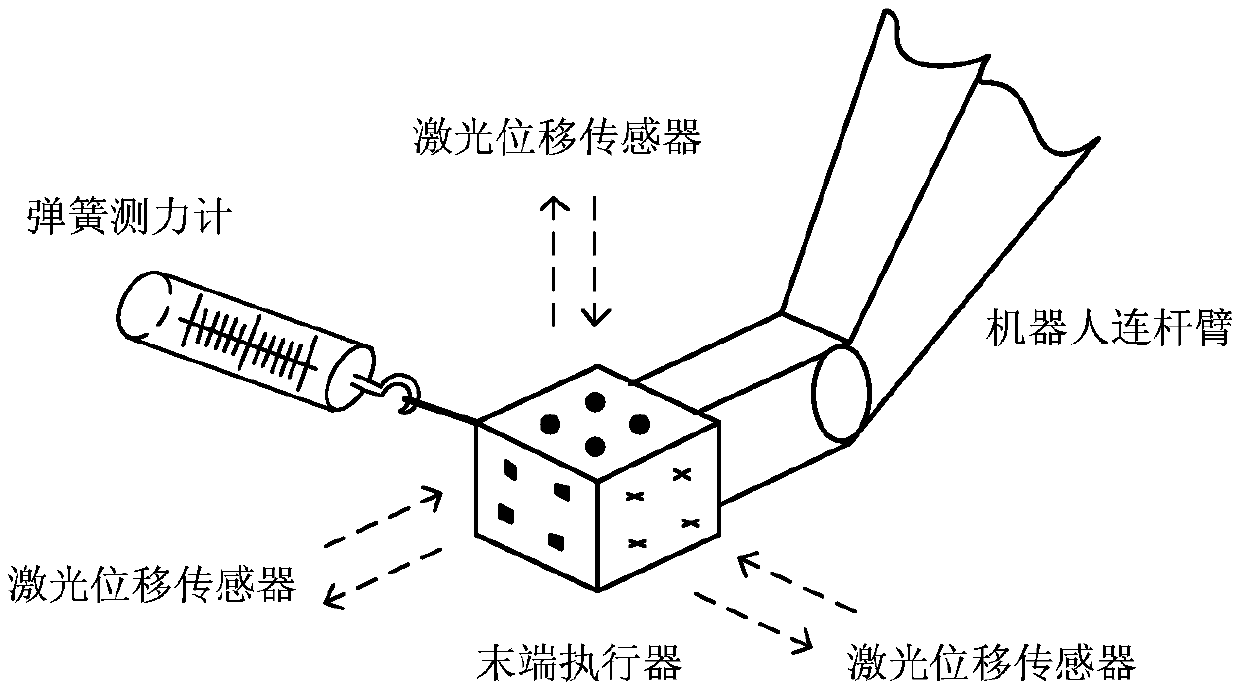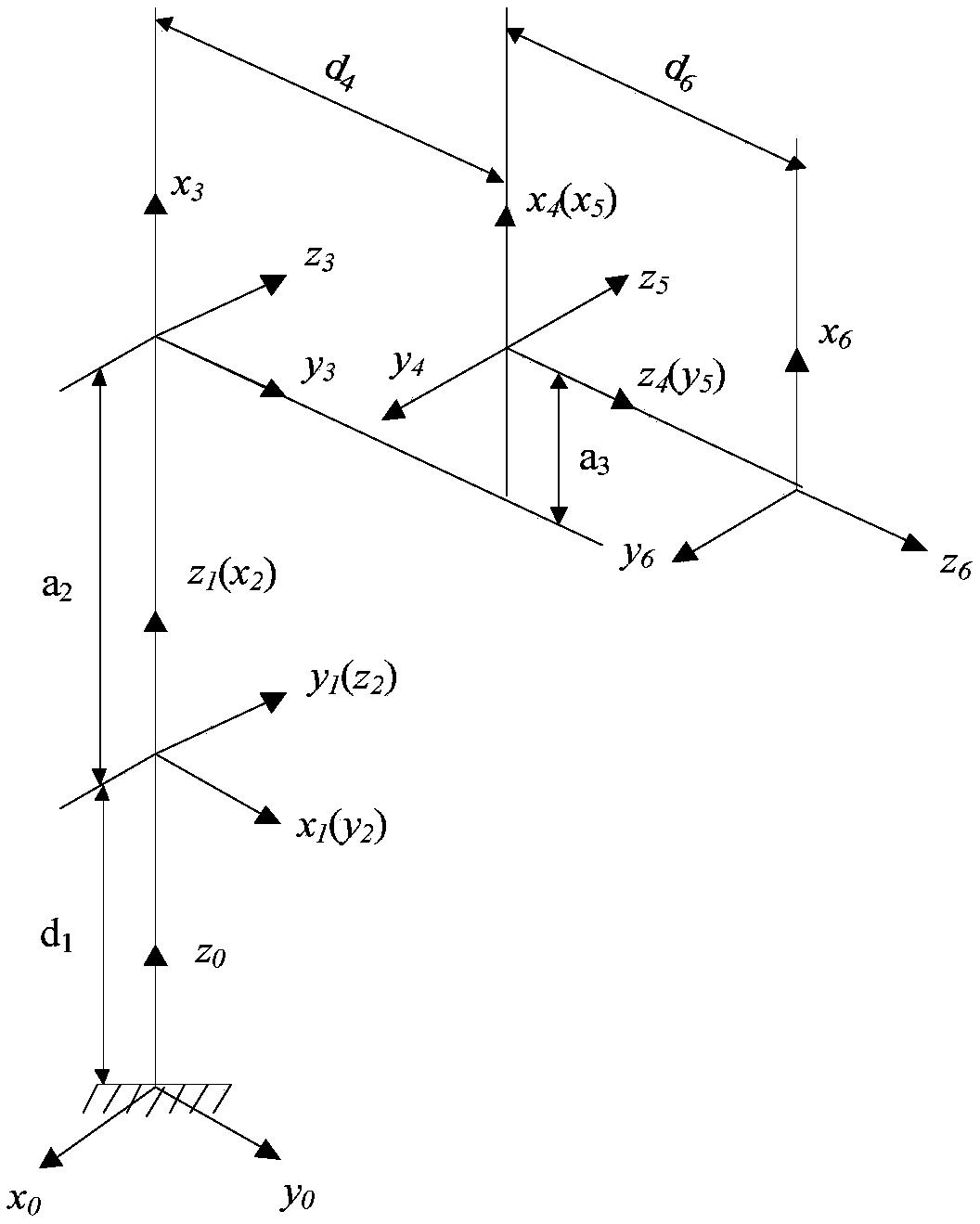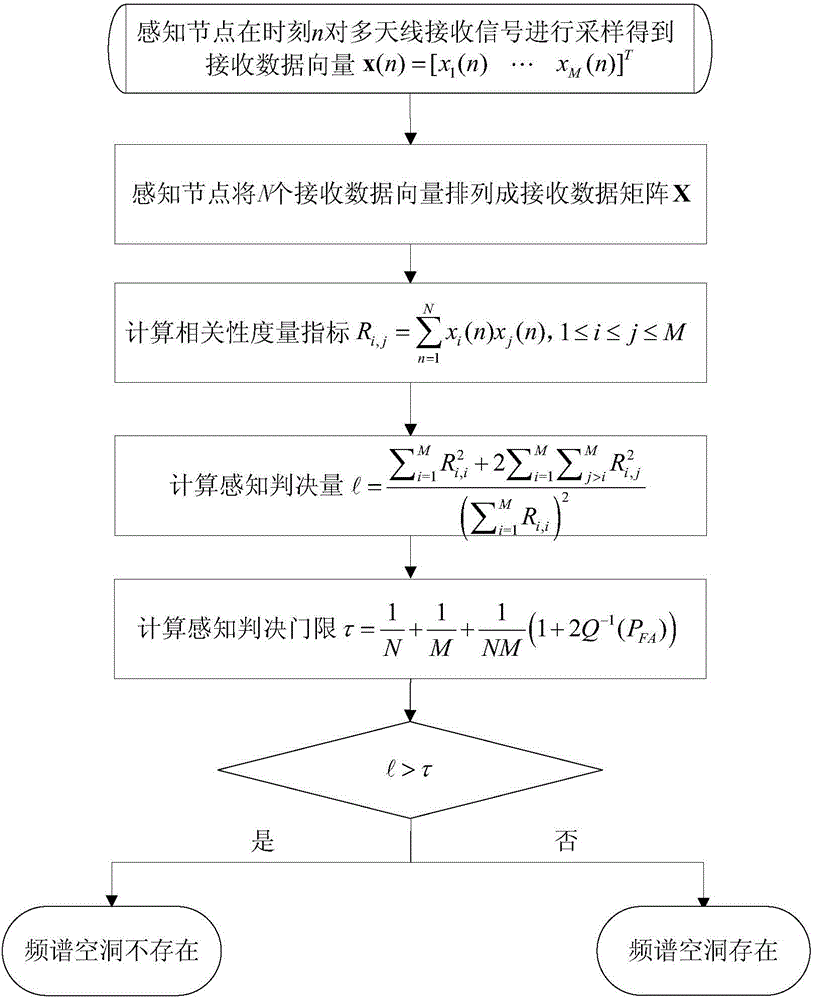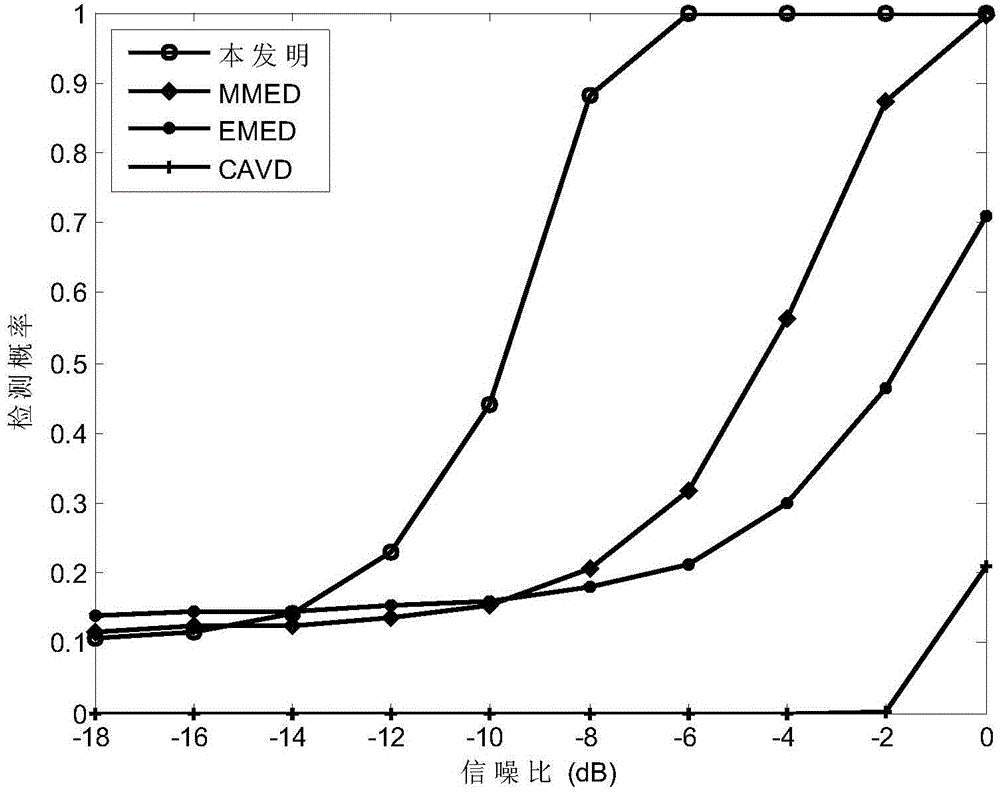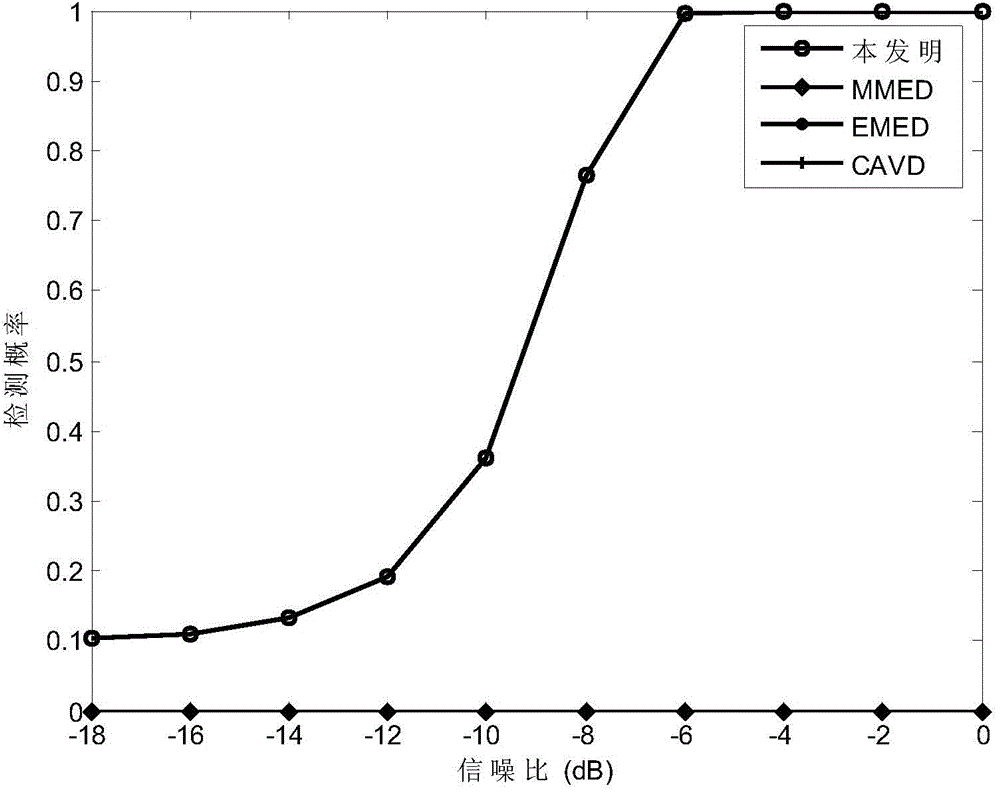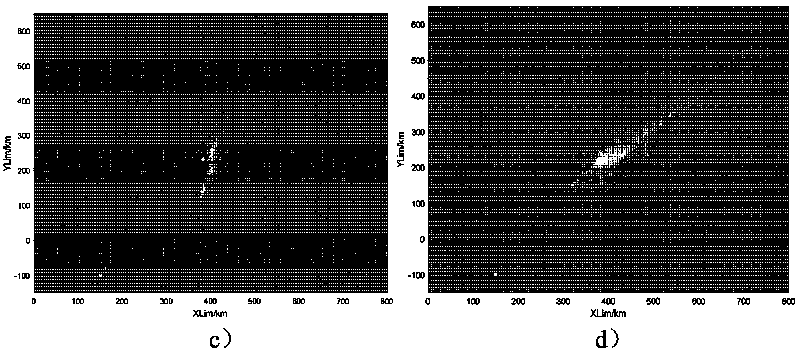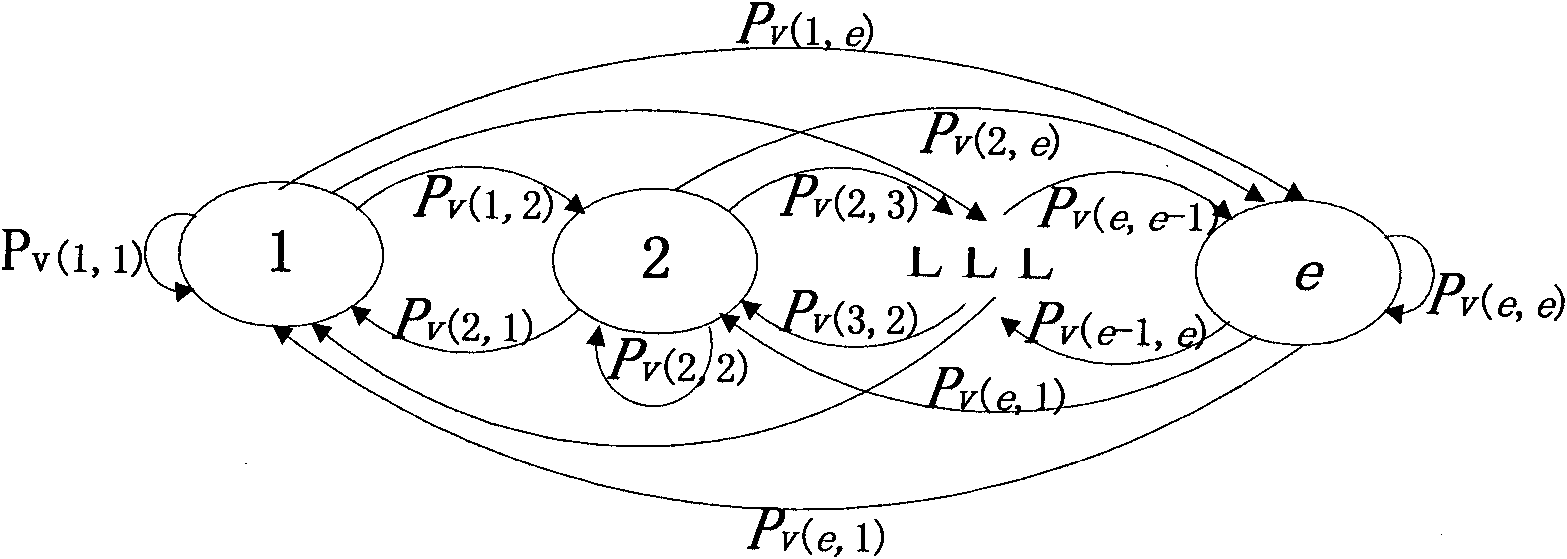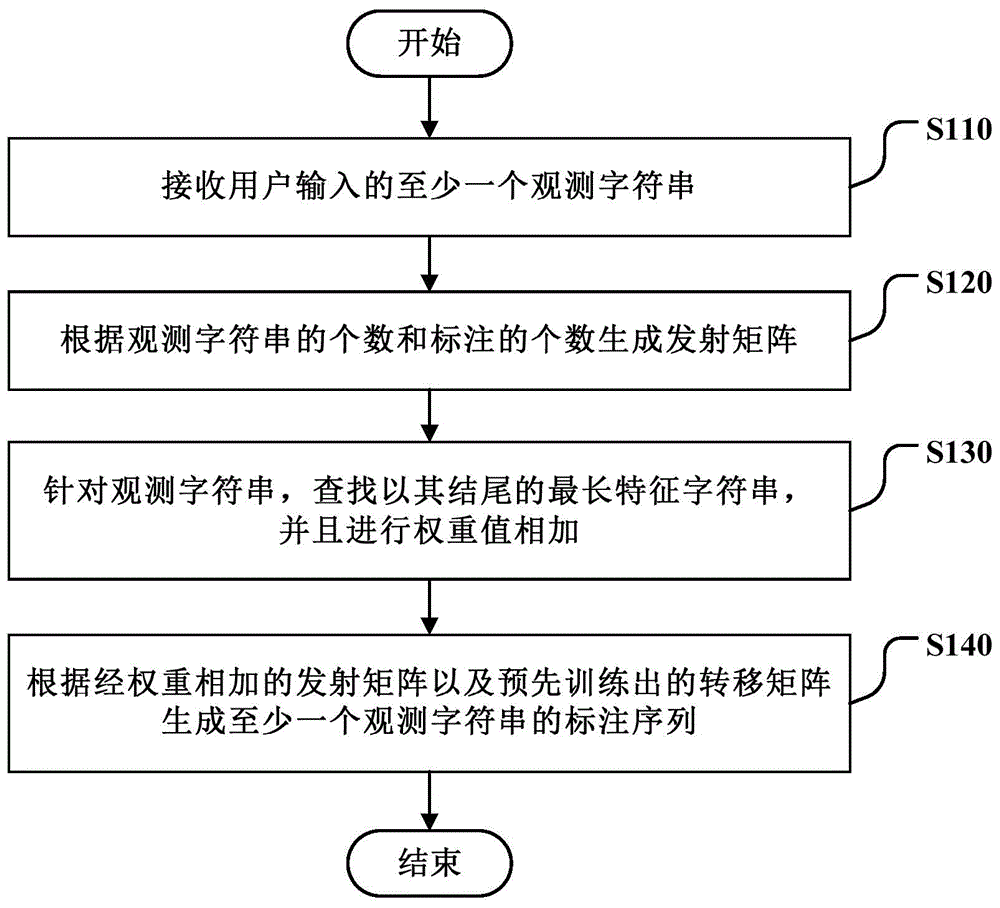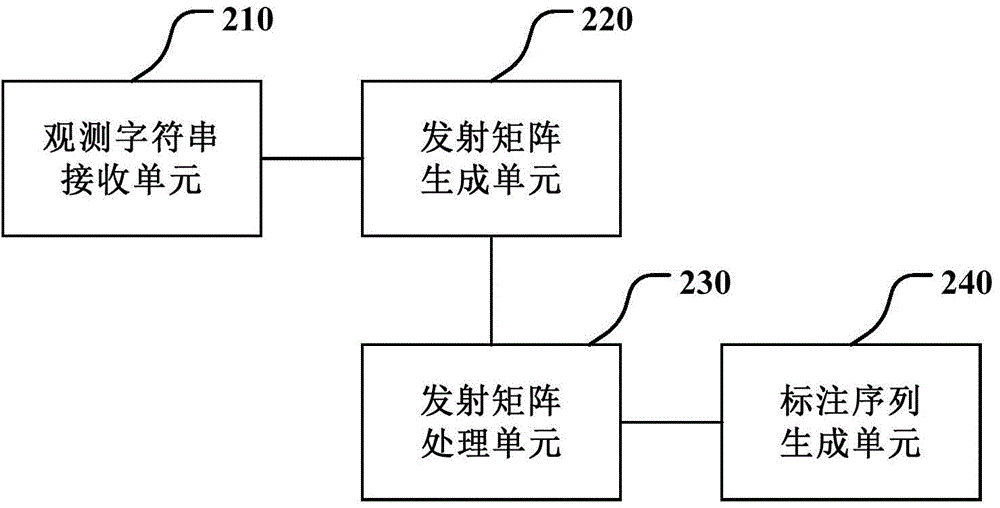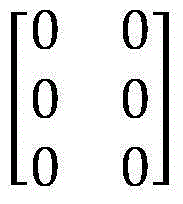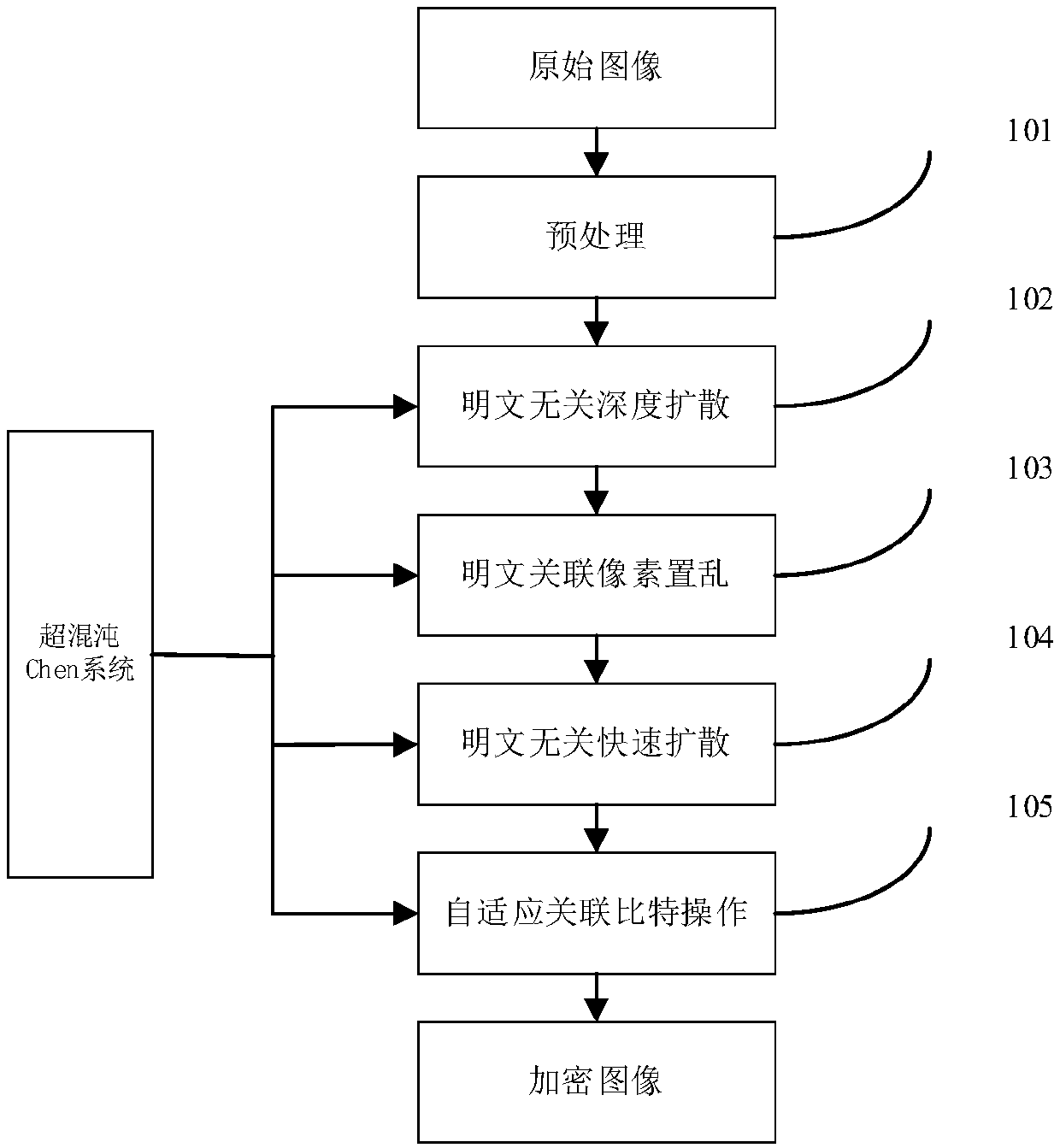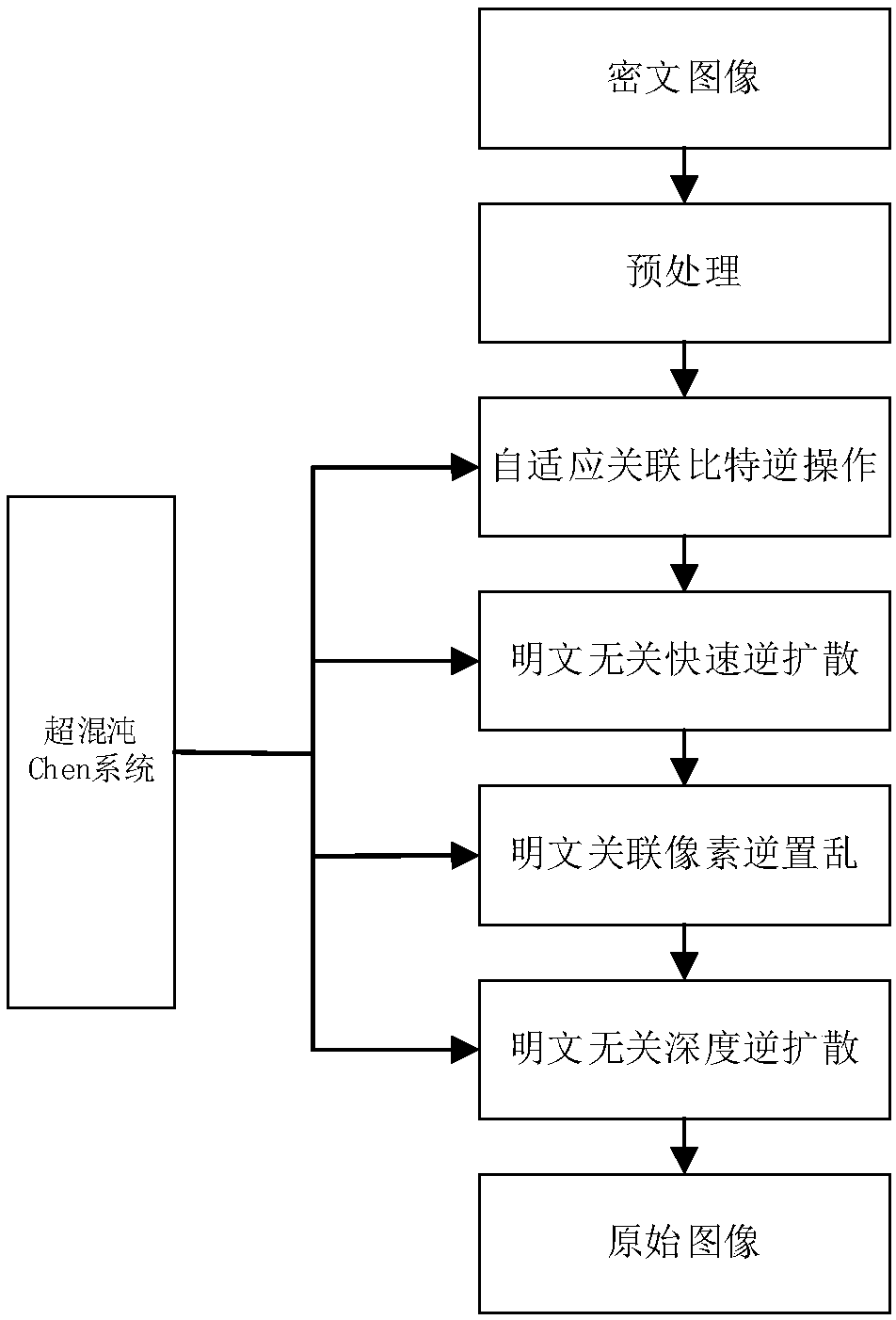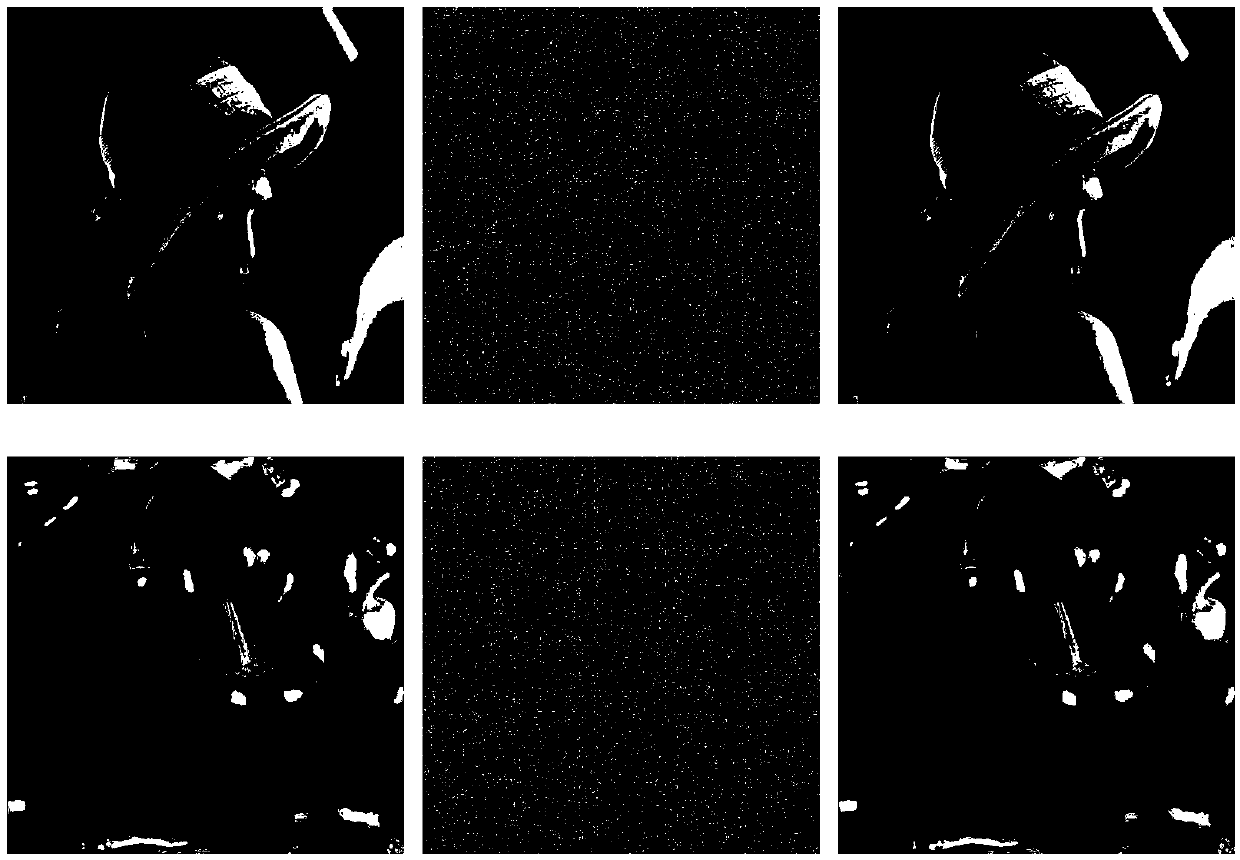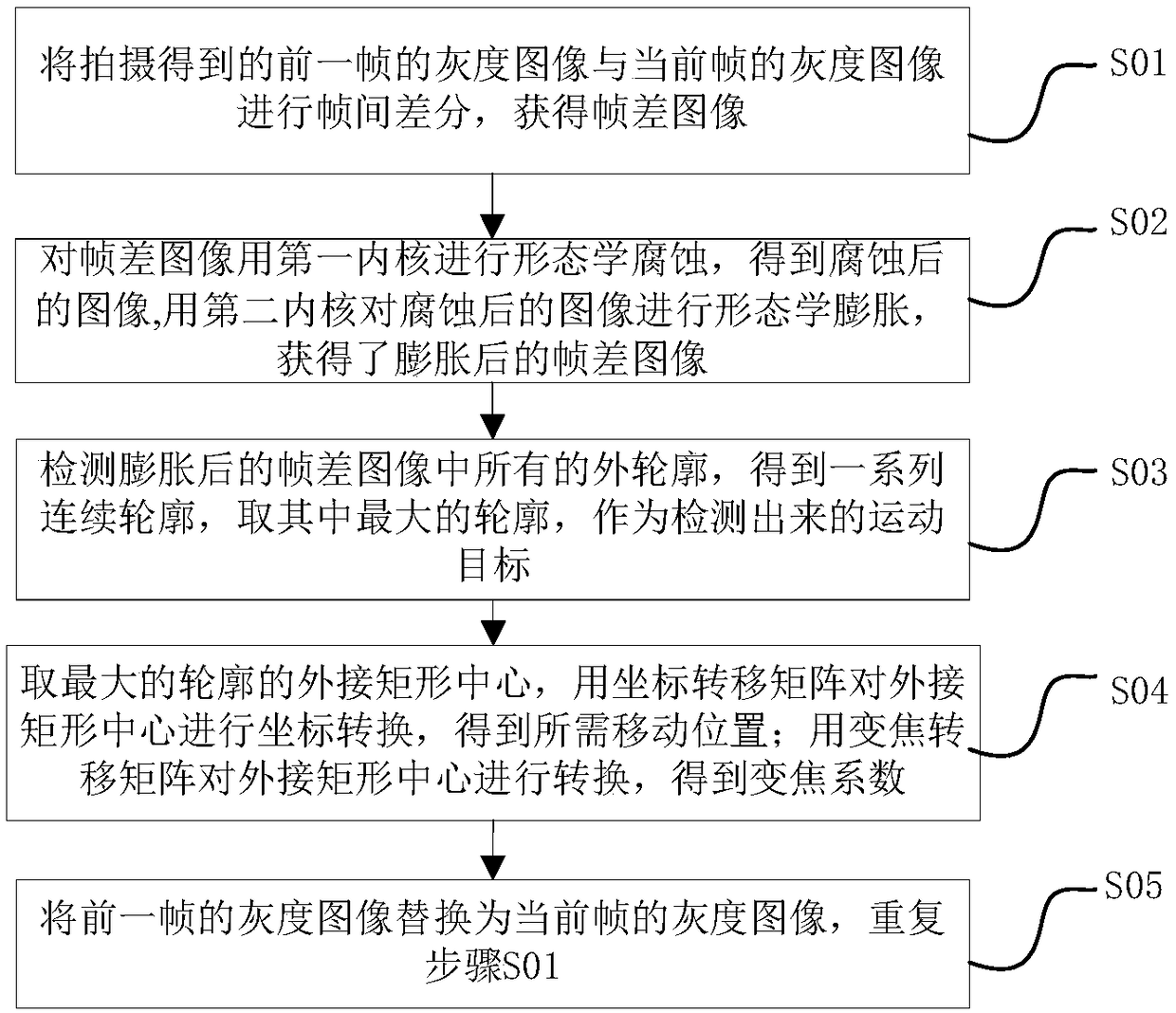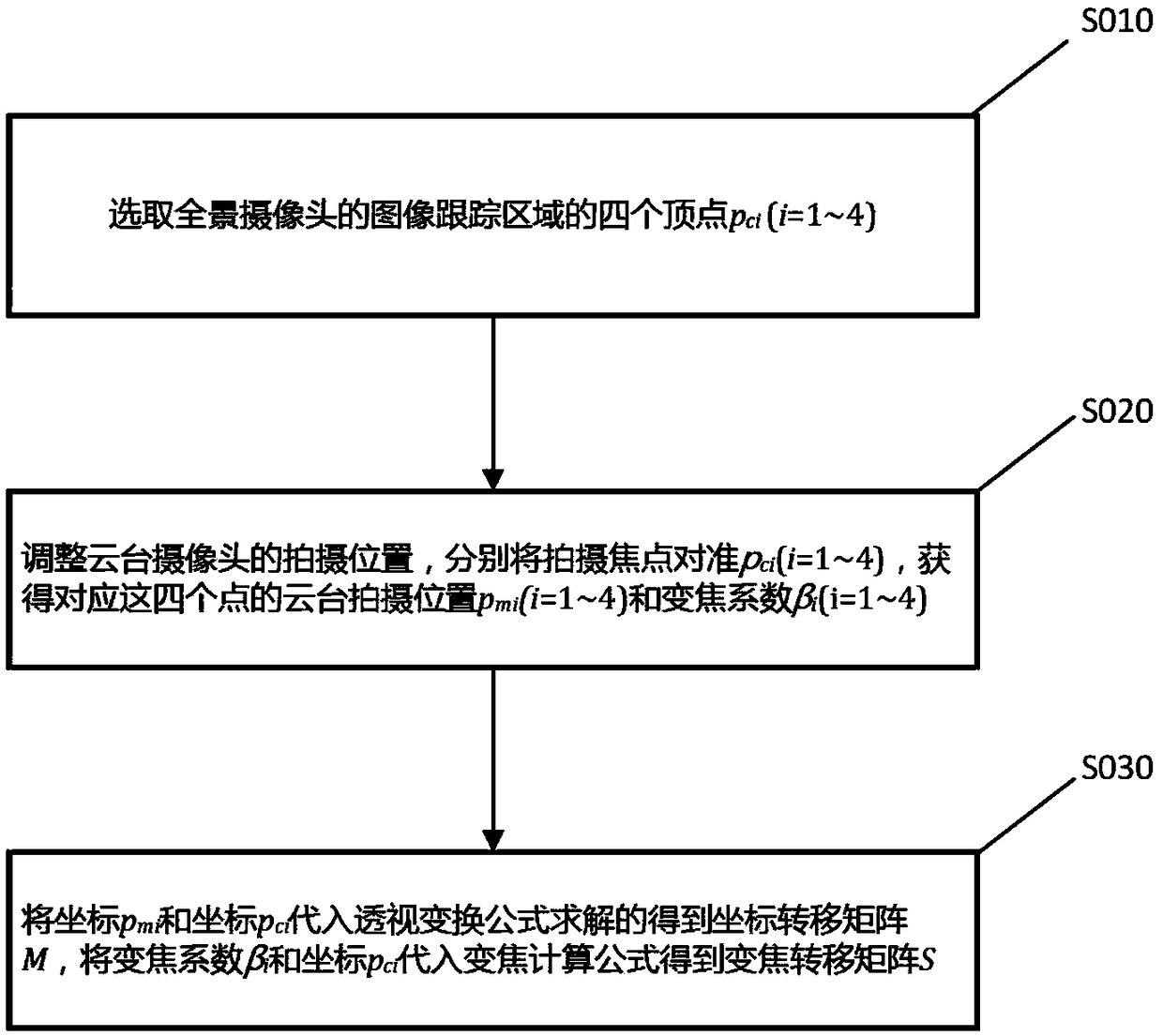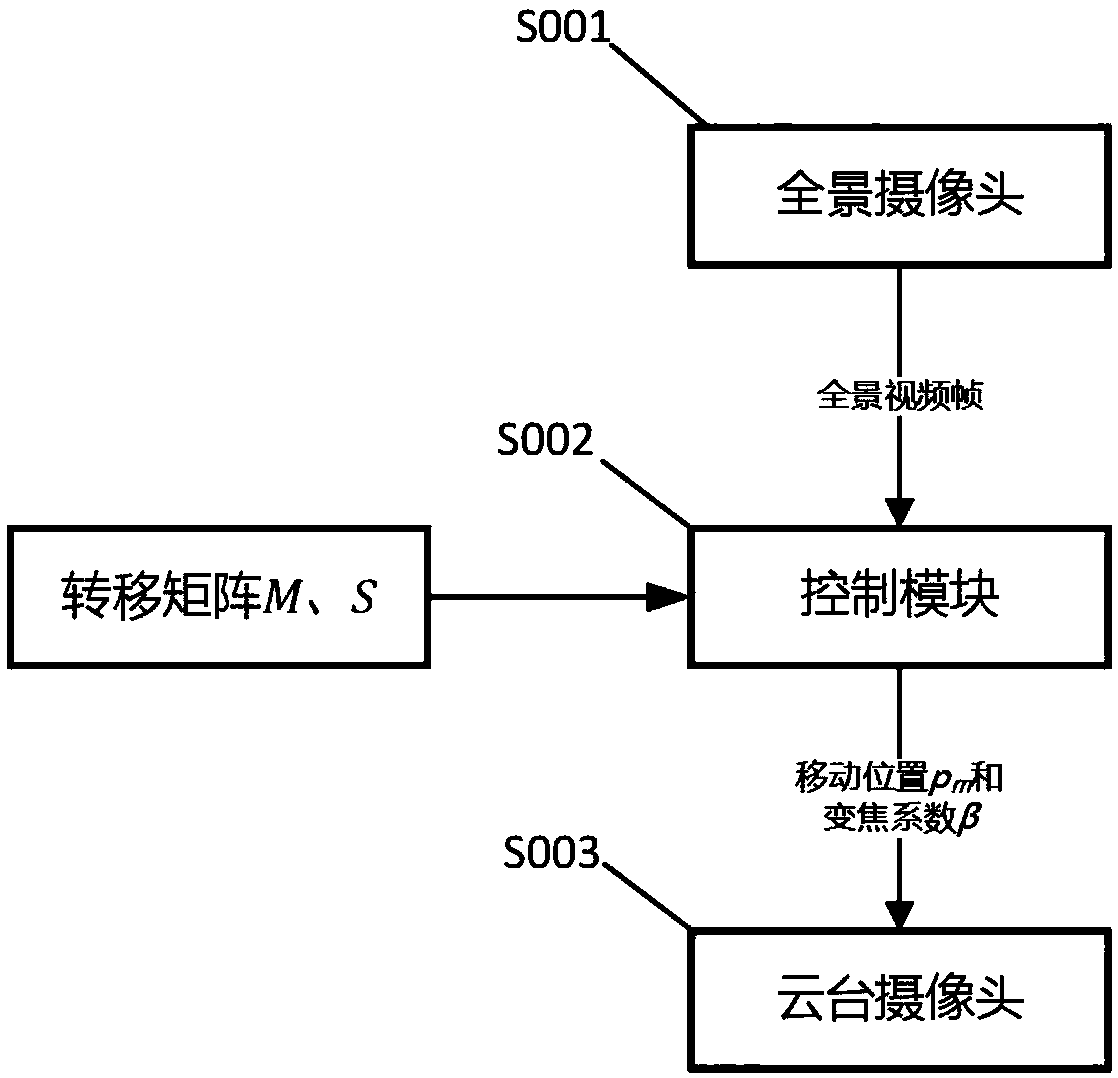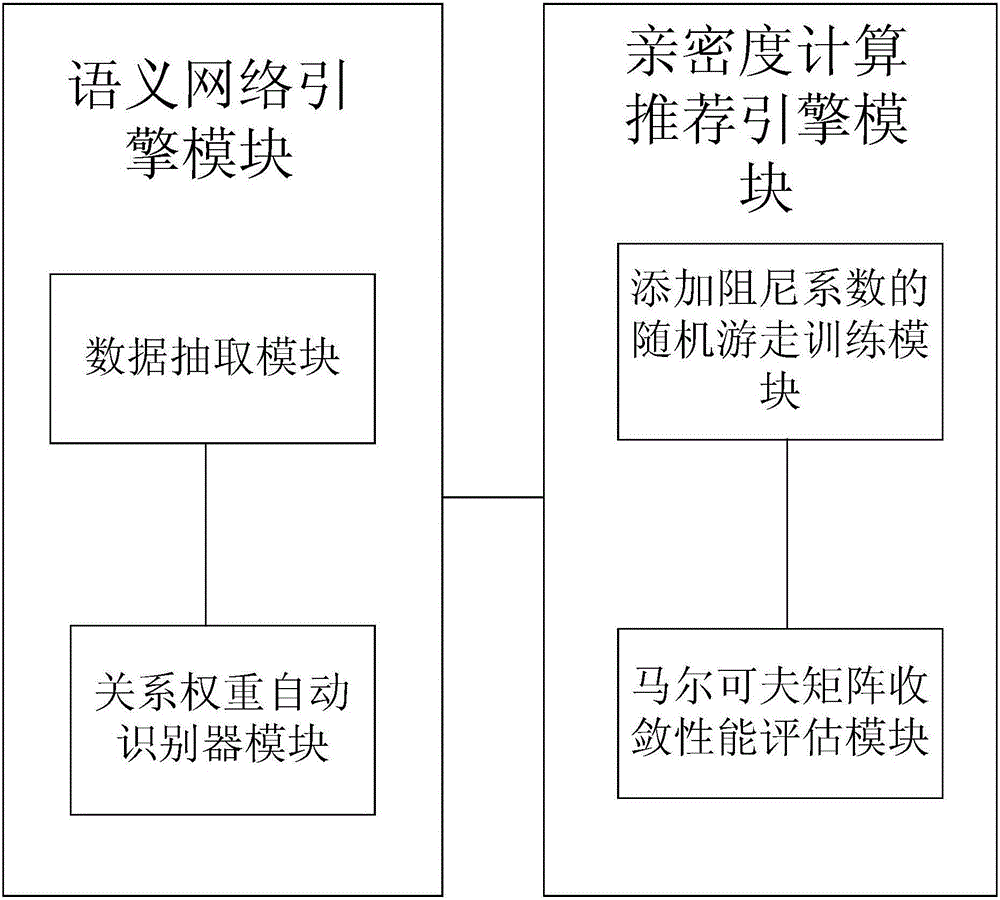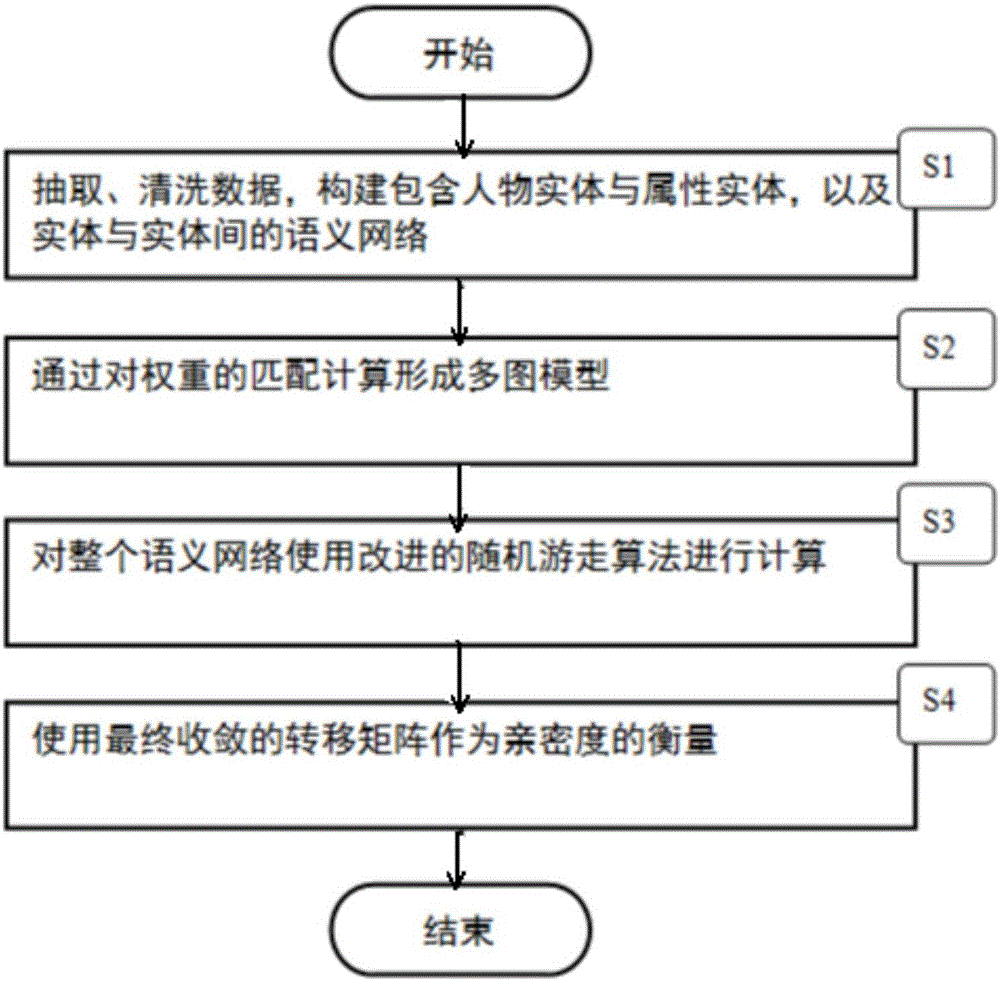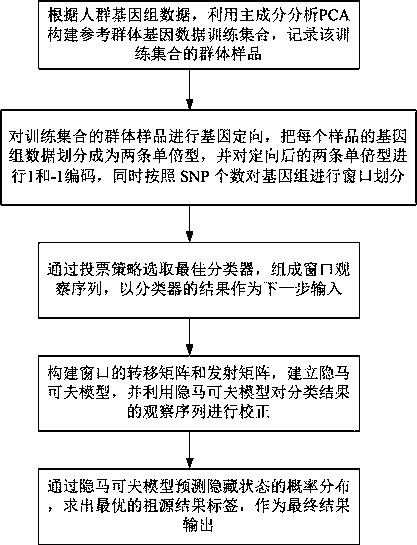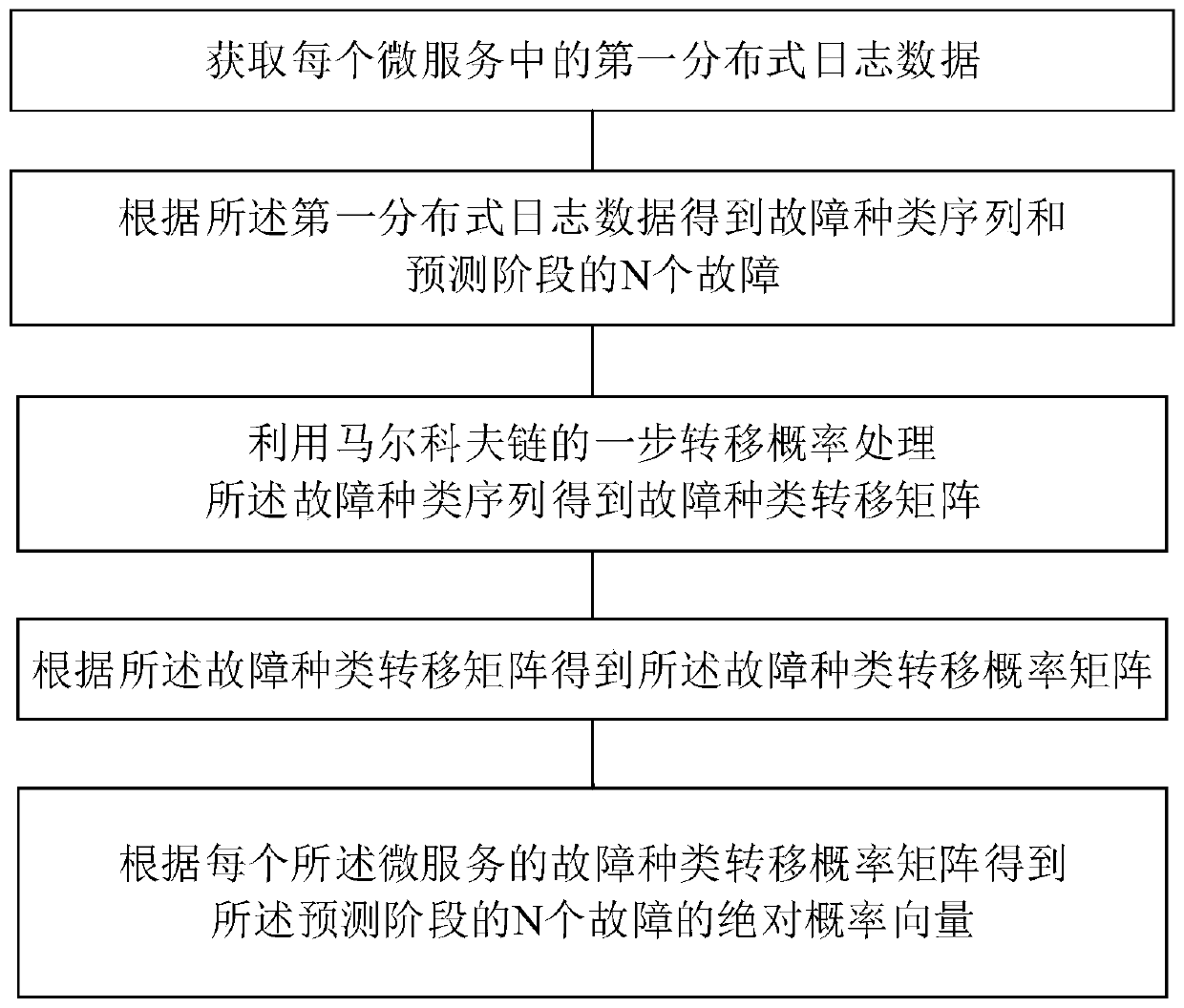Patents
Literature
78 results about "Stochastic matrix" patented technology
Efficacy Topic
Property
Owner
Technical Advancement
Application Domain
Technology Topic
Technology Field Word
Patent Country/Region
Patent Type
Patent Status
Application Year
Inventor
In mathematics, a stochastic matrix is a square matrix used to describe the transitions of a Markov chain. Each of its entries is a nonnegative real number representing a probability. It is also called a probability matrix, transition matrix, substitution matrix, or Markov matrix.
Method and apparatus for ranking web page search results
InactiveUS6871202B2Improve resultsData processing applicationsWeb data indexingFeature vectorCo-citation
A method and apparatus for ranking a plurality of pages identified during a search of a linked database includes forming a linear combination of two or more matrices, and using the coefficients of the eigenvector of the resulting matrix to rank the quality of the pages. The matrices includes information about the pages and are generally normalized, stochastic matrices. The linear combination can include attractor matrices that indicate desirable or “high quality” sites, and / or non-attractor matrices that indicate sites that are undesirable. Attractor matrices and non-attractor matrices can be used alone or in combination with each other in the linear combination. Additional bias toward high quality sites, or away from undesirable sites, can be further introduced with probability weighting matrices for attractor and non-attractor matrices. Other known matrices, such as a co-citation matrix or a bibliographic coupling matrix, can also be used in the present invention.
Owner:R2 SOLUTIONS
Cloud computing based real-time mass user behavior analyzing method and system
InactiveCN103793465AImprove interest analysis efficiencyEffective and accurate pushDatabase distribution/replicationSpecial data processing applicationsReal time analysisRecommendation model
The invention discloses a cloud computing based real-time mass user behavior analyzing method and system. User behaviors and context data are collected by a client end in real time and pre-processed and clustered on the basis of a MapReduce model; ontology data are subjected to reasoning, and latest interests of users are analyzed in real time; a track recurrence algorithm on the basis of a user behavior context is provided for track filling; interest similarity of users is computed by a cosine factor method, an interest similarity matrix is established; a Markov transfer matrix and a collaborative filtering based Markov recommendation model are established to realize effective and precise recommendation. The user behaviors and context information are subjected to model establishment via ontology, and semantic-level sharing and reusing of large-scale behavior information are achieved via an Hbase (hadoop database) based ontology memory mode. Technologies of cloud-computing, the ontology, reasoning and knowledge discovering are combined, and problems in instantaneity, efficiency, large-scale memorizing and intelligentization in mass user behavior analysis are solved.
Owner:WUHAN UNIV OF TECH
Deep network compression method based on dimensional adaptation Tucker decomposition
ActiveCN107516129AAchieve compressionGuaranteed performanceNeural architecturesNeural learning methodsStochastic matrixAlgorithm
The invention discloses a deep network compression method based on dimensional adaptation adjusting Tucker decomposition. The method comprises a dimensional adaptation adjusting process and a dimensional adaptation weight tensor decomposition process. Through adaptively adjusting a size of each dimensions of a tensor, a new any order tensor is generated. Through a learnable nuclear tensor and a transfer matrix, tensor decomposition is realized so that a purpose of network optimization compression is reached. Compared to an existing low rank compression method, by using the method of the invention, under the condition that network performance is maintained, a network parameter quantity has a greater compression multiple and a higher compression multiple can be acquired. Simultaneously, a guiding position of a nonzero element does not need to be stored, an index does not need to be recorded and a storage space can be effectively used.
Owner:PEKING UNIV
Method and apparatus for ranking web page search results
InactiveUS20050165757A1Improve resultsData processing applicationsWeb data indexingFeature vectorCo-citation
Owner:OATH INC
Open set category mining and extending method based on depth neural network and device thereof
ActiveCN107506799AReduce demandReduce performance jitterBiological neural network modelsCharacter and pattern recognitionNerve networkStochastic matrix
The invention discloses a sample categorization method based on a depth neural network. The open set category mining and extending method based on a depth neural network comprises steps of using a sample set comprising defined category samples to train a categorized model to be extended, obtaining categorization threshold value information, sending a sample set comprising undefined category samples into the categorization model to be extended, determining at least part of the undefined category samples according to the categorization threshold value information of the categorization model to be extended, artificially marking the undefined category samples, adding a number of columns of a weight transfer matrix in a categorization layer of the depth nerve network in order to increase a total number of model recognition categories, wherein the added weight columns comprise first information associated with global categorization and second information associated with connection between categories and using the undefined category samples which are artificially marked to increase the models which already finish training and updating. The open set category mining and extending method based on the depth neural network and the device thereof extend the depth neural network through modifying a depth neural network categorization layer weight transfer matrix, dynamically increases the number of the recognized categories so as to process the open set recognition problem and can be applied to a scene which is closer to a real scene.
Owner:PEKING UNIV +1
System and method for classifying data streams using high-order models
ActiveUS20080126556A1Time-division multiplexMultiple digital computer combinationsData segmentData stream
A computer implemented method, system, and computer usable program code for classifying a data stream using high-order models. The data stream is divided into a plurality of data segments. A classifier is selected for each of the plurality of data segments. Each of a plurality of classifiers is clustered into states. A state transition matrix is computed for the states. The states of the state transition matrix specify one of the high-order models for classifying the data stream.
Owner:TWITTER INC
Method for estimating wind power forecasting error burst based on hidden markov model
InactiveCN107358060ARaise the level of acceptanceIncrease capacitySpecial data processing applicationsElectric power systemStochastic matrix
The invention belongs to the field of electric system forecasting, and provides a method for estimating a wind power forecasting error burst based on a hidden markov model. A wind power ultrashort term forecasted value reported to a dispatching department for a wind power plant is a deterministic point forecasting and given in a curved mode, but the problem that the forecasting accuracy is not high exists. By introducing an HMM model, modeling is performed on the wind power ultrashort term forecasting error, the error burst is processed by means of a locally weighted regression scatter plot smoothing method, the result accuracy is improved and the result conservation is lowered. The wind power forecasting error burst can be obtained, an error fluctuation state transition matrix can be obtained, and references are provided for dispatching operation.
Owner:DALIAN UNIV OF TECH
Method and system for video segmentation
InactiveUS20080124042A1Television system detailsPicture reproducers using cathode ray tubesPattern recognitionSliding time window
A method segments a video. Audio frames of the video are classified with labels. Dominant labels are assigned to successive time intervals of consecutive labels. A semantic description is constructed for sliding time windows of the successive time intervals, in which the sliding time windows overlap in time, and the semantic description for each time window is a transition matrix determined from the dominant labels of the time intervals. A marker is determined from the transition matrices, in which a frequency of occurrence of the marker is between a low frequency threshold and a high frequency threshold. Then, the video is segmented at the locations of the markers.
Owner:MITSUBISHI ELECTRIC RES LAB INC
Malfunction prediction for components and units of technical entities
ActiveUS20170236065A1Optimal value stateReduce configurationProbabilistic networksResourcesStochastic matrixTransition matrices
Predicting a malfunction of a component of a unit includes providing a transition matrix of a parameter of the component, wherein the transition matrix includes for a number of discrete value states of the parameter probabilities to switch from one discrete value state to another within a certain time period; providing the conditional probability distribution for the malfunction given the discrete value states; providing a current discrete value state of the parameter; determining a conditional probability distribution of the discrete value states given the current discrete value state for a future point in time based on the current discrete value state and on the transition matrix by use of a Markov chain; and determining a probability for the malfunction for the future point in time based on the conditional probability distribution of the discrete value states for the future point in time and the conditional probability distribution for the malfunction.
Owner:HITACHI ENERGY SWITZERLAND AG
Word segmentation processing method and device, mobile terminal and computer readable storage medium
ActiveCN107832301AImprove accuracySave storage spaceCharacter and pattern recognitionNatural language data processingFeature vectorChinese characters
The invention discloses a word segmentation processing method and device, a mobile terminal and a computer readable storage medium. The method comprises the following steps of: when a to-be-segmentedstatement is obtained, determining a target language type corresponding to the to-be-segmented statement; respectively first feature vectors corresponding individual characters, second feature vectorscorresponding to two words and third feature vectors corresponding to proper nouns in the to-be-segmented statement; determining current fourth feature vectors of the individual characters accordingto the first feature vectors, the second feature vectors and the third feature vectors; and carrying out word segmentation on the to-be-segmented statement according to a preset Chinese character label transfer matrix and the current fourth feature vectors of the individual characters. According to the method, word segmentation is carried out on to-be-segmented statements according to target language types corresponding to the to-be-segmented statements, so that the correctness of carrying out word segmentation on to-be-segmented statements in various language types is improved; and proper resources can be loaded according to requirements, so that storage spaces of mobile terminals are saved and the user experience is improved.
Owner:BEIJING BAIDU NETCOM SCI & TECH CO LTD
Tracking market-share trends based on user activity
A method of determining market-share trends includes: specifying values for switching between pairs of search tools for a user; determining values for a transition matrix between the search tools from the switching values; determining steady-state values from the transition matrix for characterizing a steady state arising from a sequential operation of the transition matrix, wherein the steady-state values characterize market-share trends for the search tools; and saving one or more values for the steady state values.
Owner:OATH INC
Method and device for pushing information
ActiveCN108388674ATargetedCustomer communicationsSpecial data processing applicationsStochastic matrixTransition matrices
Embodiments of the present application disclose a method and device for pushing information. A specific implementation of the method comprises: acquiring a current conversation statement of a user under a preset first user category; determining a target topic currently discussed by the user in a preset topic set on the basis of the conversation statement; acquiring a probability difference matrix,wherein the probability difference matrix is a difference value between a preset first topic shift matrix and a preset second topic shift matrix, the first topic shift matrix is associated with a preset second user category, the second topic shift matrix is associated with the first user category, and row and column labels of each element in the first topic shift matrix and the second topic shiftmatrix are used for indicating topics in the topic set respectively; on the basis of the target topic and the probability difference matrix, selecting a topic from the topic set as a recommended topic; and pushing the name of the recommended topic to a terminal device of the user. The implementation realizes targeted information push and can realize topic guide for a user.
Owner:BAIDU ONLINE NETWORK TECH (BEIJIBG) CO LTD
Electronic information comparing system and method and anti-garbage mail system
ActiveCN101046858AImprove accuracyOffice automationData switching networksData segmentStochastic matrix
The present invention discloses an electronic text comparison method. Said method includes the following steps: (a), converting first electronic text segment and second electronic text segment into first matrix and second matrix respectively according to identical conversion rule, the described first matrix is identical to second matrix in size; (b), successively comparing elements of identical positions of first matrix and second matrix, and according to the compared result using defined comparison function to calculated similar coefficient; and (c), according to similar coefficient judging that the described first electronic text and second electronic text are similar or not, if the described similar coefficient is greater than specific threshold value, it expresses that first electronic data segment and second electronic data segment are similar. Besides, said invention also discloses a correspondent electronic text comparison system and a system for resisting garbage mail.
Owner:TENCENT TECH (SHENZHEN) CO LTD
Visualization representing method for time series data
InactiveCN106202353AVisualization results are excellentEasy extractionOther databases browsing/visualisationSpecial data processing applicationsData setOriginal data
The invention discloses a visualization representing method for time series data. On the basis that time series feature representations of an SAX-based method are adopted as the visualization basis of time series data, the signifying character representations are converted into a Markov transfer matrix, then, a complex network is used for building time series graphic representations, and time series data visualization representations are obtained. The SAX-based discretization method is adopted for time series Markov matrix conversion for the first time, a corresponding Markov transfer matrix obtained after time series discretization is adopted, and time series statistical characteristics can be better extracted; compared with quantile discretization, SAX discretization can better extract time series statistical characteristics, under certain conditions, the complex network visualization result is frequently better than the quantile discretization result on a benchmark data set, the approximation accuracy is closer to that of original data distribution, and the visualization effect is better.
Owner:ZHENGZHOU UNIV +1
Measurement method for time-varying non-stationary network flow
InactiveCN103200043AAccurate reconstructionData switching networksSingular value decompositionDischarge measurements
The invention discloses a measurement method for time-varying non-stationary network flow and belongs to the technical field of networks. A singular value decomposes historical flow to obtain an orthogonal basis matrix to replace a sparse base. A mode that a novel network tomography model is constructed through a gauss stochastic matrix is adopted to describe the flow from a source router to an objective router and a relation between a route choice and a link circuit load. The highly ill-conditioned problem of end-to-end flow reconfiguration can be converted to a convex optimization problem which can be solved by compressed sensing, and the application of a compressed sensing reconfiguration algorithm can accurately reconstruct the end-to-end flow. According to the measurement method for the time-varying non-stationary network flow, the end-to-end flow is reconstructed to conduct network operation such as network planning, route planning, novel routing protocol performance evaluation and network fault analysis.
Owner:NORTHEASTERN UNIV
Automatic tagging method and apparatus, computer device and storage medium
ActiveCN108399227AAvoid Manual MarkingImprove marking efficiencyNatural language data processingSpecial data processing applicationsStochastic matrixAlgorithm
The invention discloses an automatic tagging method and apparatus, a computer device and a storage medium. The method comprises the steps of performing word segmentation preprocessing on a to-be-tagged text to obtain a preprocessed text; inputting the preprocessed text to a TF-IDF algorithm model to obtain a keyword set of the to-be-tagged text; according to the keyword set of the to-be-tagged text, obtaining an initialized transfer matrix, performing multi-time iterative multiplication operation on the initialized transfer matrix and initial keyword probability distribution until convergenceto obtain final keyword probability distribution; and obtaining a corresponding row of a maximum probability value in the final keyword probability distribution, obtaining a keyword corresponding to the corresponding row of the maximum probability value, and setting the keyword as a tag of the to-be-tagged text. According to the method, an article is tagged by automatic learning, so that manual tagging is avoided, the tagging efficiency is improved, and the manpower cost is reduced.
Owner:PING AN TECH (SHENZHEN) CO LTD
Physical layer security transmission method for full-dimensional multi-antenna SWIPT system
ActiveCN107896125AOptimize secure transfer rateMaximize secure transfer ratePower managementSpatial transmit diversityPower splitStochastic matrix
The invention analyzes the security transmission rate of the SWIPT system in a full-dimensional antenna network by using theoretical tools such as a stochastic matrix and nonlinear optimization. An optimal 3D beam forming vector is acquired by maximizing the traversal transmission rate, and a system security transmission rate under the collected energy constraint is deduced. An optimal solution tomaximize the system security rate is obtained by combining a Lagrangian relaxation optimization algorithm with optimized transmitting power and power split ratio.
Owner:NORTH CHINA ELECTRIC POWER UNIV (BAODING)
Method and system for ranking influence of social network nodes
The invention provides a social network node influence sorting method and a system, which relate to the technical field of digital information processing. The method includes: collecting user personalhome page information, user posting information and user-to-user information, pretreating the personal home page information, user posting information and user-to-user information to form a trainingset and a test set; Then, according to the training set, establishing the transfer matrix model of the post, and performing simulation calculation of the transfer matrix model to obtain the optimal training parameters; Finally, according to the test set and the optimal training parameters, establishing a test transfer matrix for post forwarding, and calculating the test transfer matrix to obtain the ranking result of the influence of the social network nodes. The invention can discover the attention possibility of the hidden node so as to carry out influence ranking analysis on the data network whose dynamic information is incomplete and seriously missing. In the absence of social network data, it can more accurately analyze the impact of social network nodes.
Owner:BEIJING JIAOTONG UNIV
A network representation method based on depth network structure and node attributes
InactiveCN109101629ASolve the data sparsity problemAccurate representationBiological neural network modelsSpecial data processing applicationsPersonalizationAlgorithm
The invention discloses a network representation method based on a depth network structure and node attribute, which comprehensively considers the influence of the network structure and node attributeinformation on the node, and learns the node characteristic representation through a neural network. The method Includes steps: an adjacency matrix and attribute relation matrix between nodes is constructed; the probability transfer matrix and attribute probability transfer matrix of the structure between nodes are obtained; according to the structural probability transfer matrix and the attribute probability transfer matrix, the multi-order probability relation matrix is obtained by using the personalized random walk model; the global information matrix is obtained by combining the multi-order probability relation matrix with the attenuation function; the global information matrix is inputted into the automatic encoder, and the low-dimensional feature representation of the network node is obtained by training the automatic encoder. The invention solves the problem of data sparsity, encodes the global information of nodes in the network into a low-dimensional, dense vector space by constructing a depth neural network, and ensures the accurate representation of nodes in the network.
Owner:HEFEI UNIV OF TECH
Object tracking by hierarchical association of detection responses
Systems, methods, and computer readable storage media are described that can provide a multi-level hierarchical framework to progressively associate detection responses, in which different methods and models are adopted to improve tracking robustness. A modified transition matrix for the Hungarian algorithm can be used to solve the association problem that considers not only initialization, termination and transition of tracklets but also false alarm hypotheses. A Bayesian inference approach can be used to automatically estimate a scene structure model as the high-level knowledge for the long-range trajectory association.
Owner:UNIV OF SOUTHERN CALIFORNIA
Milling three-dimensional stability forecasting method of six-freedom-degree series robot
ActiveCN108638076AAvoid Mode-Coupled FlutterImprove machined surface qualityProgramme-controlled manipulatorMachined surfaceStochastic matrix
The invention provides a milling three-dimensional stability forecasting method of a six-freedom-degree series robot and relates to the technical field of robot machining application. By means of themethod, the machining posture of the six-freedom-degree series robot is determined firstly, and the angle value of each joint of the robot is obtained; then the structural rigidity of the robot in three directions is obtained, and the milling cutting rigidity value of the robot is calculated and obtained; a homogeneous transformation matrix among all kinematics coordinate systems is obtained; theinherent frequency of various orders and corresponding modal shapes of the robot are obtained through analysis; the main rigidity direction of the robot is obtained, and the transfer matrix from cutting force to the main rigidity direction of the robot is determined; and finally, the machining direction is determined, and robot milling three-dimensional stability is used for judging and forecasting stability. By means of the milling three-dimensional stability forecasting method of the six-freedom-degree series robot, the machining feeding direction can be selected in advance, modal coupling fluttering in the milling process is avoided, and the quality of the machined surface is improved.
Owner:NORTHEASTERN UNIV
Multi-antenna spectrum sensing method applicable to high-dimension finite sample conditions
InactiveCN104601264AThe calculation formula is simpleReliable resultsTransmission monitoringRound complexityFrequency spectrum
The invention relates to a multi-antenna spectrum sensing method applicable to high-dimension finite sample conditions. By adopting relevance between multi-antenna receiving signal components to structure sensing decision and sensing decision threshold based on the random stochastic matrix, the multi-antenna spectrum sensing method includes firstly, continuously sampling multi-antenna receiving signals to form a receiving signal data matrix X; then, calculating relevance measurement indicators among the multi-antenna receiving signal components on this basis, and calculating to obtain sensing decision I; secondly, calculating sensing decision threshold t on the basis of the random stochastic matrix; finally, implementing sensing decision, to be specifically, judging that no spectrum hole exists when the sensing decision I is larger than the preset threshold t, or otherwise, judging that a spectrum hole exists. The multi-antenna spectrum sensing method has the advantages that the method is simple and low in calculation complexity in sensing application of the high-dimension finite sample capacity, efficient total blindness detection under the condition of deficiency in statistical information of master user signals, wireless channels and noise can be realized, and sensing results are reliable and the like.
Owner:JISHOU UNIVERSITY
Estimation method and apparatus for direct position of data domain of mobile communication signal source
InactiveCN107071898AReduce lossesStrong resolutionWireless communicationSignal-to-noise ratio (imaging)Stochastic matrix
The present invention relates to an estimation method and apparatus for a direct position of a data domain of a mobile communication signal source. The method comprises the steps of collecting, by each observation station, original observation data; performing bottom layer data fusion on collected original observation data, and generating a direct positioning model comprising position information; building, based on a stochastic matrix asymptotic distribution theory, a cost function comprising a noise subspace and a signal subspace; and resolving the cost function, and outputting a final target position. By combining the original observation data of each observation station, thorough bottom layer fusion is performed on the received data, so as to reduce position information loss and improve the positioning precision. A brand-new cost function comprising both the signal subspace and the noise subspace is built based on the stochastic matrix asymptotic distribution theory, so that the signal source identification capability of the direct position determination is stronger in poor wireless communication environments such as low signal to noise ratio and fewer samples. Simulation experiments prove that the positioning precision is higher, and the performance is more stable.
Owner:THE PLA INFORMATION ENG UNIV
Markov mobility model suitable for mobile Ad Hoc network in obstacle environment
The invention belongs to the technical field of mobile communications, and discloses a Markov mobility model suitable for a mobile Ad Hoc network in obstacle environment. The invention is characterized in that the construction process of the mobility model comprises the following steps: giving out the concept of the obstruction property and transparency of the obstacle, and analyzing two situations that the obstacle obstructs the node movement but does not influence communications, and obstructs the node movement and interrupts signal transmission; expressing the node movement condition by using a discrete-time Markov chain, and obtaining node location information by utilizing state identifications; and finally, giving out two state-transition matrix setting methods. Under different state-transition matrixes, the node has different movement characteristics. The invention can simulate the node movement conditions in a true environment, and is suitable for various obstacle environments.The state-transition matrixes are utilized to describe the node movement conditions, and the movement conditions with different characteristics are obtained by adjusting the parameters in the state-transition matrix.
Owner:DALIAN UNIV OF TECH
Method and device for generating label sequence of observation character strings
ActiveCN104462758AReduce the number of matchesReduce the number of weight additionsSpecial data processing applicationsUser inputStochastic matrix
The invention provides a method and device for generating a label sequence of observation character strings. The method comprises the steps that at least one observation character string input by a user is received; an emitting matrix is generated according to the number of the observation character strings and the number of labels, and the value of each line of the emitting matrix and the value of each row of the emitting matrix are initiated into zero; any observation character string is found out from a pre-trained first characteristic label model to observe the longest characteristic character string at the end of the observation character strings, a pre-added weight corresponding to the longest characteristic character string is added to the values of the rows, corresponding to the observation character string, in the emitting matrix, and the first characteristic label model comprises a plurality of characteristic character strings and labeled pre-added weights of the characteristic character strings; the label sequence of the at least one observation character string is generated according to the emitting matrix with the weights added and a pre-trained transfer matrix. The speed for generating the label sequence of the observation character strings is improved.0.
Owner:BAIDU ONLINE NETWORK TECH (BEIJIBG) CO LTD
Multi-image encryption method based on hyperchaotic Chen system
InactiveCN109618073AStrong correlationImprove efficiencySecuring communicationPictoral communicationComputer hardwarePlaintext
The invention relates to a multi-image encryption method based on a hyperchaotic Chen system. The method aims at the problems that in an existing chaotic image encryption algorithm, system security isnot high, a plaintext attack cannot be resisted, encryption images are mutually independent, and efficiency is low. A hyperchaotic system generates a chaotic stochastic matrix related to plaintext images according to the plaintext images. Plaintext irrelevant deep diffusion is carried out on the plaintext images. One of the images is selected, plaintext related scrambling operation and plaintextirrelevant rapid bit diffusion are carried out on the image, and a first ciphertext is generated. Adaptive relation bit operation is carried out on the rest images, the rest ciphertexts are generated,and multi-image related image encryption is finished. An experiment simulation result shows that the algorithm has relatively high efficiency and relatively high plaintext attack resistance. The plaintext image corresponding to a ciphertext cannot be obtained through utilization of only one ciphertext, so security is relatively high. The algorithm has a good application scene.
Owner:CHONGQING UNIV OF POSTS & TELECOMM
An image tracking and positioning method and system based on machine vision
ActiveCN109146927AReduce computational complexityImprove processing efficiencyImage enhancementImage analysisFrame differenceMachine vision
The invention relates to the field of image tracking, in particular to an image tracking and positioning method and a system based on machine vision. The gray-scale image of the previous frame and thegray-scale image of the current frame taken by the panoramic camera are subjected to frame-to-frame difference to obtain a frame-to-frame difference image; morphologically etching is performed on theframe difference image with the first kernel to obtain the etched image and morphologically dilating is performed on the etched image with the second kernel to obtain the frame difference image; allthe outer contours in the detected frame difference image take the maximum contour as the detected moving object; the coordinate transfer matrix is used to transform the outer rectangular center to obtain the moving position of the camera; a zoom transfer matrix is used to transform the center of the outer rectangle, and the zoom coefficient is obtained; the first step is repeated by replacing thegray image of the previous frame with the gray image of the current frame. The method and the system of the invention can realize low computational complexity and high processing efficiency of the image tracking algorithm, and also improve the expandability of the product.
Owner:GUANGZHOU BAOLUN ELECTRONICS CO LTD
Random walk-based personnel intimacy calculation system and method
InactiveCN106844426AConvenient querySpecial data processing applicationsDamping factorStochastic matrix
The invention discloses a random walk-based personnel intimacy calculation system and method. The system comprises a semantic network engine module and an intimacy calculation recommendation engine module, wherein the semantic network engine module is connected with the intimacy calculation recommendation engine module; the semantic network engine module comprises a data extraction module and a relation weight automatic identifier module; the data extraction module is connected with the relation weight automatic identifier module; the intimacy calculation recommendation engine module comprises a random walk training module added with a damping coefficient, and a Markov matrix convergence performance assessment module; and the random walk training module added with the damping coefficient is connected with the Markov matrix convergence performance assessment module. According to the system and the method, by improving a random walk algorithm, the method is higher in executive efficiency and more resources are saved; and by using a finally converged transfer matrix as intimacy measurement, a relationship among people is more accurate.
Owner:CETC CHINACLOUD INFORMATION TECH CO LTD
Ancestor source polymorphism prediction method based on big data artificial intelligence algorithm
The invention discloses an ancestor polymorphism prediction method based on a big data artificial intelligence algorithm, which comprises the following steps of: A, constructing a training set according to population genome data; B, performing gene orientation on the group samples of the training set, and performing 1 and -1 encoding on the two haplotypes after orientation, and performing window division on the genome at the same time; c, selecting an optimal classifier through a voting strategy to form a window observation sequence, and taking the result of the classifier as the next step ofinput; d, constructing a transfer matrix and an emission matrix of the window, and establishing a hidden Markov model; and E, predicting probability distribution of a hidden state through the hidden Markov model, solving an optimal ancestor source result label, and outputting the optimal ancestor source result label as a final result. Through the method, the defect that an existing population polymorphism method has an important effect on genetic population research and positioning of some population-associated disease genome fragments can be overcome, and meanwhile the polymorphism of the chromosome genome fragments can be finely predicted.
Owner:成都二十三魔方生物科技有限公司
Micro-service reliability prediction method and prediction device, electronic equipment and storage medium
InactiveCN110543462AReliability AnalysisDatabase distribution/replicationComplex mathematical operationsTransition probability matrixStochastic matrix
The invention discloses a micro-service reliability prediction method. The method comprises the steps of obtaining first distributed log data in each micro-service, obtaining a fault type sequence andN faults in a prediction stage according to the first distributed log data, processing the fault type sequence by utilizing a one-step transition probability of a Markov chain to obtain a fault typetransition matrix, obtaining the fault type transition probability matrix according to the fault type transition matrix, and obtaining absolute probability vectors of N faults in the prediction stageaccording to the fault type transition probability matrix of each micro-service. According to the invention, the distributed log data of the micro-service system is used as the input, the fault of each micro-service is classified, and the type transition probability matrix of each micro-service is obtained, so that the reliability of each micro-service is obtained, and the reliability of the combined micro-service is predicted and analyzed by using the reliability of each micro-service.
Owner:陕西丝路云启智能科技有限公司
Features
- R&D
- Intellectual Property
- Life Sciences
- Materials
- Tech Scout
Why Patsnap Eureka
- Unparalleled Data Quality
- Higher Quality Content
- 60% Fewer Hallucinations
Social media
Patsnap Eureka Blog
Learn More Browse by: Latest US Patents, China's latest patents, Technical Efficacy Thesaurus, Application Domain, Technology Topic, Popular Technical Reports.
© 2025 PatSnap. All rights reserved.Legal|Privacy policy|Modern Slavery Act Transparency Statement|Sitemap|About US| Contact US: help@patsnap.com
